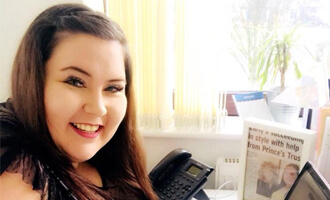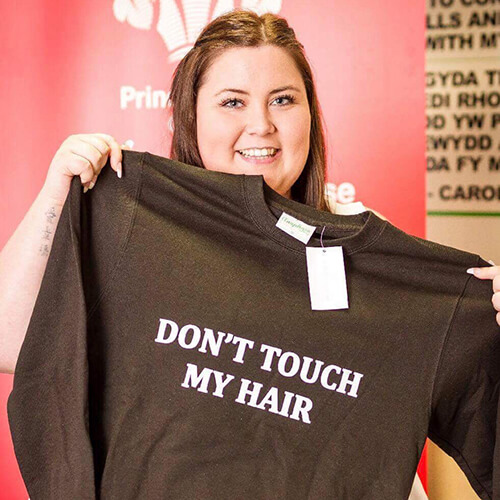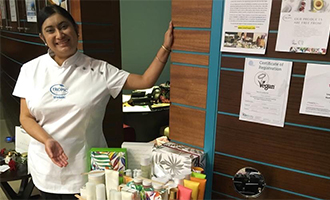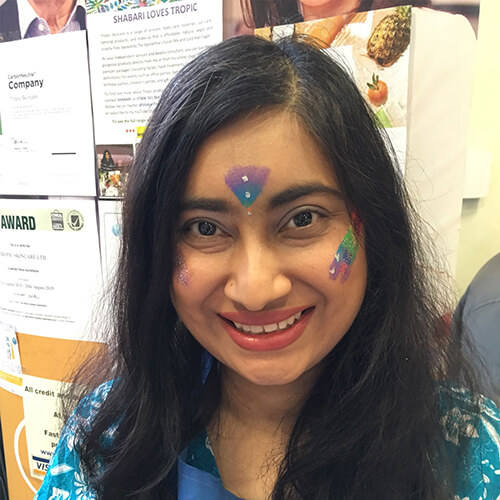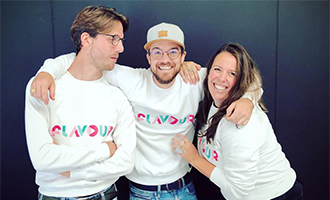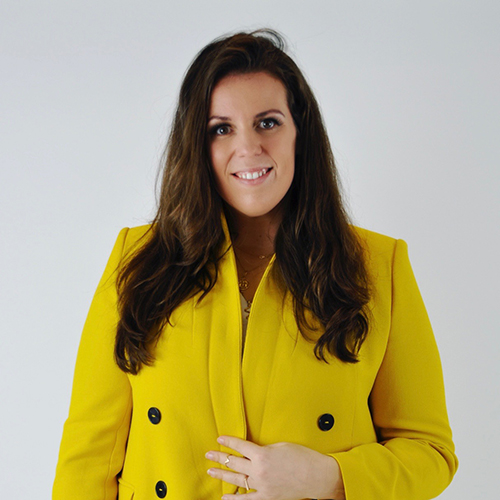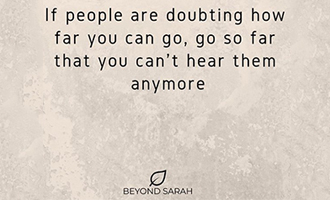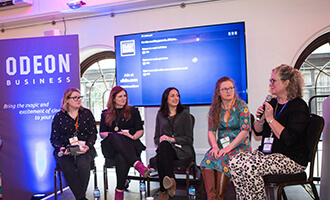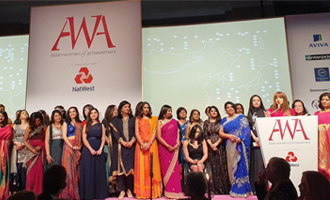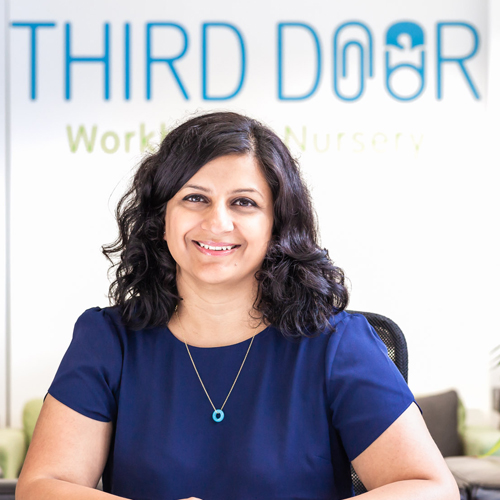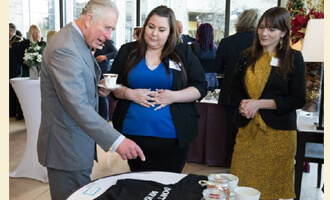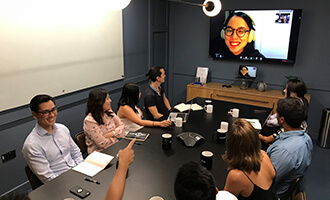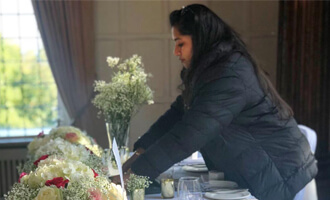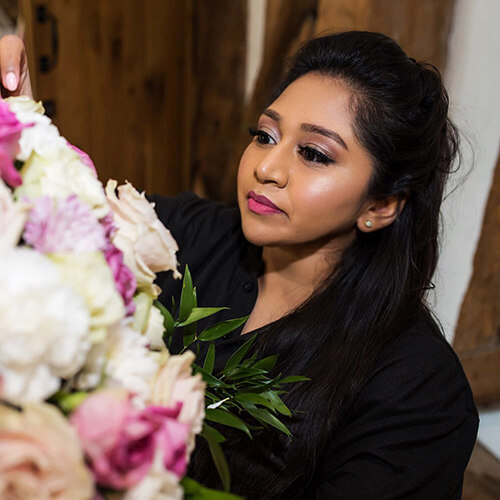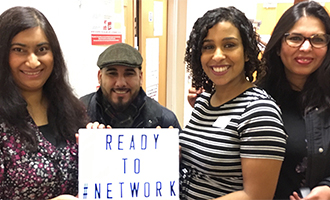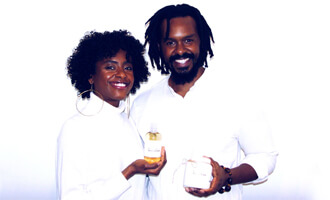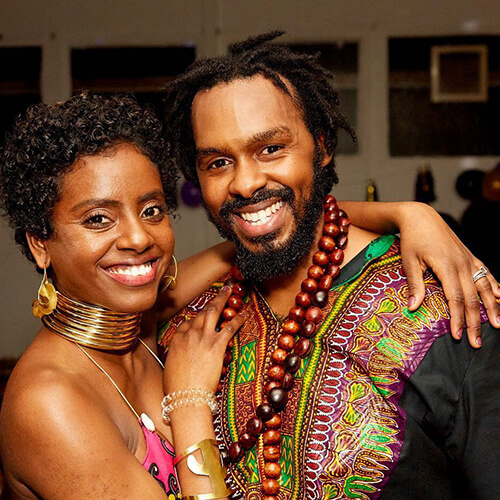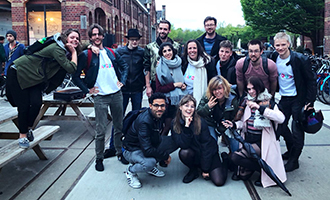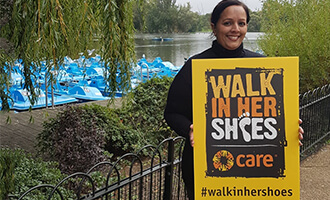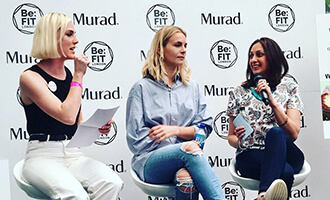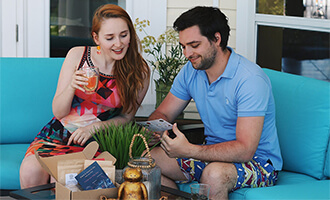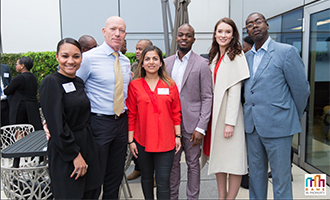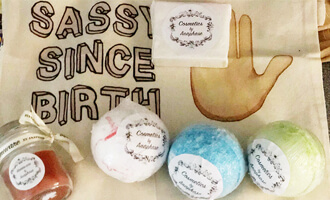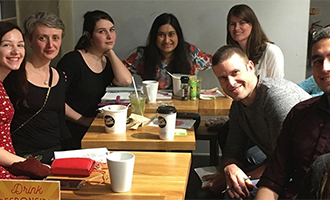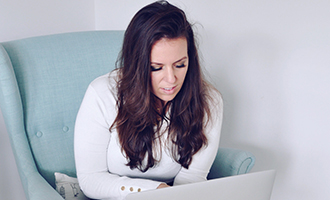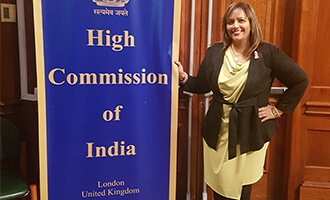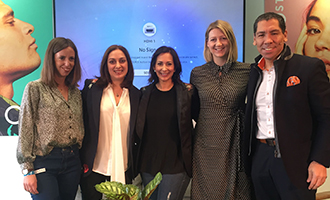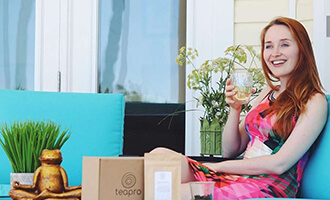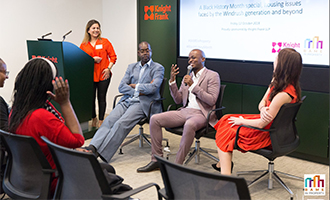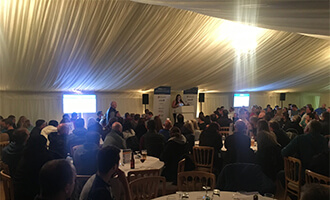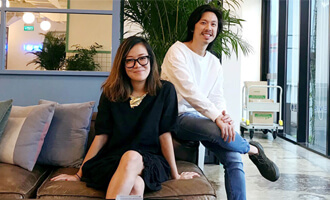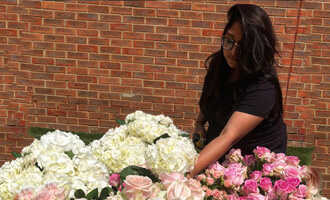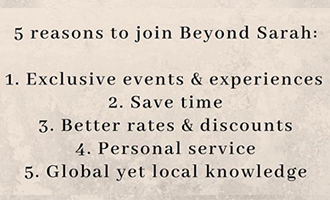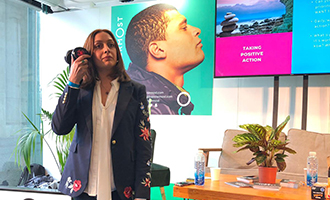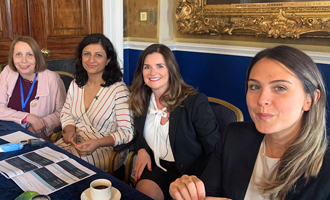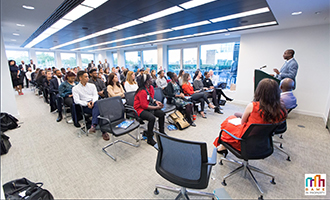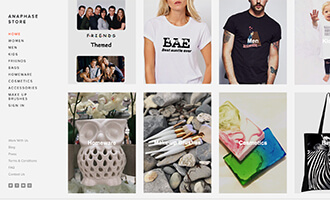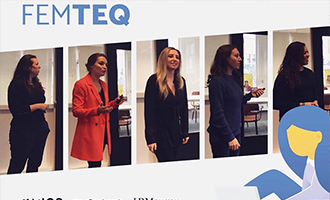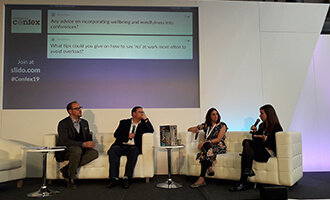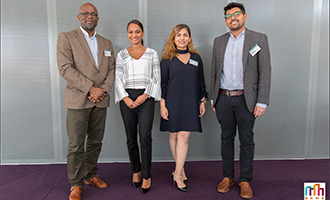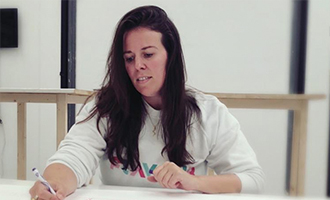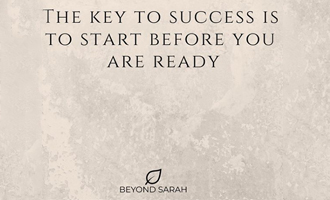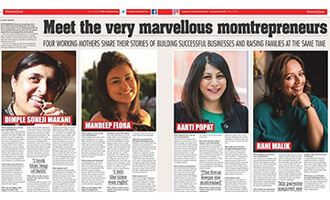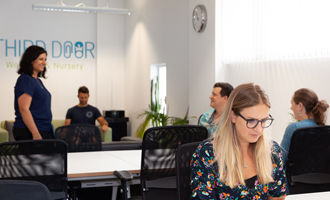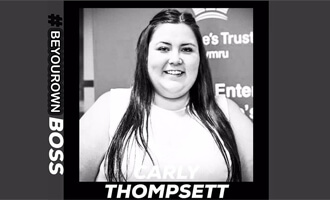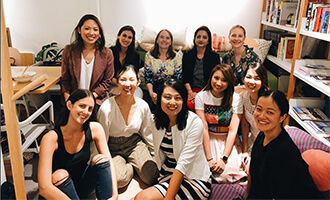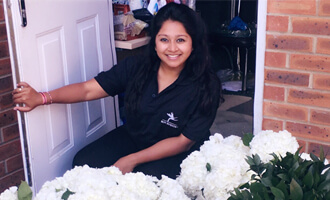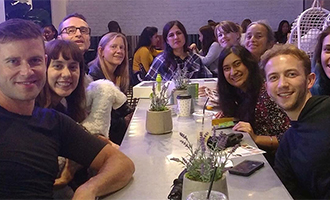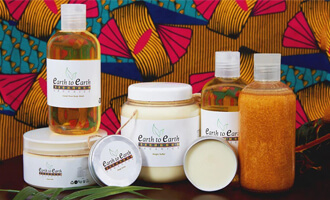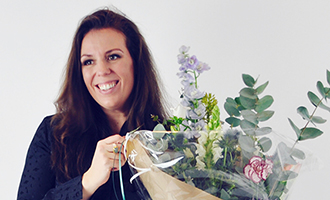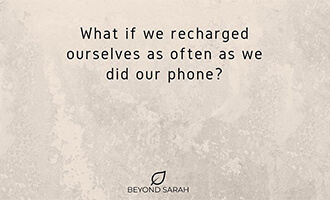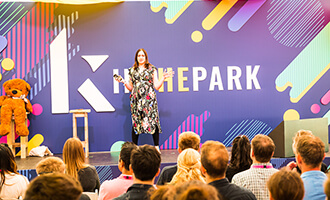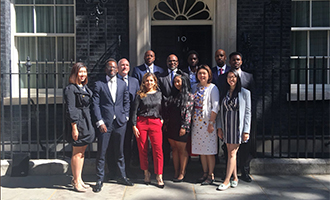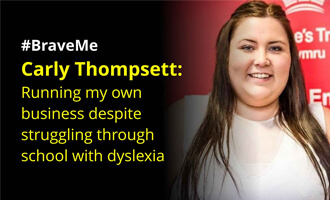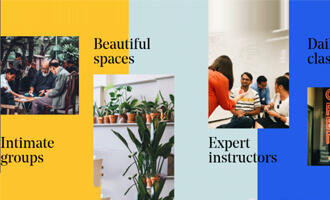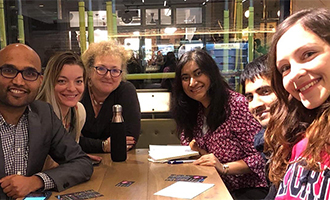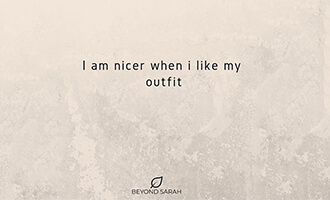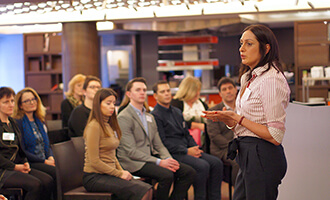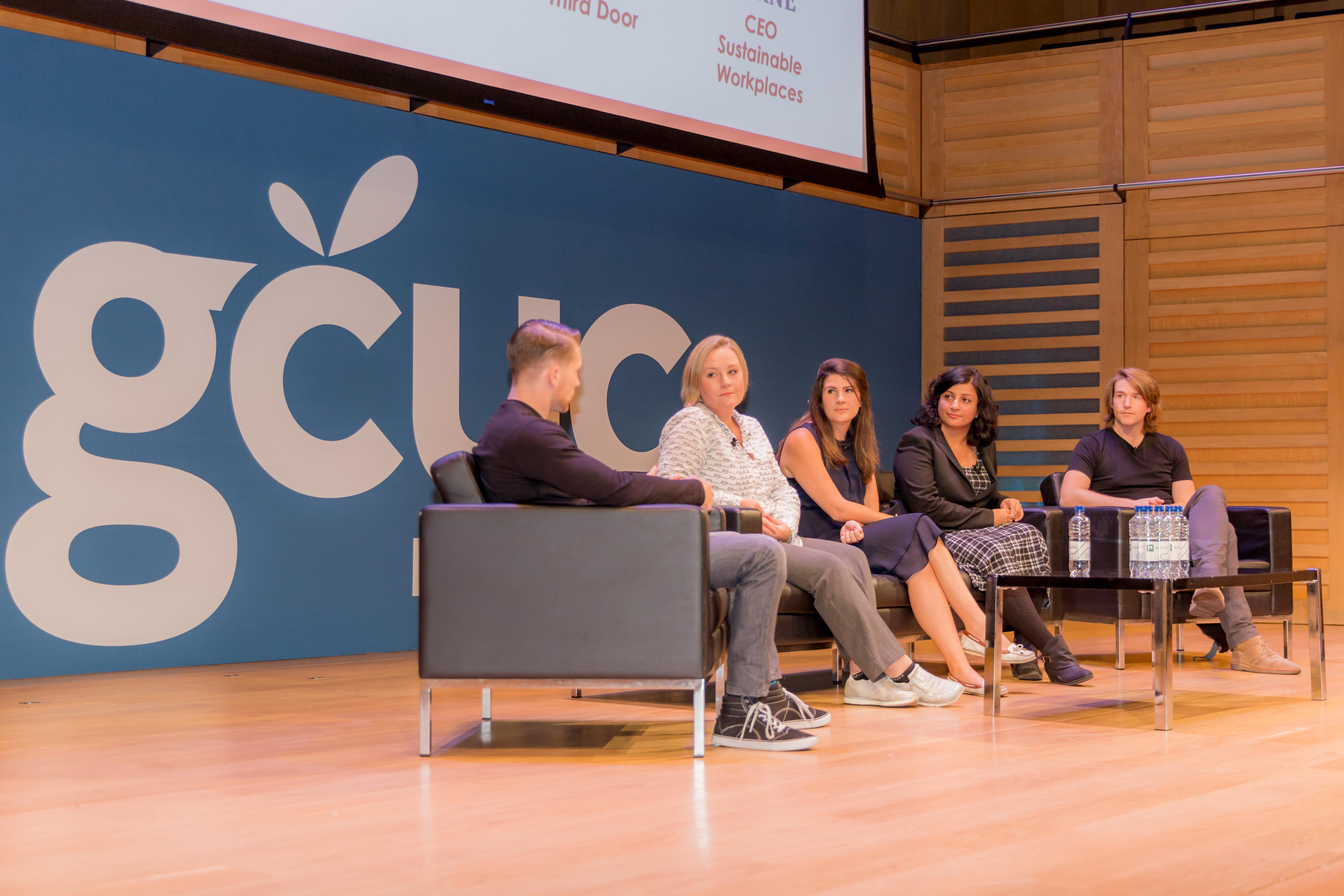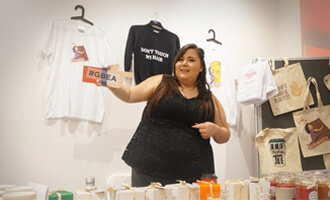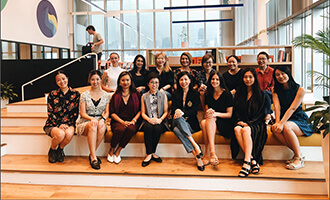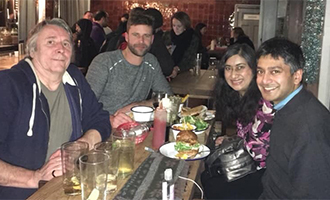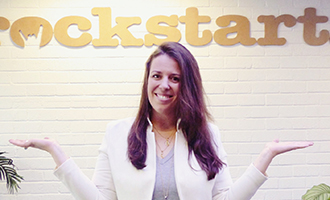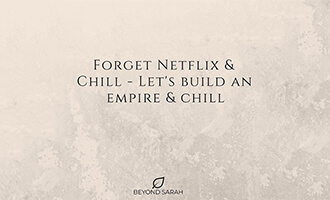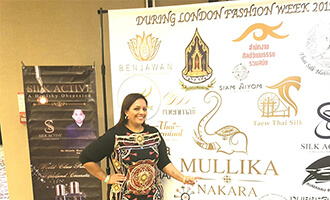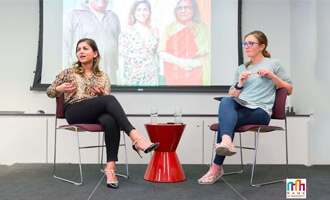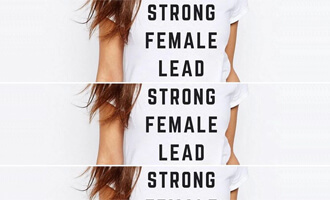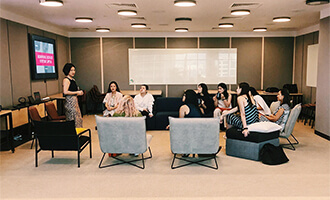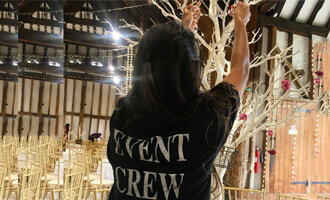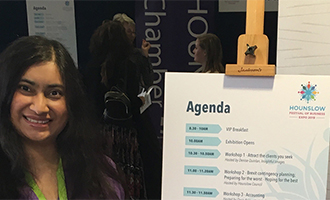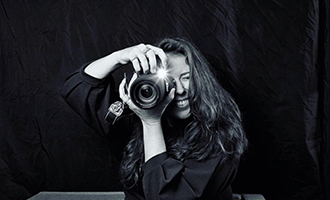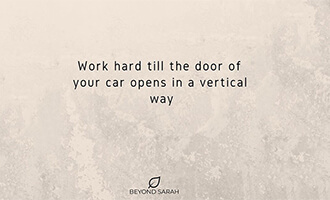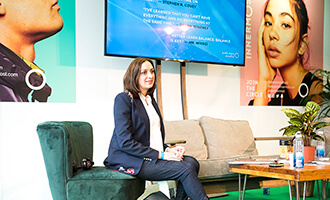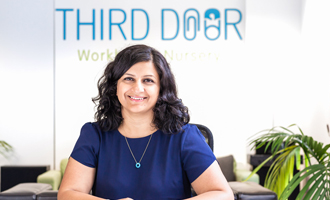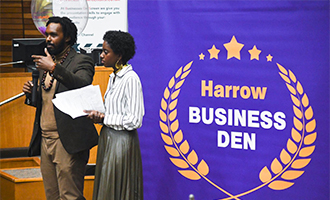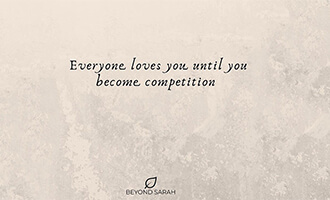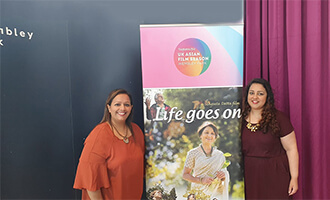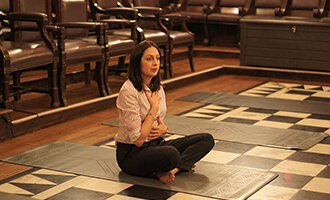Tell us about the venture/ business/ initiative you have started...
Carly Thompsett
Founder of Anaphase Store
Tell us about the venture/ business/ initiative you have started...
Shabari Saha
Founder of the London Vegan Business Network
Tell us about the venture/ business/ initiative you have started...
Emily Jacometti
Co-Founder of Flavour Gamification
Tell us about the venture/ business/ initiative you have started...
Sarah Asgaraly
Founder of Beyond Sarah
Tell us about the venture/ business/ initiative you have started...
Laila Datoo
Founder of a.life.more.mindful
Tell us about the venture/ business/ initiative you have started...
Shazia Mustafa
Founder of Third Door
Tell us about the venture/ business/ initiative you have started...
Nikita Ladwa
Founder of The Naked Laundry
What is your definition of success? What advice would you give to your younger self about "success"?
Priya Shah
Founder of BAME in Property
What is your definition of success? What advice would you give to your younger self about "success"?
Shabari Saha
Founder of the London Vegan Business Network
What is your definition of success? What advice would you give to your younger self about "success"?
Tenesia Pascal
Founder of Earth To Earth Organics
What is your definition of success? What advice would you give to your younger self about "success"?
Emily Jacometti
Co-Founder of Flavour Gamification
What is your definition of success? What advice would you give to your younger self about "success"?
Teresa Faley
Founder of Letterbox Brownies
What is your definition of success? What advice would you give to your younger self about "success"?
Rani Malik
Co-Founder of Venue 5 and Social Dhaba
What is your definition of success? What advice would you give to your younger self about "success"?
Laila Datoo
Founder of a.life.more.mindful
What is your definition of success? What advice would you give to your younger self about "success"?
Nikita Ladwa
Founder of The Naked Laundry
What challenges have you encountered on your journey and how have you overcome them? Is this a common challenge in your industry? How can we tackle it?
Shabari Saha
Founder of the London Vegan Business Network
Are there women you look up to? Who are they and why are they inspirational to you?
Priya Shah
Founder of BAME in Property
Are there women you look up to? Who are they and why are they inspirational to you?
Emily Jacometti
Co-Founder of Flavour Gamification
Are there women you look up to? Who are they and why are they inspirational to you?
Teresa Faley
Founder of Letterbox Brownies
Are there women you look up to? Who are they and why are they inspirational to you?
Laila Datoo
Founder of a.life.more.mindful
What are your thoughts on work-life balance? Do you apply any techniques to achieve work-life balance?
Priya Shah
Founder of BAME in Property
What are your thoughts on work-life balance? Do you apply any techniques to achieve work-life balance?
Emily Jacometti
Co-Founder of Flavour Gamification
What are your thoughts on work-life balance? Do you apply any techniques to achieve work-life balance?
Teresa Faley
Founder of Letterbox Brownies
What are your thoughts on work-life balance? Do you apply any techniques to achieve work-life balance?
Rani Malik
Co-Founder of Venue 5 and Social Dhaba
What are your thoughts on work-life balance? Do you apply any techniques to achieve work-life balance?
Laila Datoo
Founder of a.life.more.mindful
What are your thoughts on work-life balance? Do you apply any techniques to achieve work-life balance?
Nikita Ladwa
Founder of The Naked Laundry
What have you learned about leadership, entrepreneurship and mentoring others?
Priya Shah
Founder of BAME in Property
What have you learned about leadership, entrepreneurship and mentoring others?
Carly Thompsett
Founder of Anaphase Store
What have you learned about leadership, entrepreneurship and mentoring others?
Fei Yao
Co-Founder of NewCampus
What have you learned about leadership, entrepreneurship and mentoring others?
Shabari Saha
Founder of the London Vegan Business Network
What have you learned about leadership, entrepreneurship and mentoring others?
Emily Jacometti
Co-Founder of Flavour Gamification
What have you learned about leadership, entrepreneurship and mentoring others?
Sarah Asgaraly
Founder of Beyond Sarah
What have you learned about leadership, entrepreneurship and mentoring others?
Laila Datoo
Founder of a.life.more.mindful
What have you learned about leadership, entrepreneurship and mentoring others?
Shazia Mustafa
Founder of Third Door
Are there any resources/ books you would like to recommend for the women who read your #AspiringWomen article?
Shabari Saha
Founder of the London Vegan Business Network
Are there any resources/ books you would like to recommend for the women who read your #AspiringWomen article?
Emily Jacometti
Co-Founder of Flavour Gamification
Are there any resources/ books you would like to recommend for the women who read your #AspiringWomen article?
Teresa Faley
Founder of Letterbox Brownies
Are there any resources/ books you would like to recommend for the women who read your #AspiringWomen article?
Laila Datoo
Founder of a.life.more.mindful
Is there anything else you would like to share with other women on their journey to success?
Tenesia Pascal
Founder of Earth To Earth Organics
Is there anything else you would like to share with other women on their journey to success?
Rani Malik
Co-Founder of Venue 5 and Social Dhaba
Is there anything else you would like to share with other women on their journey to success?
Laila Datoo
Founder of a.life.more.mindful
Swipe for more results
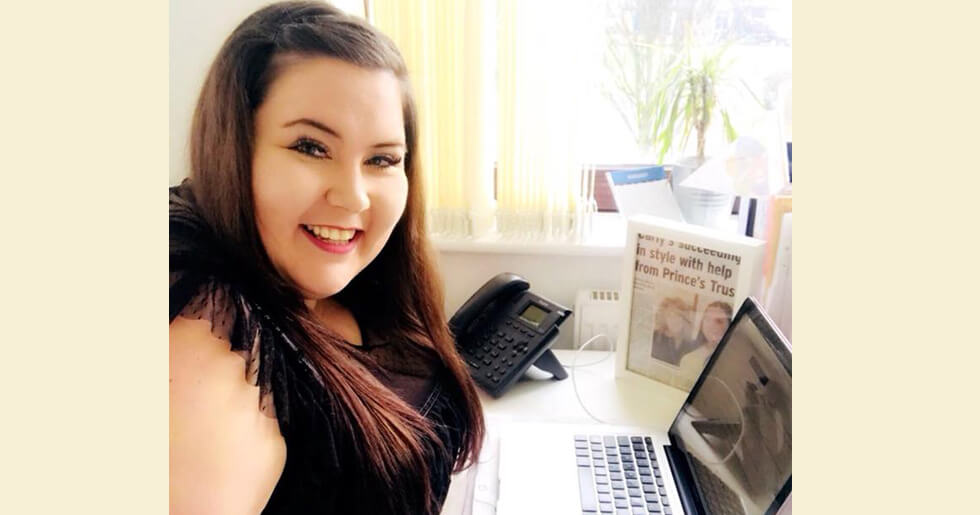
Tell us about the venture/ business/ initiative you have started...
Carly struggled though her educational years with being dyslexic and dysbraxic but she has broken those barriers down to live out her dreams. Since receiving help from the Princes trust, Carly has become a business mentor and ambassador to give back and help other people who may have the same struggles and give them confidence to blossom. Carly has met Prince Charles and personally been invited to Buckingham Palace – Carly’s business Anaphase Store is Online and based in Cardiff. They stock their own designs and slogans printed onto Clothing ranging from newborn to 5XL, Homeware where they make their own candles and bath bombs, Footwear, Cosmetics, Accessories, Gymwear, Art Prints and Holiday items for the upcoming Seasons.
Click above image to learn more about this founder
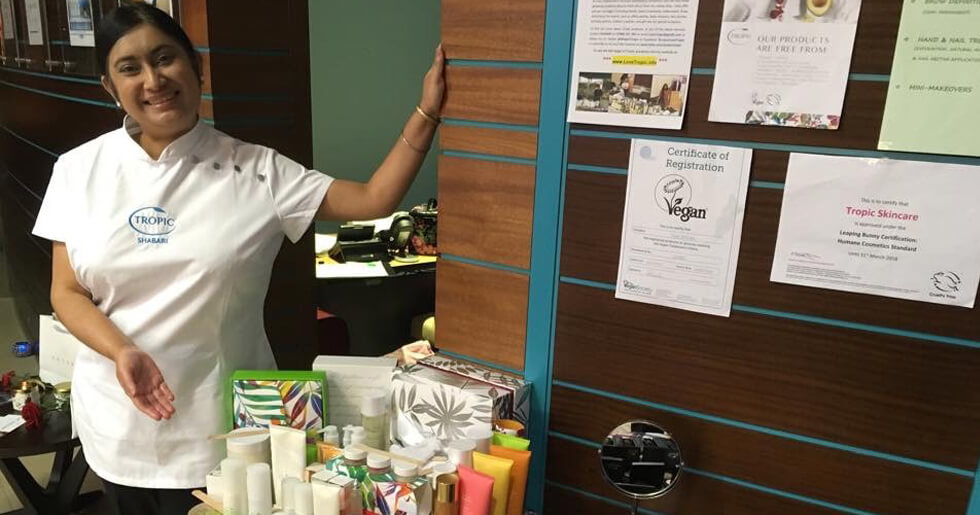
Tell us about the venture/ business/ initiative you have started...
It came at exactly the right time. Although, I had studied international business at university, I didn’t have any practical experience of running a business. Therefore, when this opportunity arose, I thought that it would be a great way to learn the practicalities, while at the same time get the support that is needed to run a successful business. There were 3 words that convinced me to join the opportunity Lord Sugar (who is 50% owner of the brand), vegan products, and life coach.
I’ve been vegan for nearly 22 years. Although, there are a lot of vegan skincare brands out there. None of them ticked all the boxes in the same way as this brand in terms of not only being vegan, but also natural, harsh chemical-free, eco-friendly, and cruelty-free.
As a result of running my business, I have had the opportunity to give talks about veganism, chemical-free living and entrepreneurship to a wide range of audiences, including university students.
3 years ago, I also took over running the London Vegan Business Network. We are a network of over 600 vegan business owners, self-employed traders, start-ups, vegan events organisers, and budding entrepreneurs. I organize regular networking meetings.
Click above image to learn more about this founder
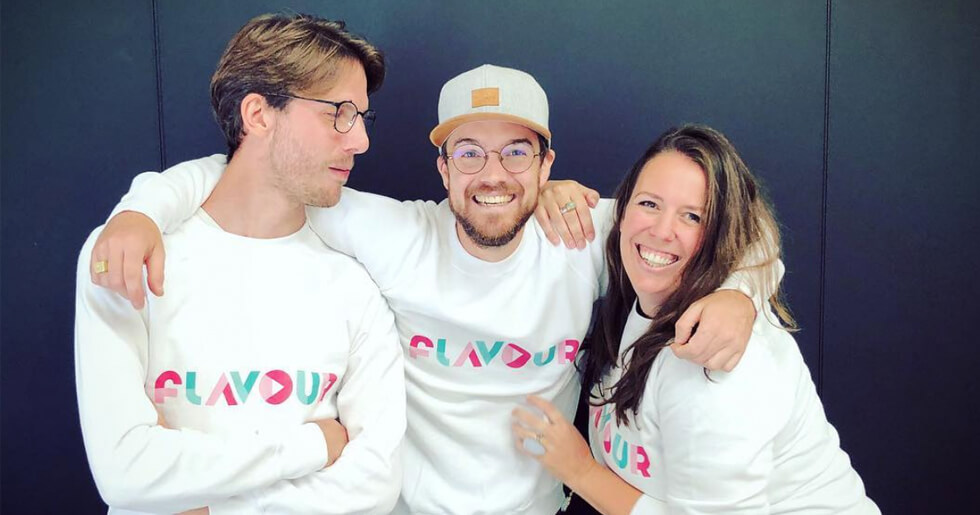
Tell us about the venture/ business/ initiative you have started...
After back-packing through China with my best friend, I returned to a well thought out career and life path. I found neither very appealing nor the thought of just going through the motions with a man that wasn't the love of my life, working a job I wasn't thrilled about, gave me a sinking feeling. But as these things go, an opportunity (disguised as a lot of hard work) presented itself; what if I could be part of something small with the potential to have a positive impact on the world?
It only took one summer evening talking to Jain van Nigtevegt to completely turn my life around. I quit my job, broke up my relationship and moved back in with my parents; I was now officially an entrepreneur.
Years of bread with peanut butter followed while we looked for our voice, it turned out it was simple; we teach people things through gaming, we change behaviour and make sure that the change lasts. If we use fancier words, we talk about societal impact, or gamification.
The essence is always the same; we use gamification and storytelling with our own design method to create heroes. Because heroes will make sure we change big problems.
Click above image to learn more about this founder
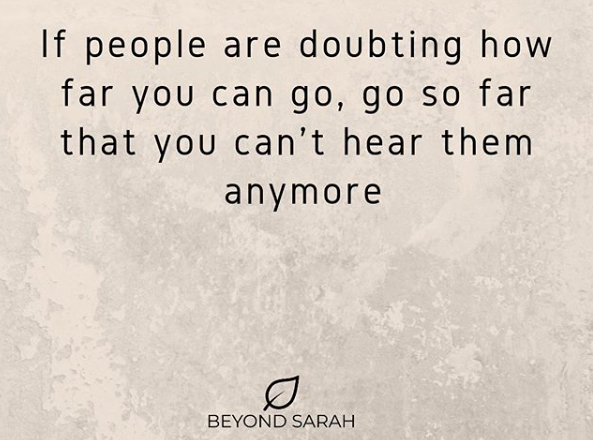
Tell us about the venture/ business/ initiative you have started...
Beyond Sarah was born after realising that most concierge companies are male dominated and I wanted to offer a concierge service where women also feel comfortable booking personal things such as waxing, lingerie fittings, and fertility clinics.
Beyond Sarah taps into the most convenient method of communication, so you can reach me directly via WhatsApp, text, email, and even social media for a quick and effortless service that adapts to your lifestyle.
Whether you want to receive the latest trainers before they become available to the public, book a private villa in Bali, arrange a private chef experience to surprise a loved one, organise an exclusive party in a yacht in Cannes, or gain access to an exclusive red carpet event, I will make it happen.
I offer flexible membership options to suit your lifestyle.
Click above image to learn more about this founder
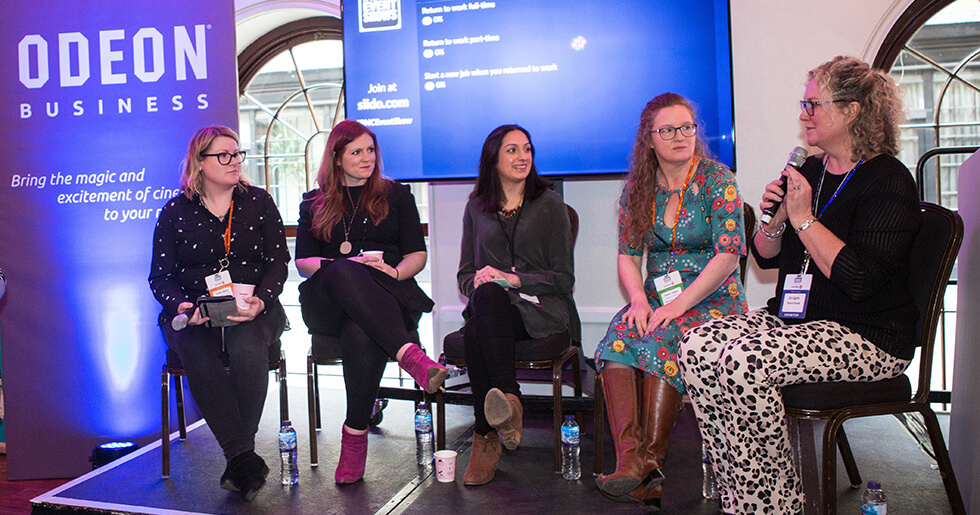
Tell us about the venture/ business/ initiative you have started...
I support businesses to motivate & engage their people to create happy, mindful workforces and a healthy bottom line. I do this through delivering mindfulness, stress management and well-being programmes and working with businesses to improve their well-being initiatives.
Click above image to learn more about this founder

Tell us about the venture/ business/ initiative you have started...
Schooling system has not changed even for a bit. But we have! Several professions and job roles such as those of doctors, lawyers, accountants are believed to become redundant over the coming years. But the Schools are still making us believe that it is important to study traditional books in order to become successful in life – become real doctors, accountants and lawyers. Will there be a gap in the learning process of our society? Most of us have smartphone and all forms of gadgets that answer our immediate questions in just a few seconds. Whereas our current education system believes in memorization of information.
Robotics, AI and digital technologies are fast changing our worlds every day. Does this mean alternate means of Education is becoming a necessity in our lives? I have read fascinating autobiographies of successful people like Bill Gates, Warren Buffet, Elon Musk, Steve Jobs, Jack Ma and various others which has changed my way of thinking in life. I have launched a YouTube Channel and have attended many seminars and various kinds of business events. I have also spoken in property investment seminars. I am currently learning a lot about asset, liability and things that define Debt, Inflation, difference between money and currency, etc. If somebody asks about anything related to property investment, I can jolly well answer that without a hassle. All thanks to my interest in alternate education. Reading books on entrepreneurship, self-development and motivation is defining my ideas and thoughts in a big manner. I read Rich dad poor dad by New York Times Best Selling Author, Robert Kiyosaki when I was 6.
Click above image to learn more about this founder
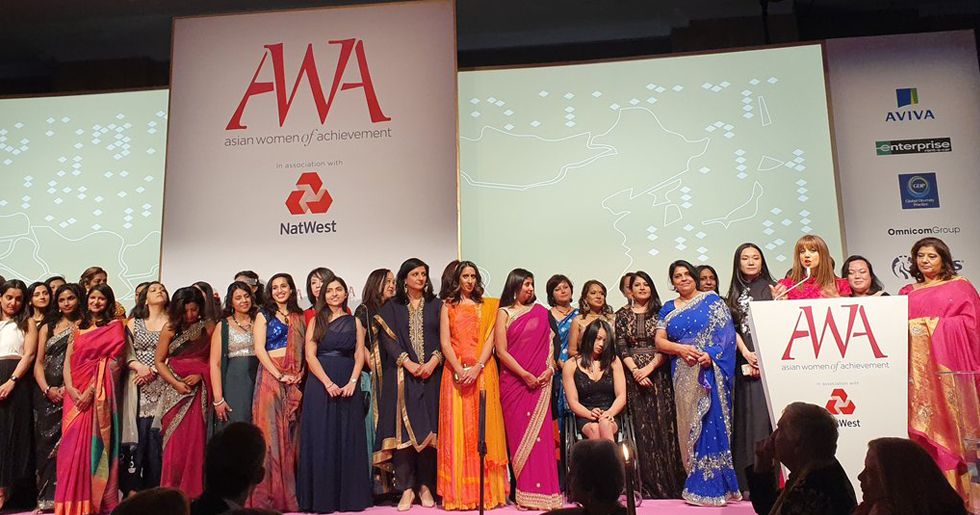
Tell us about the venture/ business/ initiative you have started...
I’m the cofounder of Third Door, a family-friendly coworking space with an onsite flexible Ofsted registered Nursery in London. I have three children who are aged 11, 9 and 7.
Third Door is the UK’s first coworking and flexible nursery hybrid business, based in South-west London. I co-founded the business nine years ago with my husband. Back then and even more so today, Third Door has been about removing the parenthood penalty and creating a better work/ life balance for mums and dads. We have created a solution that allows parents to be able to work near their children, thus saving them time and money by cutting their commute time, as well as removing parent-guilt. Our nursery solution is super-flexible allowing parents to choose between fixed days and flexible packages, upgrade and downgrade their childcare package depending on their needs. With the flexibility we offer, we have helped countless families, especially mothers, who may not otherwise have been able to return to work and continue their careers on a full-time or flexible basis. We also have many members who are freelancers or run their own business and they say they couldn’t have done this without the services we offer. We always designed our services and amenities to be inclusive of fathers, and as a result, are delighted with all our dad members who also regularly use the Workhub.
Click above image to learn more about this founder

Tell us about the venture/ business/ initiative you have started...
In all honesty, the company started with a feeling. A feeling which I knew needed to be fulfilled. Going back to basics, a sari blouse can cost anywhere between £30-£70 depending on where you are getting it designed. Typically, your blouse will be tailored from the end part of your sari, making it very bespoke and precise to that specific sari and to your body shape. With an Indian heritage, I created The Naked Laundry to promote versatility between various cultures and various occasions. The term ‘Naked’ for us represents pure, contemporary and minimalist which allows drawing both Western and Indian fashion styles together. The blouses are designed in UK sizes and aimed worn with saris, pleated skirts and even a high waisted pair of tailored trousers. The purpose is to minimise your wardrobe and still make you look and feel stylish in a premium way.
Click above image to learn more about this founder

What is your definition of success? What advice would you give to your younger self about "success"?
Success is ‘giving back’. Let me share a story…
I remember at school my economics teacher said to my class move to excellence like a pine tree and enrich the world through your giving like a mango tree. When I was travelling through South Africa, the Deputy Principle of a primary school in Shallcross Township, Kwa-Zulu Natal invited me to their awards ceremony to give a speech about the importance of education and the huge role my parents played in this, I was delighted and humbled to accept.
Little did they know that it was a great honour for me to be talking about a topic that was so important to me. They felt empowered by my words but I felt so inspired to be in the company of such enthusiastic children, hungry to learn. I will always remember this day, the kindness of the staff and the excitement of the children – beautiful memories created in the most humble of places.
When I was younger I always thought success was being promoted to higher positions as quickly as possible, but actually everyone grows and develops at their own pace. Your career is a journey, not a race, and reminding myself to stop competing and start enjoying has been an important learning curve.
Click above image to learn more about this founder
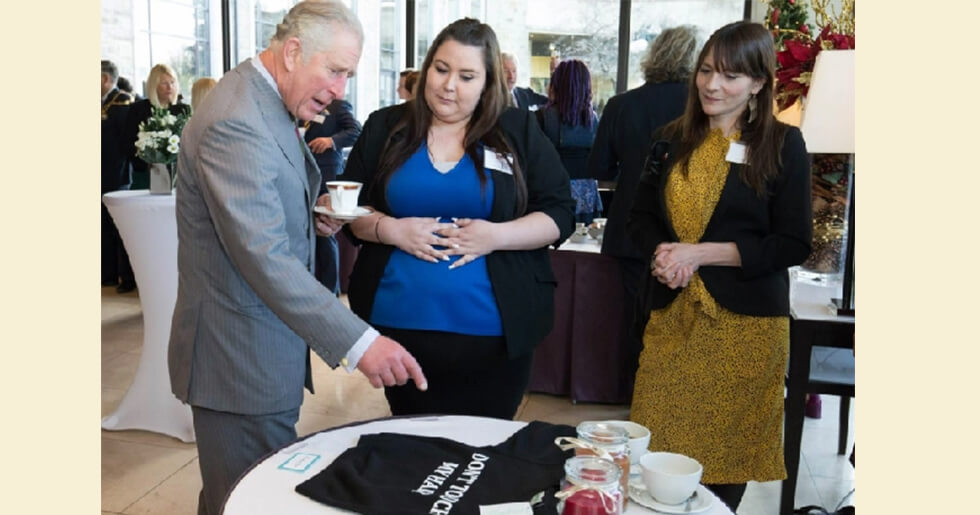
What is your definition of success? What advice would you give to your younger self about "success"?
I think success is defined in different ways by different people at when I was younger, I thought success was having a drivers license or my own house for example but things change as you do. I have always wanted to have my own business, I used to create my own designs and have piles and piles of art books but didn’t know the next step – I wouldn’t change anything about my journey as it makes me who I am today and maybe I wouldn’t have had the same life experiences that I use as knowledge now.
Click above image to learn more about this founder
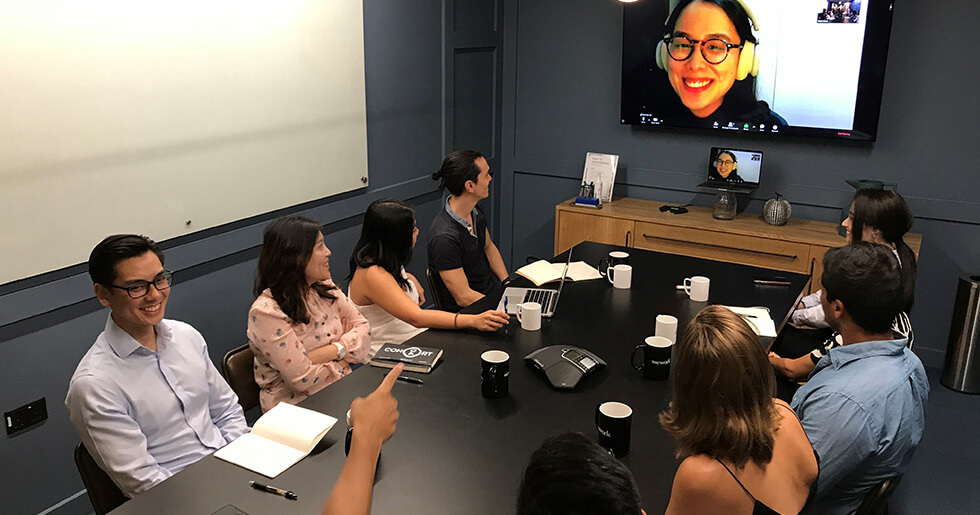
What is your definition of success? What advice would you give to your younger self about "success"?
They say ‘the more you know, the more you don’t know’ and I feel this way about success. My younger self thought success was about about doing well within boundaries of what I knew – doing well in school, ticking all the boxes, applying for good programs. It took me a long time to figure out that there isn’t actually a rule book for jobs and the best ones out there were usually creative expressions of people who wanted to push themselves.
Click above image to learn more about this founder
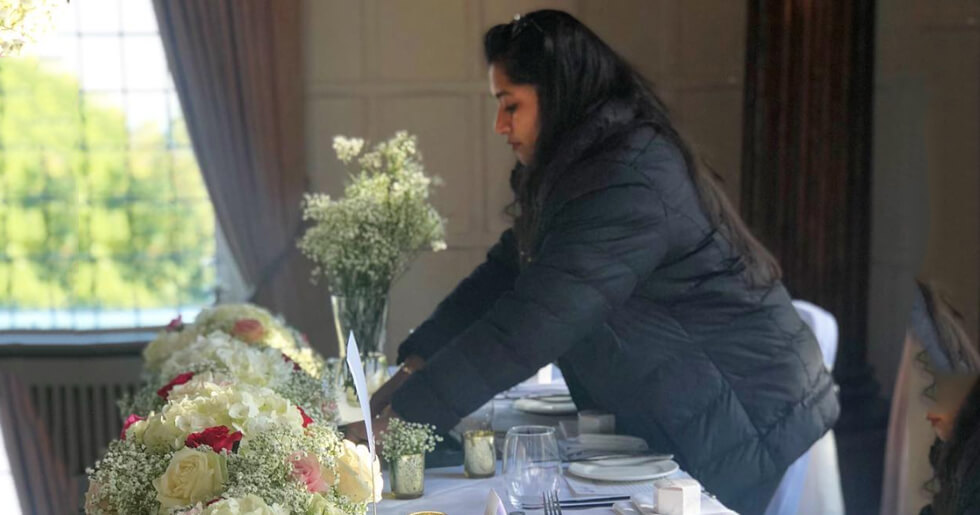
What is your definition of success? What advice would you give to your younger self about "success"?
For some businesses the meaning of success would be either monetary or making an impact. It is important, however as an event designer my definition of success is somewhat different, its not motivated by money but creativity. Being in the creative industry I believe success is executing and getting the opportunity where you can be the most creative and execute out of the box events! Success can also be measured by the emotions, the client feedback I get after having organised my clients happiest day. Advice I would give to my younger self would be that success is something you should always be striving towards, it has to be goal oriented and should not be compared to anyone else’s success as each business has its own journey.
Click above image to learn more about this founder
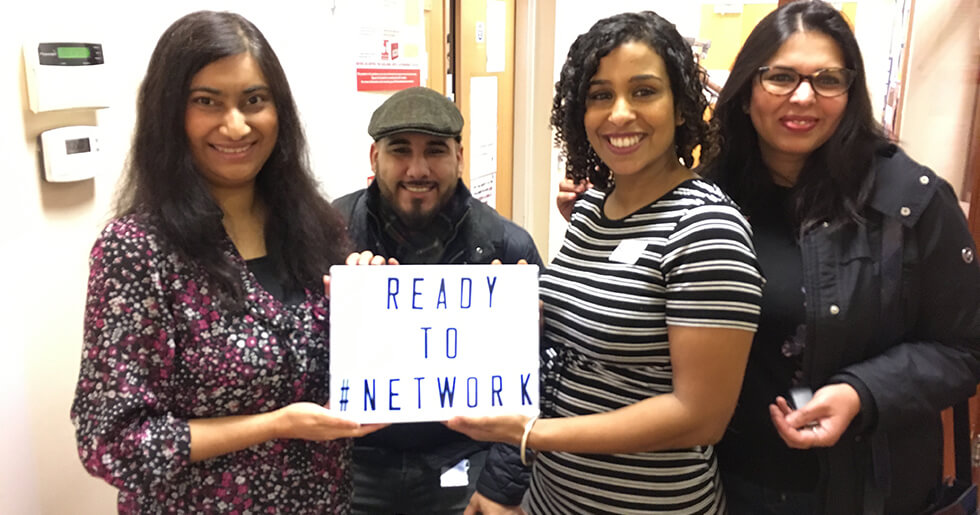
What is your definition of success? What advice would you give to your younger self about "success"?
My definition of success is reaching a goal or achieving something that you have had to work hard to achieve.
When I was very young, I wanted to become an actress, model and even work for NASA. I never pursued any of those things. The advice I would give to my younger self is don’t let yourself get distracted, focus on one thing at a time, and just go for it. Even if you don’t succeed, at least you won’t regret not trying. It’s the things that we don’t do or don’t try that we end up regretting the most.
Click above image to learn more about this founder
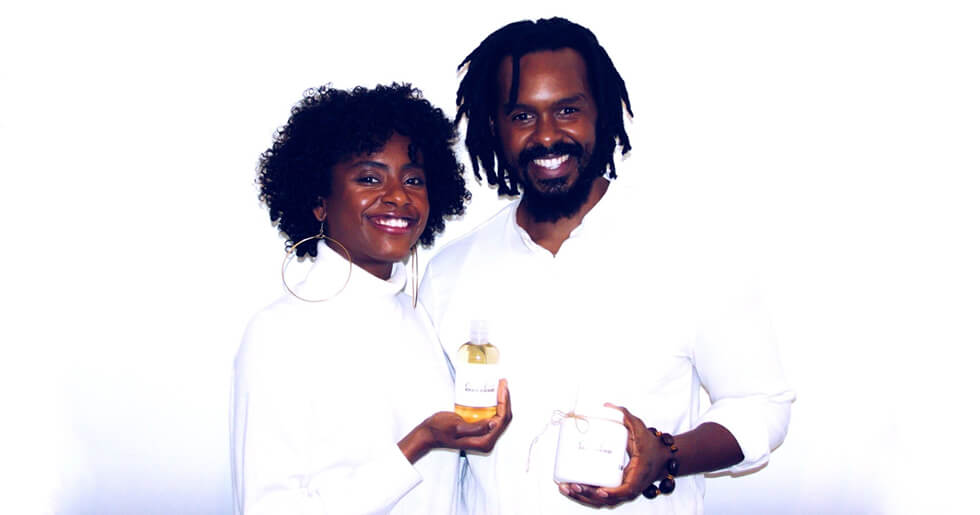
What is your definition of success? What advice would you give to your younger self about "success"?
Being happy and able to contribute to the world in a positive way.
I’d say to make sure that you’re happy, material things lose value, your purpose is to give back and make a differences.
Click above image to learn more about this founder
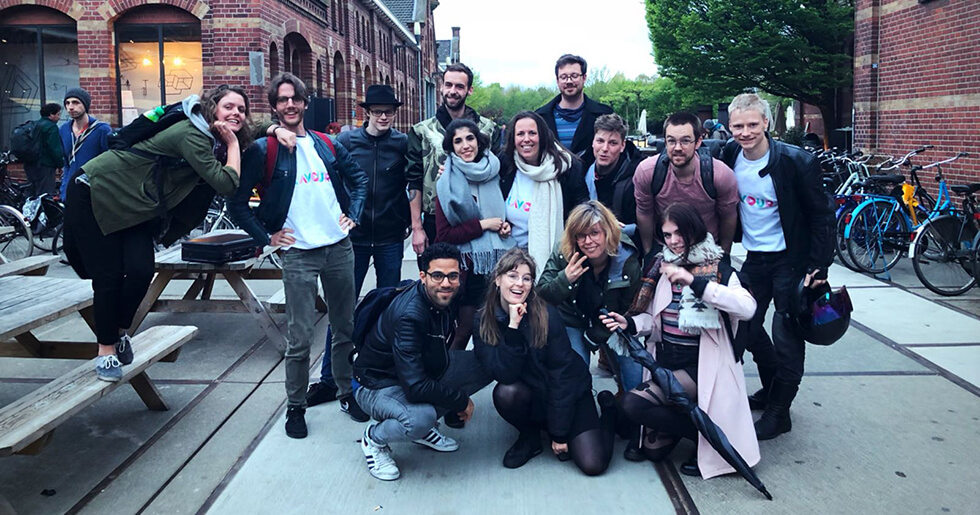
What is your definition of success? What advice would you give to your younger self about "success"?
Success is the freedom to change your path, and when you make it to the top, you reach behind you to give a hand to the ones following you up the mountain.
Click above image to learn more about this founder

What is your definition of success? What advice would you give to your younger self about "success"?
Success is reaching your goals whilst helping and inspiring other people. The advice I would give to myself is to always believe in your dreams and make it happen.
Click above image to learn more about this founder

What is your definition of success? What advice would you give to your younger self about "success"?
I try not to measure success by how much money I'm making or how many products I'm selling, but instead by how much progress I'm making and how much passion I have for what I'm doing.
I would advise my younger self that if you want to be successful, keep the passion for your project alive, and always look for ways to keep improving - don't get complacent.
Click above image to learn more about this founder
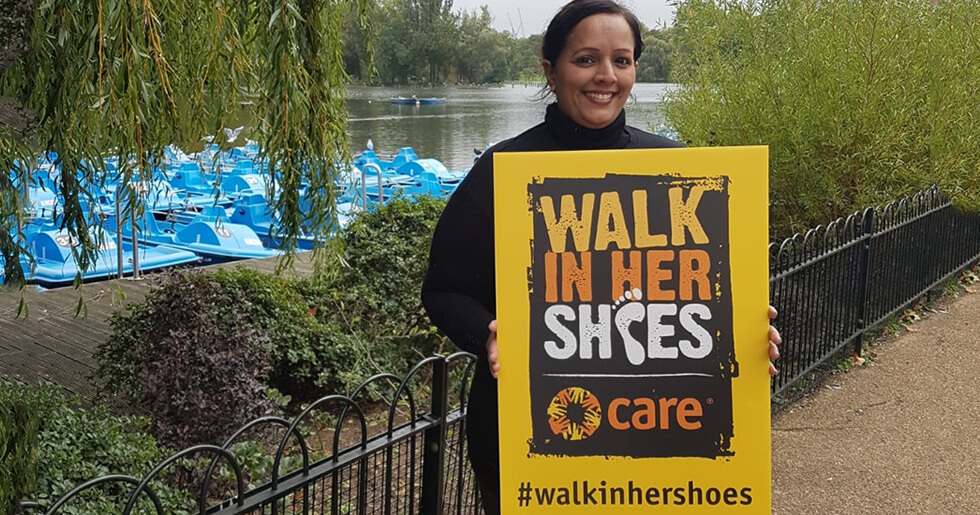
What is your definition of success? What advice would you give to your younger self about "success"?
Today's world has changed, it is not just about a celebration for the change but it's just a reminder that there are still many changes to be made and more causes to fight for, trust your instinct and follow your heart.
Click above image to learn more about this founder
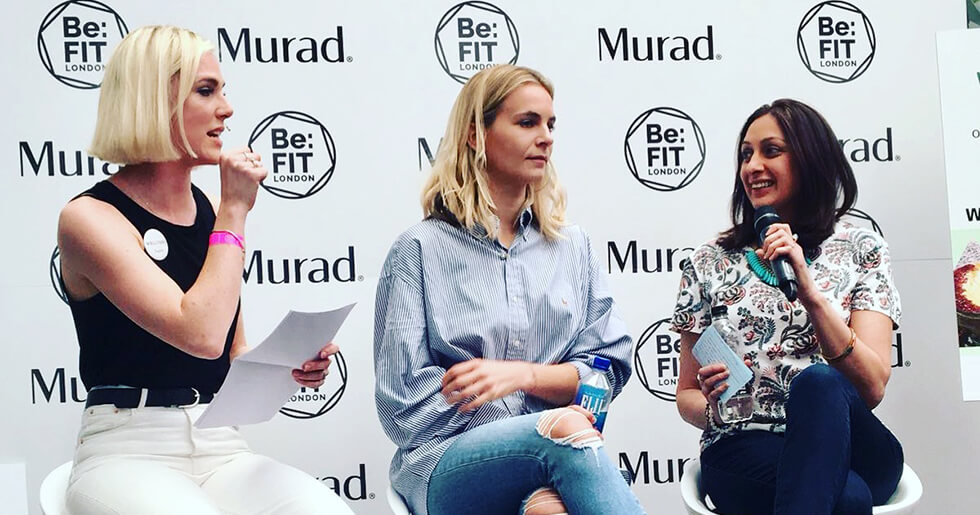
What is your definition of success? What advice would you give to your younger self about "success"?
To me, Success is knowing what makes you happy and what motivates you and going after it. I think it's easy to fall into the mould of doing a certain degree or job and I am pleased I followed my heart and learnt French, lived in Paris and worked in event management as it informed my career and life choices and was definitely more 'me' that a city job!
Click above image to learn more about this founder
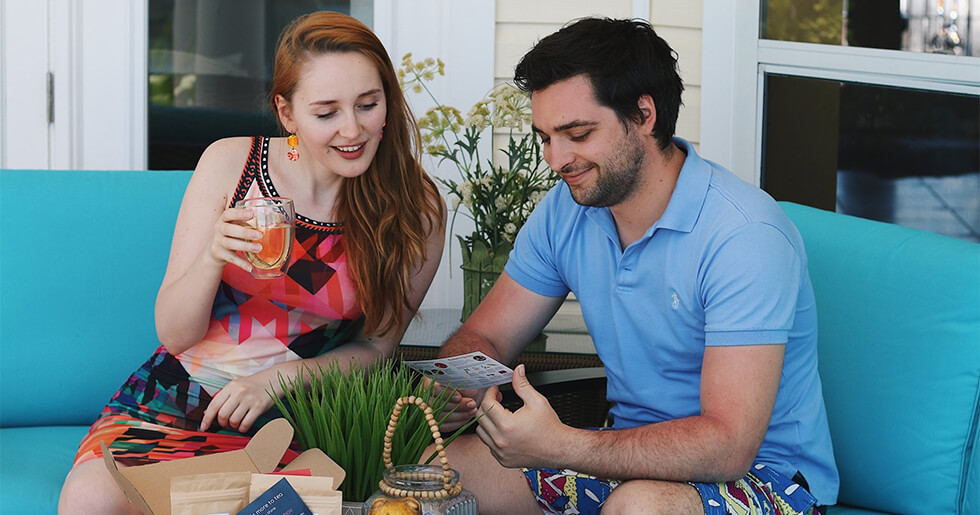
What is your definition of success? What advice would you give to your younger self about "success"?
Success is a tricky word. It's hard to grasp. It can cause joy or anxiety in equal measure. What we often end up doing is connecting it to goals and material things. We believe that we'll be successful when we get a promotion in our job, or buy our first house, or start a new business, or maybe even sell an existing business.
The problem with that thinking is that we'll never be satisfied. Our goals keep shifting and growing, so we end up chasing our own shadow.
What I've learned in the last few years is that SUCCESS is an ATTITUDE. It's expressing gratitude for what we have and being open for more. It's giving back - either by creating products and businesses that help people and bring them joy, or by contributing to our environment or society. It's being in love with what you do.
Click above image to learn more about this founder

What is your definition of success? What advice would you give to your younger self about "success"?
Success, according to me, is learning new things. I learn about success by reading autobiographies of successful people like Warren Buffet and Steve Jobs. I also feel enriched by watching videos of motivational speakers like Gaur Gopal Das and Jay Shetty.
Click above image to learn more about this founder

What is your definition of success? What advice would you give to your younger self about "success"?
Success is all relative. When I was younger, my definition of success was very different and more about working hard and getting up the career ladder to earn enough to buy that huge house of my dreams! My definition of success has definitely changed now though. Today it’s more in tune with impact and building a life that I am proud of; where I can spend time with people I love and respect and where I can be involved with work where I can make a difference.
I also think success is built up on a succession of small failures to be honest! That’s the great thing about running your own business, you can tweak your business as you go along learning from any mistakes alongside feedback from customers or your team. I guess what I would therefore say to my younger self is “don’t be afraid to try new things, mistakes are ok, and you can learn from them.”
Click above image to learn more about this founder

What is your definition of success? What advice would you give to your younger self about "success"?
Just to simply be obsessed with what you do. Graduating with a Business and Economics degree, I was ready to enter the corporate world straight after university. My gut feeling has never let me down, and knowing I needed to enter the world of fashion and beauty was something I knew had to happen. This doesn’t mean I don’t appreciate my degree; I have used this as a foundation in all the branches I am trying to reach. It means something which might feel right now, can even feel better by taking that huge risk. Be scared, be vulnerable but also be brave.
Click above image to learn more about this founder
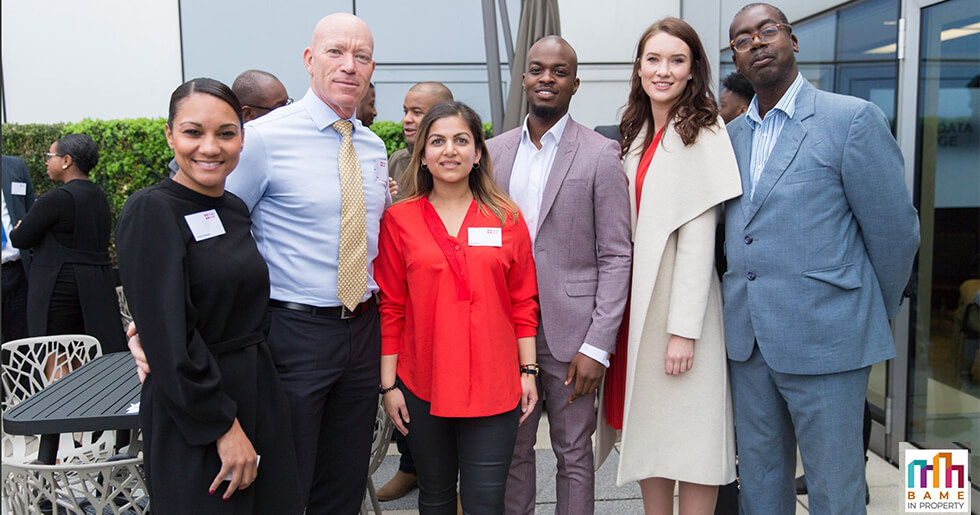
What challenges have you encountered on your journey and how have you overcome them? Is this a common challenge in your industry? How can we tackle it?
Starting a social enterprise/forum can be difficult in the beginning as you’re relying on sponsorship and funding for something people haven’t yet seen. Your passion and drive is what you are relying on to secure that sponsorship and admittedly this was tough – companies were not always prepared to get involved. After a few events, the sponsorship has been coming a lot easier because the industry has seen what can be achieved and diversity and inclusion are coming to the forefront of the agenda.
With the actual purpose of the forum, I think in the beginning there was some naivety to the extent of how uniform the industry is and many companies are still questioning the value of diversity. It’s not necessarily a challenge to overcome but it’s important for companies and individuals to come on this journey with us and be open to asking questions and understanding the benefits of a more diverse workforce.
Click above image to learn more about this founder
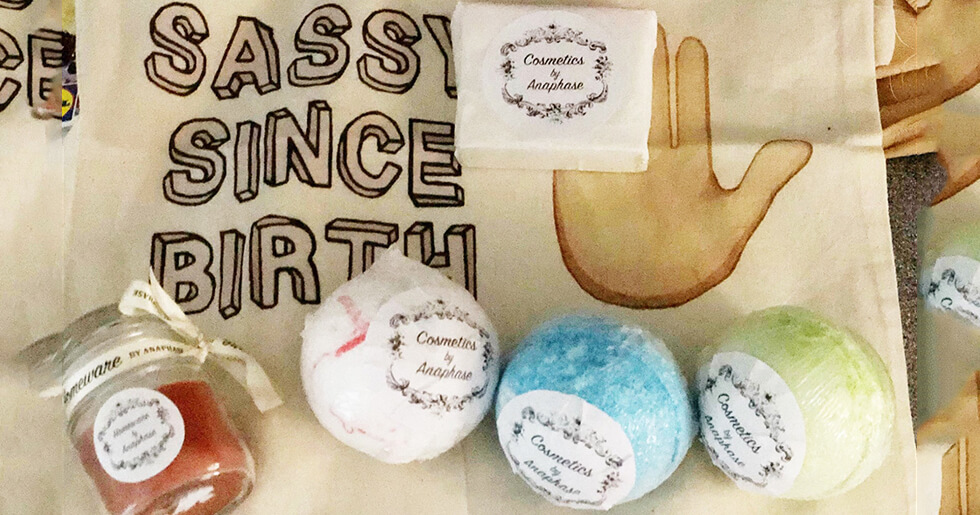
What challenges have you encountered on your journey and how have you overcome them? Is this a common challenge in your industry? How can we tackle it?
I left school at 15 with some GCSE’s but being dyslexic I was told I probably wouldn’t mount too much anyway so why bother. I got a job and I started at College for 3 years, which I did both full-time. I did hair and beauty for the first year and art and design for the last two. I wanted to become a fashion designer that was my calling in life, my room was always piled high with art books and designs, I was always making things and I just never knew what to do with them. I did all this while I became a manager at my job.
I continued working for a total of 6 years but I started to lose interest; so left to change my career. From that moment on I never really stuck to a job, I bounced around every 6 months to a new job.
I eventually became a mobile carer for the elderly, which I did kind of enjoy because I was always on the move and not stuck in the same place. I then lost my grandad and felt I needed to live my life, so I quit my job, packed my things and I moved up here to Cardiff in 2013.
I met one of my friends soon after moving here and we did talk about my business ideas but I didn’t know where or how to go about it, we had completely different businesses so he could only help me so far. So I carried on with my day job, until one day I woke up and really wanted to pursue my dream. I bit the bullet and quit my job, I thought if I wont do it now I wont ever do it, so googled how to start a business, and one of the first results that popped up was The Princes Trust, so I called in and explained I wanted to start a business and asked if they could help me.
They explained they had a course called the Enterprise programme that I could go on and that’ll get me started. So I accepted, what did I have to lose?
I wasn’t expecting much from the course, but was pleasantly taken a back and surprised at how much information I didn’t know I needed to know to run a business; and the depth of the course was amazing. I came out with a new lease of life and excitement for my new journey. I worked with Gemma to do my business plan and had weekly meet ups to go through all my information to make sure I had everything I needed before I went to launch group – I passed which is like dragons den and so scary. My adventure began and Anaphase Clothing was born.
I was given a mentor for 2 years to help me all the way with any problems and advice and I have networked a lot doing their courses. For the few years, The Princes Trust Cymru have held a pop up shop in St David’s 2 on Mothers Day weekend, which I have attended for 3 years and speaking to people that have been through the same journey really helped me.
My business was slow to start off with which did dishearten me a little, especially as I thought I’d be a millionaire by the first month. But I wasn’t ready to give up so I got a full time job to help with the costs and kept my business going on the side; it has picked up a lot and has been a bumpy ride but I still see potential in myself.
The trust were always there for me for what ever I needed willing to put me in contact with other mentors who would help me if mine couldn’t.
Last year I changed the business name to Anaphase Store as I wasn’t just selling clothing now so it made sense to have store to cover the ranges I have. I have developed an online following on my social media accounts, I have my website that gets a lot of attention, I am verified on Facebook, The Tomorrow store that is run by The Prince’s Trust also stocks my items on their online platform.
I have also collaborated with 4 other businesses that went through the enterprise programme and currently have a fully funded office in Caerphilly thanks to the welsh government. I have been growing my brand to attract all different types of customers so I can create a bigger collection.
I was a young ambassador for The Princes Trust, so I would attend events and do speeches on how the trust has helped me; I am now a volunteer and business mentor.
Along the way I have met Paul Mercer, he used to play for Portsmouth Football team, which my dad is a huge fan of, I asked him for an autograph which he was okay about until the whole room saw, rushed over and formed a line. He was stuck there for about 30 minutes, not sure if I left as his friend, also Dan Bigger and Kelly Hoppen. Kelly loved my ˜Don’t touch my hair sweatshirts and posted it on her Instagram along with Giovanna Fletcher who posted one of my candles on her Instagram story, which in turn sent a lot of people my way.
I have done an interview on BBC radio wales along with Radio Cardiff, Heat, Kiss, Kerrang, Planet Rock and Magic. I met prince Charles who laughed at my don’t touch my hair jumper and told me he loves eBay, at the same event I met Luke Evans, who was really nice and was tweeting about some ambassadors during the morning. My business has also been shortlisted for 5 different business awards, we’ve won 3 of them in one day and one of the awards being the enterprise award with the Princes trust awards, we became a multi award winning business all in one day. I was also invited by Buckingham Palace to attend Prince Charles 70th Birthday Celebrations, I was listed as one of the 35 under 35 top business woman in wales 2018, I have been mentioned in 63 new papers and magazines articles through my journey and its lovely to hear that people still find me just as inspiring, I now also have 2 paid staff members, 3 interns and 8 reps around the country working for Anaphase Store – I feel extremely lucky to have achieved what I have in such a small time.
Click above image to learn more about this founder
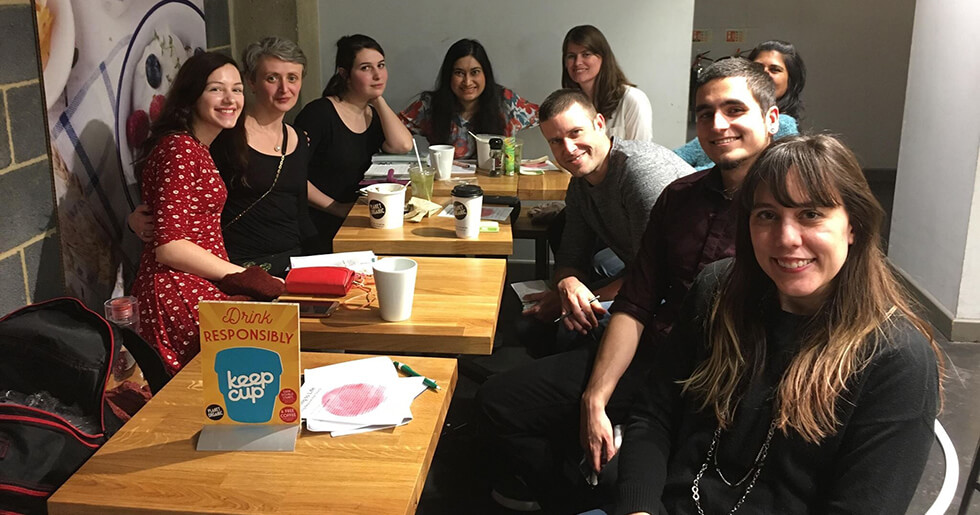
What challenges have you encountered on your journey and how have you overcome them? Is this a common challenge in your industry? How can we tackle it?
It hasn’t been a smooth ride at all. A lot of the challenges in running your own business are not taught at university. One of the biggest challenges has been people not valuing what I am offering, or not thinking that I have overheads just like any other business, and asking for discounts and freebies. I try to tackle this by having a no discount policy sign when I am doing events.
There is also the challenge of juggling all the different tasks that need to be done; finding, booking and preparing for events; social media content; marketing, promoting and selling; admin and accounts; recruiting, supporting and mentoring team members. One thing I haven’t tried yet, which should make things easier, is email marketing and sending out regular newsletters.
In regard to doing events, initially the challenge was getting people to try the products, as it was an unknown brand. However, now that the brand is bigger, the challenge is for people to buy from me and not from another distributor or from Head Office.
Since I started the business, a lot of people thought that it’s a pyramid scheme, and it’s been a challenge to convince them to try the products because of that reason. It is a common challenge in the industry. However, most companies are pyramid shaped in that there is a CEO at the top, then a few directors underneath, then a number of managers under them, and lastly mostly employees on the first rung of the ladder. The way that it can be tackled in the industry I am in is to have a fairer system, where it’s not just the executives that get given leads by Head Office. It would also be better if rewards were given in terms of longevity and other achievements, not just on sales and recruitment.
Click above image to learn more about this founder
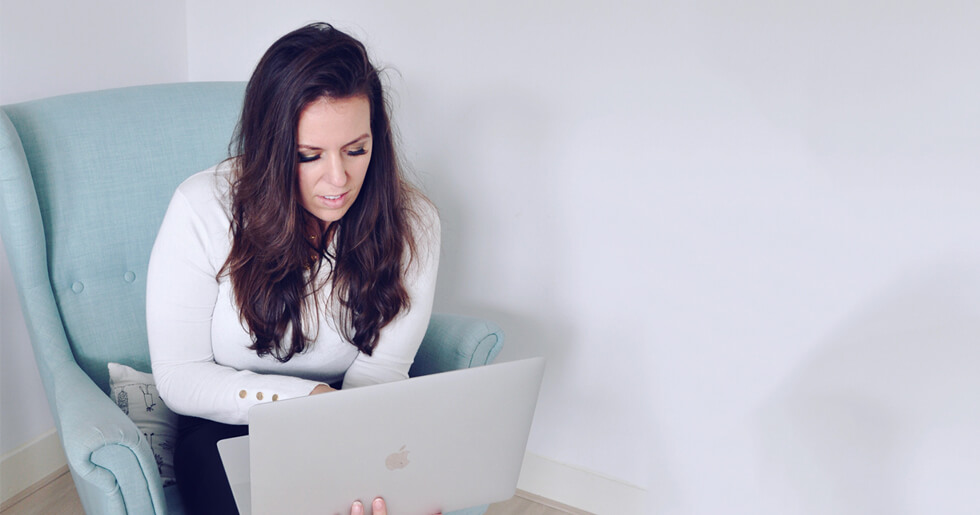
What challenges have you encountered on your journey and how have you overcome them? Is this a common challenge in your industry? How can we tackle it?
A journey to success is never a straight line, it has its ups and downs and along the way we lost some of our companions, some to stress, lack of faith in what we were trying to accomplish and some even to the call of dollars elsewhere.
I found that the people that are still here truly believe in the positive impact, (the children that can navigate the internet more safely because of something we have taught them, for example.)
The biggest challenge for me has been to find the motivation to get up every day, be with people and head a company on its travel while never seeing myself represented. Not in boardrooms, not in IT, not in trying to find capital and not in the Games industry. No young women in positions of power, no women of colour, no young mothers, no women at all.
Over the last decade, I've seen small changes, especially in-house. I see more diversity, more inclusiveness, more representation. But when I venture out into the real world, the change comes too slow.
Click above image to learn more about this founder

What challenges have you encountered on your journey and how have you overcome them? Is this a common challenge in your industry? How can we tackle it?
The challenges I have encountered is mainly to believe in myself. There were times when I have doubted myself and as a woman and a perfectionist, I am sometimes overly critical with myself. I have overcome them by being surrounded by friends who believe in you.
Click above image to learn more about this founder
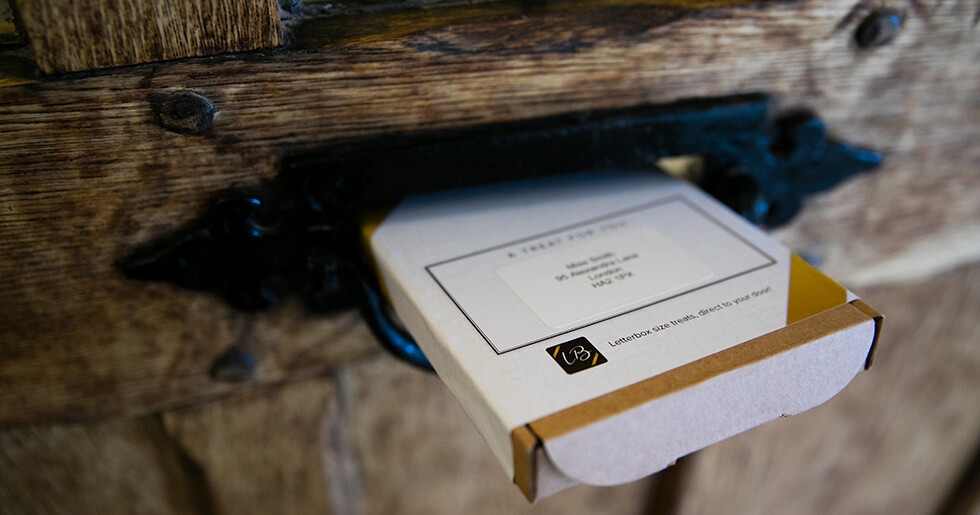
What challenges have you encountered on your journey and how have you overcome them? Is this a common challenge in your industry? How can we tackle it?
The main challenge I have faced with Letterbox Brownies has been perfecting the packaging - it is still a work in progress! It's come a long way from the first prototype, but for me there are still some points that could be better that I am working on.
Product packaging is a key area for the gift industry, and it's important to find your USP and make sure your packaging stands out from the crowd.
Click above image to learn more about this founder
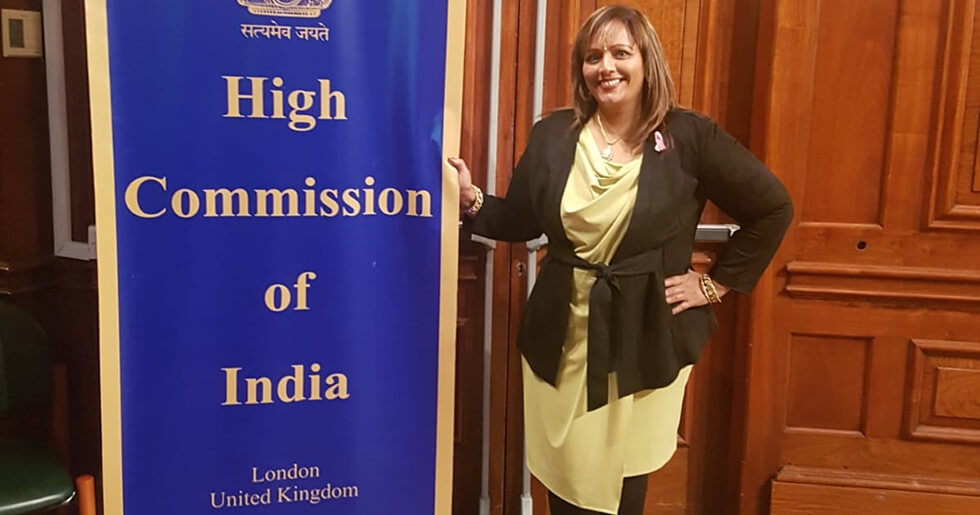
What challenges have you encountered on your journey and how have you overcome them? Is this a common challenge in your industry? How can we tackle it?
I have faced racism bullying, criticism that women should be In the kitchen and not on a stage. I overcame them by self assessing my own strengths and weaknesses, then made a lot of changes within.As an asian entrepreneur it can be very intimidating amongst successful men.To tackle these situations you just have to believe in yourself if you do not then how will the world
Click above image to learn more about this founder
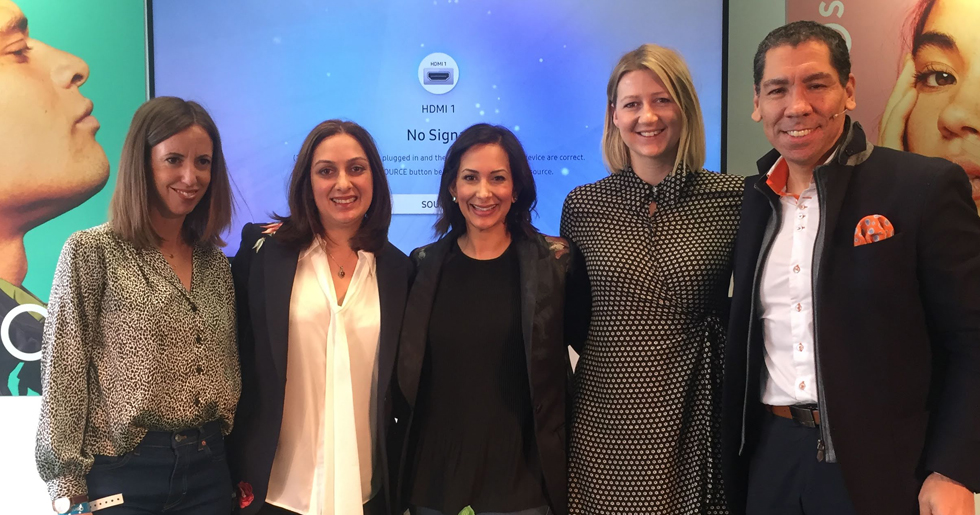
What challenges have you encountered on your journey and how have you overcome them? Is this a common challenge in your industry? How can we tackle it?
In event management I encountered the challenge of being taken seriously in a mainly male environment where event logistics is seen as an admin role. It's the heart of an event and it took me 15+ years to establish a serious career and reputation as an operational expert.
Now working in well-being my biggest challenge is helping companies to see that if they don't look after their people, their business will directly suffer. As it's not an easily measurable ROI, well-being is not well understood or misunderstood and seen as fluffy.
The more people who talk about their well-being challenges and the more employees who demand better well-being cultural practices from their employers, the more we will see a change from within.
Click above image to learn more about this founder
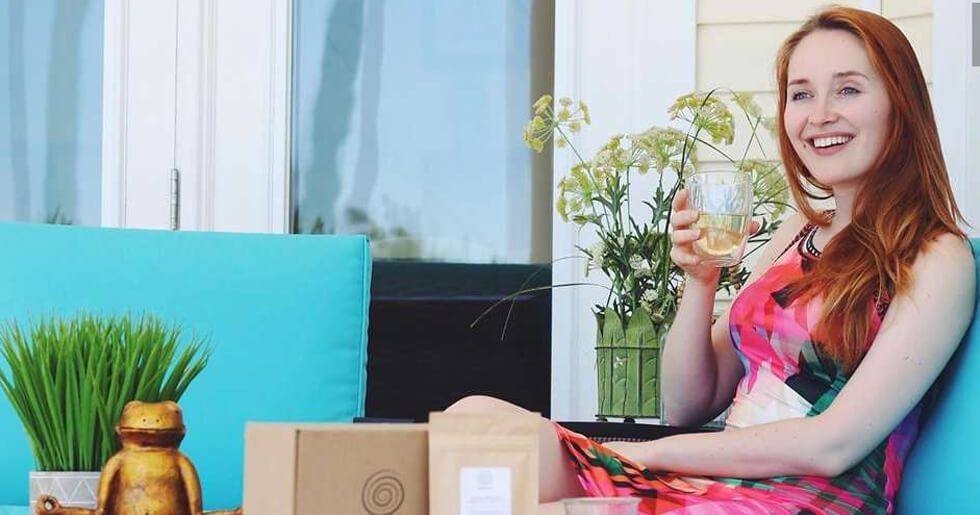
What challenges have you encountered on your journey and how have you overcome them? Is this a common challenge in your industry? How can we tackle it?
My most recent challenge is probably similar to people who, like me, have worked too long as a "lone-wolf" freelancer. I'm so used to doing everything by myself, that when I started working on teapro with my partner Tom (who has worked in a corporate world his whole life), we were not on the same page at all. I was annoyed at him that he wasn't being proactive and he was annoyed at me that I wasn't communicating or working as a team.
One day we decided that this issue could no longer be ignored. We sat down and decided to incorporate AGILE methodology in our weekly workflow. We set up a Trello board (highly recommend it!) with the weekly tasks and goals and gave ourselves roles. I became the product owner (the person who decides on tasks and priorities) and Tom the scrum master (the person who organises the team). We would distribute the tasks amongst ourselves and have daily stand-ups in order to keep up with each other's progress.
I learned this process from Tom and it helped me and our business tremendously. If you're setting up a business and have a small team, I highly recommend you look into Agile methodology!
Click above image to learn more about this founder
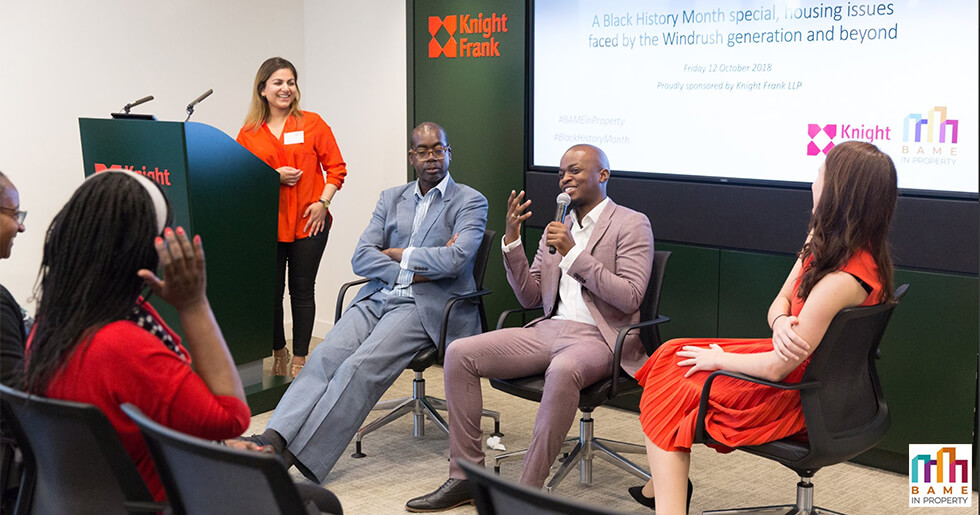
Have you ever experienced imposter syndrome? If so, are there any examples you can give and tips you can share with other women on how to overcome it?
I’ve sometimes attended networking events where I have so much to say but always feel embarrassed to ask a question. Ironic because now I have my own networking forum and I’m leading the conversation most of the time! When people doubt themselves, it’s usually because others have planted that idea in themselves or other people make you feel intimidated. But I’ve found that being surrounded by people who support your growth and development is key – they encourage you to believe in yourself and are your greatest champions. They really help you raise your voice.
Click above image to learn more about this founder
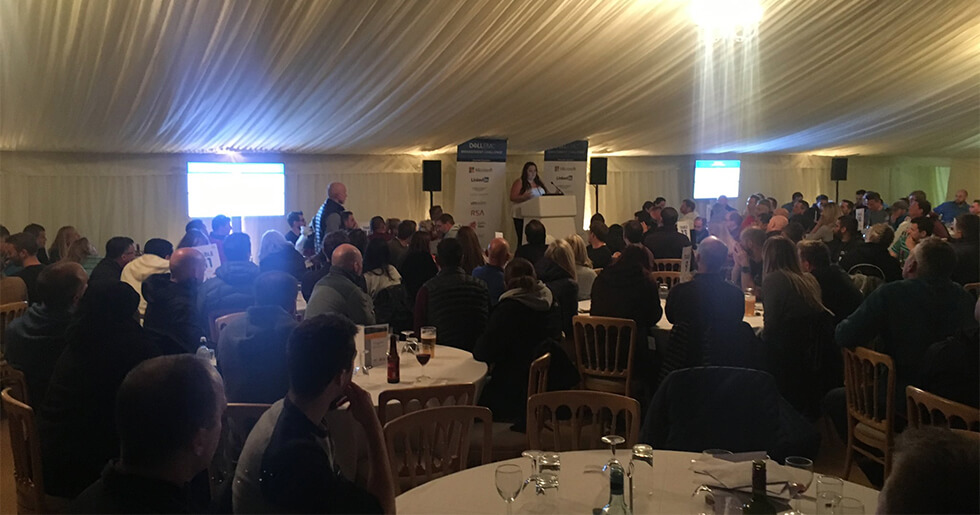
Have you ever experienced imposter syndrome? If so, are there any examples you can give and tips you can share with other women on how to overcome it?
Every so often I do get imposter syndrome – but it took me a while to even find out it was a real thing. it wasn’t until I was brave enough to speak to someone that I found out it was completely normal – I don’t get it very often but when I do, I just look back at everything I’ve achieved and it seems to do the trick.
Click above image to learn more about this founder
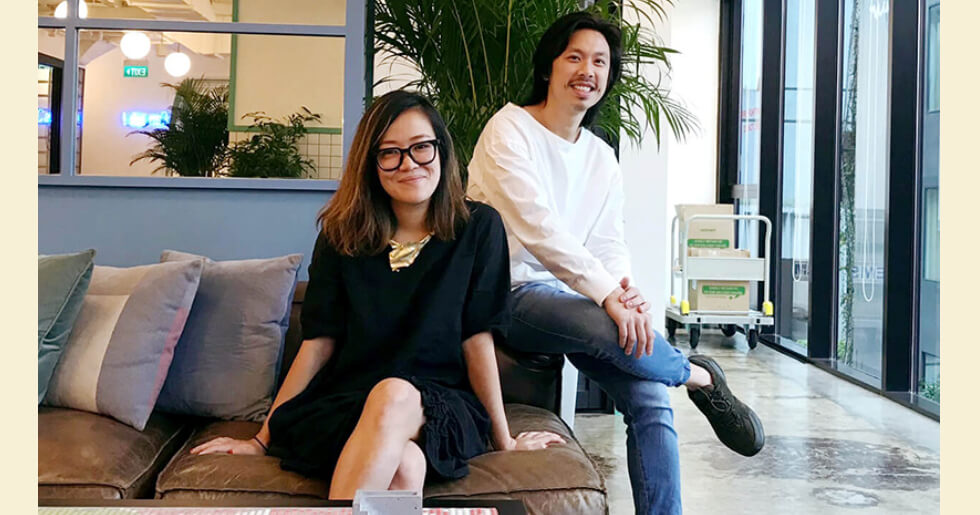
Have you ever experienced imposter syndrome? If so, are there any examples you can give and tips you can share with other women on how to overcome it?
Timely question :) See above. But yes – constantly. Like many other industries, I am building a company in industries traditionally built by men, and usually much older men in more established markets – education and technology. It’s easy to feel like you don’t have a place in the room – especially when you are starting out and don’t have much to back you yet. But it’s important to stick to your strengths, carve out a niche and focus on your unique insight. I may not have had the 30 years in education, nor the Silicon Valley experience behind me, but I do know what people my age in this part of the world are looking for, and I started from there.
Click above image to learn more about this founder
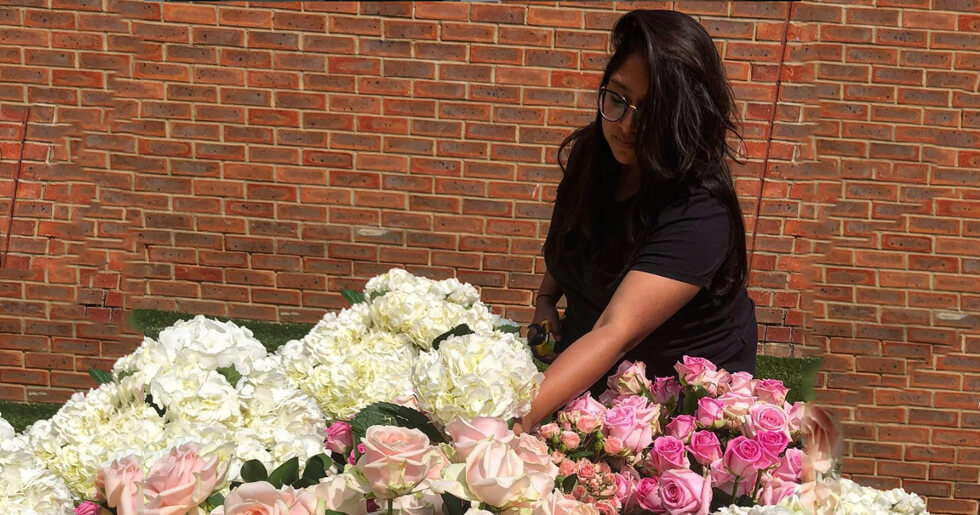
Have you ever experienced imposter syndrome? If so, are there any examples you can give and tips you can share with other women on how to overcome it?
Almost everyday! It is something I am trying to work on everyday. It is impossible to not have experienced imposter syndrome when you are an entrepreneur as the journey itself can inflict lack of confidence and doubts in your ability. There are days before a big event and I cannot sleep the night before just worrying about how it will go!
There are a few ways to overcome imposter syndrome, firstly get yourself some entrepreneur buddies and a mentor/coach. I have both and it is so helpful as your friends who are not part of the same journey will not understand the struggles of running a business. Finally make it a point to do something way out of your comfort zone at least once a month.
Click above image to learn more about this founder
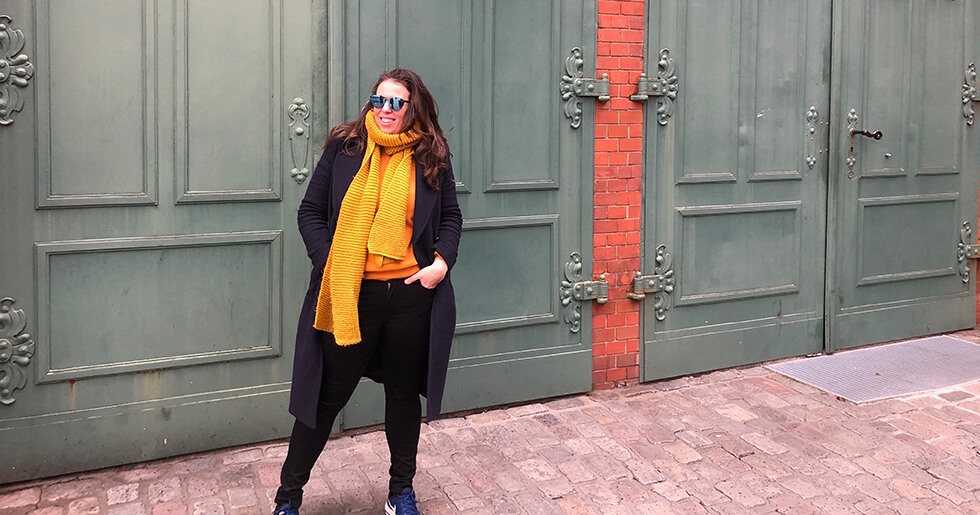
Have you ever experienced imposter syndrome? If so, are there any examples you can give and tips you can share with other women on how to overcome it?
Yes, we all feel like we are just faking it till we make it. But do we ever feel like we've made it? For years I struggled with Imposter syndrome, always being the youngest, always being the only woman and the mansplaining didn't help the situation either.
Until I realised, we're all just doing whatever. Nobody has the answer, why should we have all the answers? What happened to be learning from others, trial and error, experience and collaboration?
I don't need to have all the answers, I need to be open and honest about my abilities and have faith in my experience, it shows that whenever I ran into something I didn't know, I figured it out somehow. I need to trust that that will always happen in the future.
Click above image to learn more about this founder
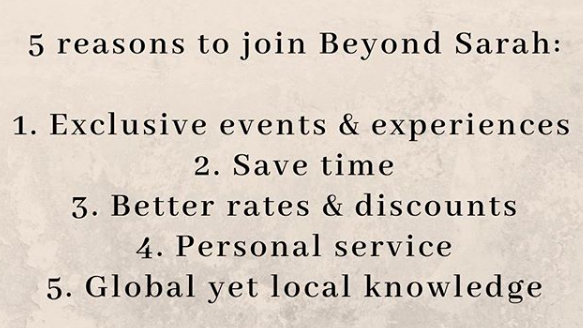
Have you ever experienced imposter syndrome? If so, are there any examples you can give and tips you can share with other women on how to overcome it?
Yes, I have doubted myself on a few occasions. When Net a Porter approached me for a collaboration, I felt under qualified and I was worried I would let them down. I had this irrational fear that they would be disappointed from the collaboration, when in fact I have exceed their expectations by closing many sales. The tips I would give is to say yes to everything because you never know what kind of opportunity you would get. Even if you feel under qualified, accept the role and learn to do it later.
Click above image to learn more about this founder

Have you ever experienced imposter syndrome? If so, are there any examples you can give and tips you can share with other women on how to overcome it?
Yes - I often find it hard to accept compliments or praise about my business, I think this is partly because it is still in relatively early stages! For example, I recently won the Harrow Business Den competition and that truly surprised me, despite extremely positive feedback from the judges and members of the audience, part of me felt like I didn't deserve it.
If I ever start to feel like an imposter, I just try to remind myself that the success I've experienced so far has been achieved through hard work and I shouldn't downplay my achievements.
Click above image to learn more about this founder
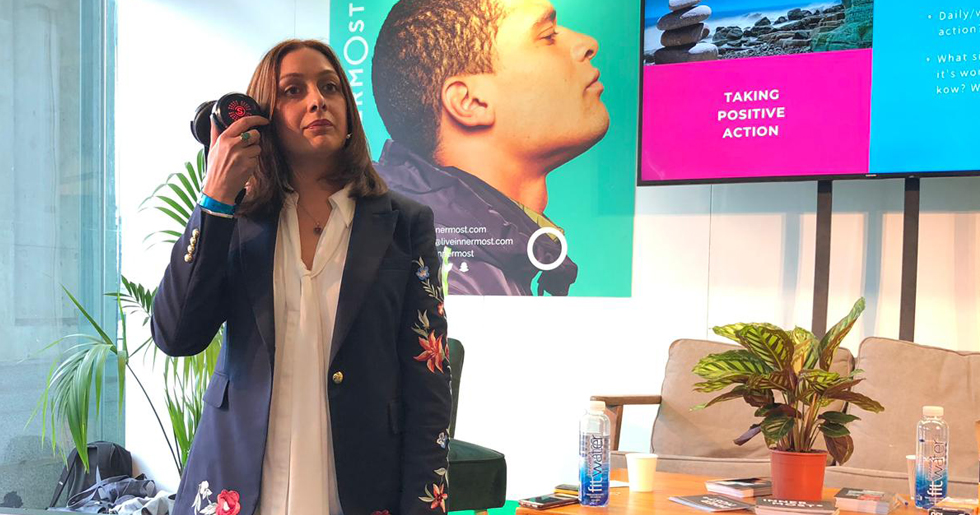
Have you ever experienced imposter syndrome? If so, are there any examples you can give and tips you can share with other women on how to overcome it?
All the time! I think with social media it's very easy to look at others and doubt yourself and your own journey. I often think "what gives me the right to talk about well-being / mindfulness" when I've not been doing it 10 years like others.
It's vital to focus on your experience, your expertise and your journey. What you can offer is unique and we need to focus on that. I think it's also powerful to link up with others in your field and combine experience rather than be threatened by it - some of my most beneficial collaborations have come from working with women who are in my field.
Click above image to learn more about this founder

Have you ever experienced imposter syndrome? If so, are there any examples you can give and tips you can share with other women on how to overcome it?
Of course I have. I think that in a weird way experiencing an imposter syndrome is a healthy sign. Having occasional doubts about ourselves and our abilities means that we're not narcissistic sociopaths. It also allows us to grow and work on our weaknesses. However, if the "imposter syndrome" starts giving you anxiety and hindering your growth, here is a helpful tip on how to overcome it.
When you're discussing something from your field of expertise, focus on how that particular piece of knowledge can help the other person. There might be another "guru" out there, who knows way more than you do, but whose advice might not be as helpful or relevant as yours.
Click above image to learn more about this founder
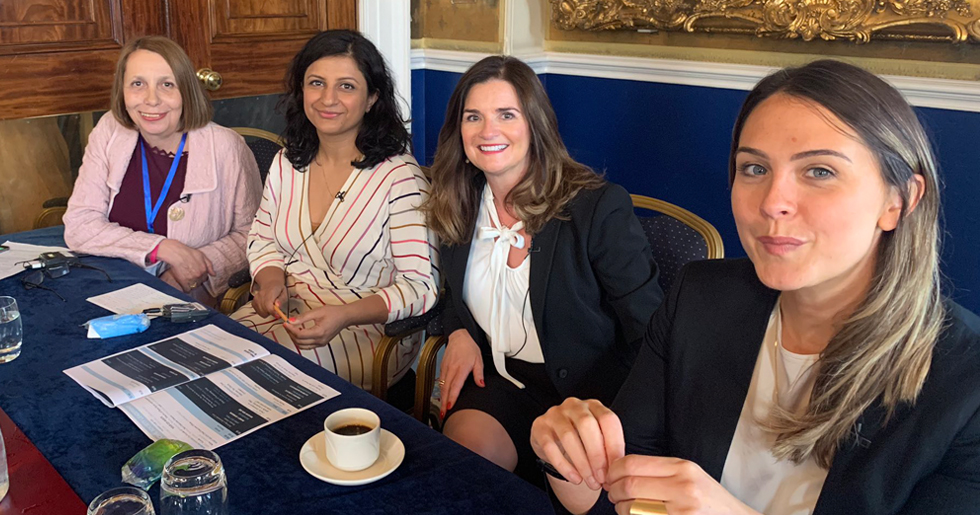
Have you ever experienced imposter syndrome? If so, are there any examples you can give and tips you can share with other women on how to overcome it?
I think it’s only natural to question yourself. It doesn’t matter how confident you may appear on the outside, imposter syndrome can show its face when you least expect it. The key is seeing when and how it presents itself and then trying to avoid these situations moving forward. Likewise, it’s essential to tell yourself that it’s ok not to always know the answer. The other thing I do, which I would encourage others to do, is recognise and reward. I always congratulate myself if I have done something well and call out my success (even if just in my own head), rather than always focusing on the negatives. This is a key means to negate imposter syndrome. To be quite honest, I haven’t suffered from imposter syndrome for some time. This is because I talk to myself on a daily basis to remind myself of all the amazing things I have achieved in the past decade, both through the business, and through raising three amazing children with whom I spend a great deal of time with.
Click above image to learn more about this founder
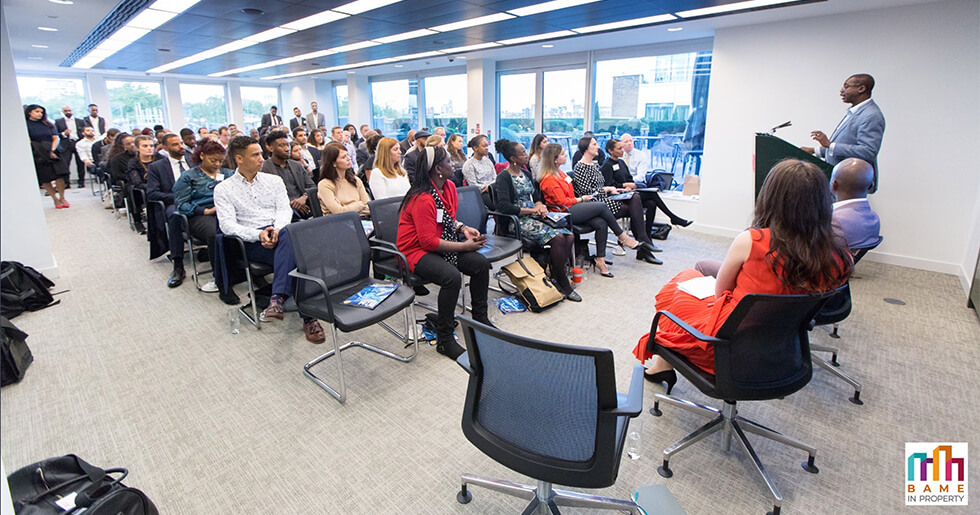
Are there women you look up to? Who are they and why are they inspirational to you?
Sounds cheesy, but my mother is the most inspirational woman in my life. She left her life in Kenya and then India and came to England in the 1980s. She has since worked so hard, raised three children and has never stopped supporting them. My mother encouraged me to read from a young age and it’s where my passion for learning and seeking more knowledge comes from. Even now, she is my biggest champion and there’s nothing that makes me happier than making her proud.
On a professional level, women like Karen Brady and Michelle Obama inspire me – they are so raw and authentic.
Click above image to learn more about this founder
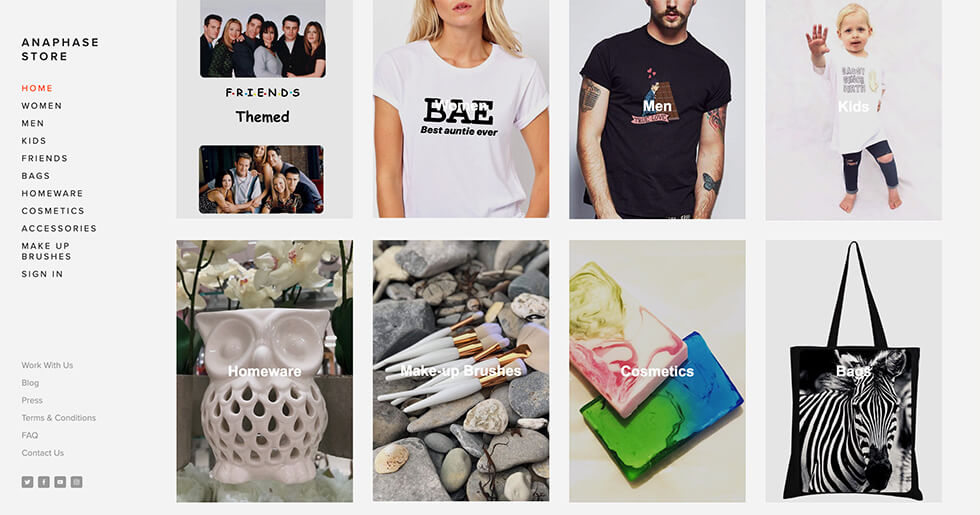
Are there women you look up to? Who are they and why are they inspirational to you?
"I don’t have an answer for this – there isn’t anyone I’ve looked up to"
Click above image to learn more about this founder
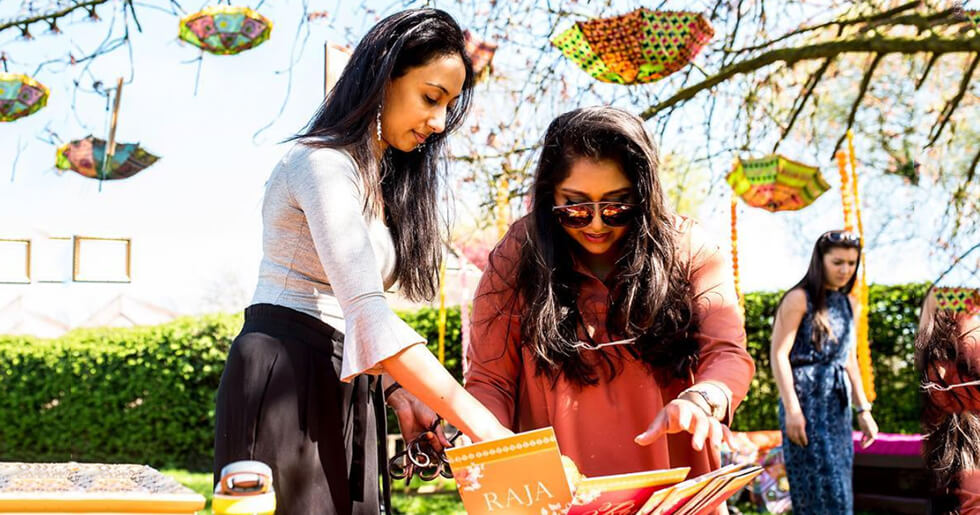
Are there women you look up to? Who are they and why are they inspirational to you?
There are many #bossbabes out there that I look up, women who have created empires while remaining true to themselves is something I inspire to be.
To name a few Huda Kattan a mogul in the beauty world who created something out of nothing, Serena Willams greatest female tennis players of all time and promotes body positivity, Michelle Obama who is inspiring all the young girls to spread their wings and soar!
Click above image to learn more about this founder
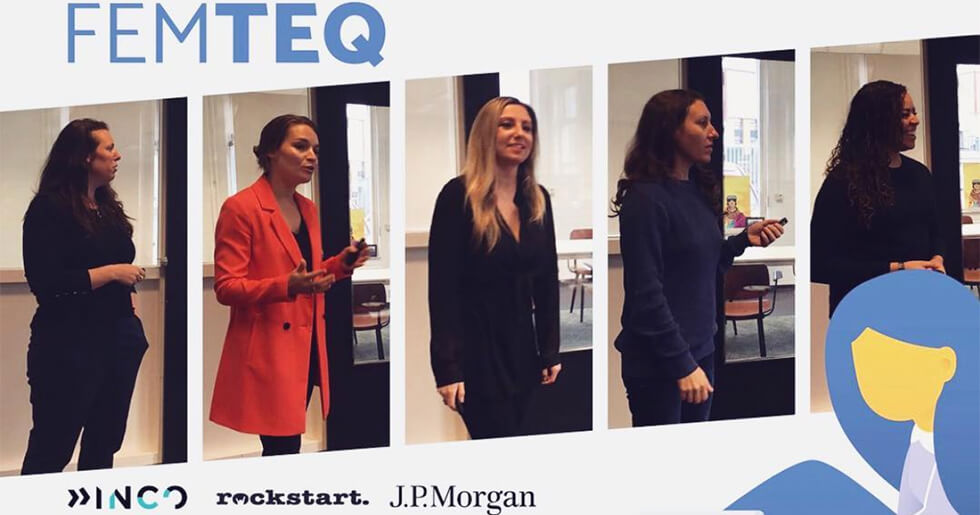
Are there women you look up to? Who are they and why are they inspirational to you?
I love looking at inspiring women, there are so many. Some very visible like Michelle Obama, Greta Thunberg, Malala Yousafzai, Emma González, Ruth Bader Ginsburg, Alexandria Ocasio-Cortez, Jacinda Ardern, Gillian Tans, etc. They are all trailblazers in their field, politics, IT, education and life.
For every 1 that makes it, 100 have failed. As women we are held to much higher standards. We're expected to behave a certain way, dress, converse, raise a family, work and express ourselves.
These women have all had a positive impact and are responsible for changes in perception, society and instigated action in the others around them.
Click above image to learn more about this founder

Are there women you look up to? Who are they and why are they inspirational to you?
I look up to Meghan Markle. She is such an inspiration to me, she is beautiful, elegant, well-spoken, determined and she is not afraid of being herself.
Click above image to learn more about this founder

Are there women you look up to? Who are they and why are they inspirational to you?
I know quite a few women who have set up their own businesses that are truly thriving and I really look up to them and love to talk to them about their journey, the obstacles they've faced, achievements they've had etc - they are inspiring to me because they have grafted hard to turn their passion into their profession and they never give up.
Click above image to learn more about this founder
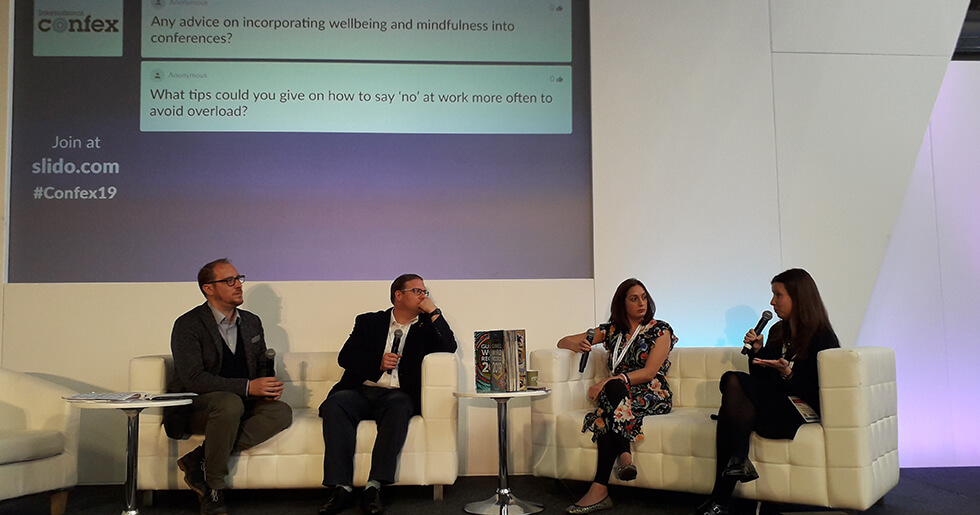
Are there women you look up to? Who are they and why are they inspirational to you?
I admire many women! Working mums who juggle successful businesses (and love their work) with their families. Women who have created and grown a business from nothing - I think sustainable growth is tough and I admire women who are able to do it.
I most admire women who can sell their services in an authentic, passionate way as I think there are so many people out there now saying "I can show you how to make xxx million" or "I can tell you how to do x" Someone who really truly gets it and does it and helps you without you feeling sold to is a great quality to have.
Click above image to learn more about this founder

Are there women you look up to? Who are they and why are they inspirational to you?
I really admire Wendy Braun. She's an actress who taught me a lot about meditation, mindfulness, about being grateful and about taking life easy. We often push ourselves so hard, that we end up pushing our goals away. Instead, it's important to first establish the vision of where you want to be and then focus on enjoying the ride.
Because, imagine that you've just achieved an amazing goal, say you got that new job. The euphoria that you'll feel will last a few hours, maybe even several days. But how much time did you spend getting that goal? Months, years, decades? So why are we focusing on those short-lived moments of euphoria, instead of just learning to love the things we do every day?
Click above image to learn more about this founder

What are your thoughts on work-life balance? Do you apply any techniques to achieve work-life balance?
I work on BAME in Property in conjunction with my day job as a Public Affairs Consultant in the property and planning sectors. I enjoy the collaborative nature of both roles but sometimes it will feed in to evenings and weekends. I’ve never seen this as an issue as I enjoy working on BAME in Property but managing my time has been key. I’ve become better as multi-tasking and prioritising tasks.
Having time for my friends and socialising is key – it keeps me insane and regularly meeting friends is an opportunity to share ideas and learn more from them. Having time to myself is also important and I try to make time to go the gym. My real solace is backpacking around a new country every few months, where I am officially ‘out of office’, and it gives me an opportunity to develop my ideas further.
Click above image to learn more about this founder

What are your thoughts on work-life balance? Do you apply any techniques to achieve work-life balance?
I am strict with myself on this and a lot of people are surprised I limit my time. A lot of people think you need to work 24/7 to run your business but you don’t wanna burn yourself out or start hating what you do. I work between 8am and 6pm Monday to Saturday; I use this time to check stocks, do my emails – literally run my business and I will only go outside these times if its an emergency or theirs an urgent request with a customer.
Click above image to learn more about this founder

What are your thoughts on work-life balance? Do you apply any techniques to achieve work-life balance?
I find the concept of work-life balance a little too simple. Do we mean balance day to day? Week to week? Or over the course of a career? I think it’s important to assess (and regularly reassess) your current goals and priorities, and tip the scales into the direction of what needs attention right now. Sometimes it’ll mean you need to focus more on work, sometimes it’ll mean friends or family, or sometimes it’ll mean health and rest. And that’s okay. That being said, I think it’s important for companies to proactively implement policies that are inclusive of these dynamic situations.
Click above image to learn more about this founder
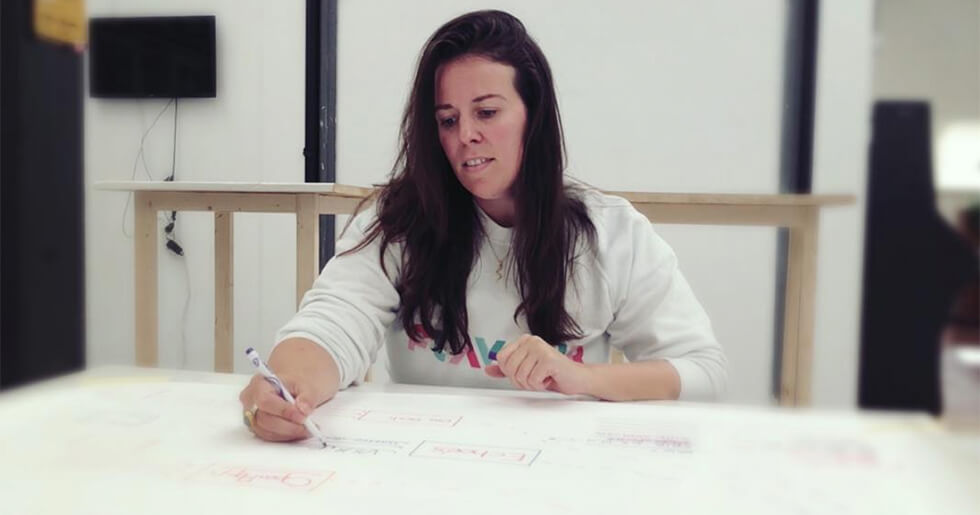
What are your thoughts on work-life balance? Do you apply any techniques to achieve work-life balance?
In modern society balance is an illusion, sorry to burst your bubble. Compared with going to the Ikea, stealing all the coloured balls from the ball-pit for kids, taking them home and dumping them out on the kitchen table. Now YOU try and keep them on the table, impossible.
Balance is an illusion, yes we can have it all, we just can't do it all (at once). Balance is acceptance that you can't do everything, you have to make choices. What has the highest priority? Is it checking your mail? Drinking a glass of wine with friends? Having a meal with your partner, running in the garden with the kids, closing a deal, going to the gym?
Every day, we accept that a few of those coloured balls are going to hit the floor. Leave them there I say, just make sure the ones that matter stay on the table.
Click above image to learn more about this founder
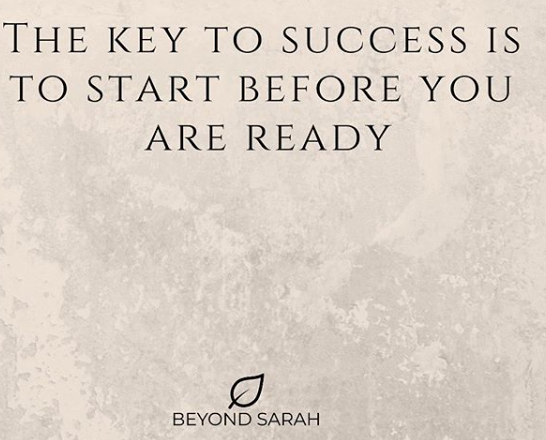
What are your thoughts on work-life balance? Do you apply any techniques to achieve work-life balance?
Generally speaking, as I work for myself I have a good work-life balance and I think it is really important for your mental health. I usually go to the gym every morning, work, go shopping when I have some spare time and also meet friends.
Click above image to learn more about this founder

What are your thoughts on work-life balance? Do you apply any techniques to achieve work-life balance?
Finding a work-life balance has been difficult for me, and I definitely wouldn't say I've achieved the right balance yet! I've started doing little things such as setting a time to turn off my work phone each day - it doesn't necessarily mark the end of my work day, but it creates some structure knowing that calls will only be accepted until a certain time.
I'd like to eventually give myself set working hours so I can completely switch off at a certain time.
Click above image to learn more about this founder
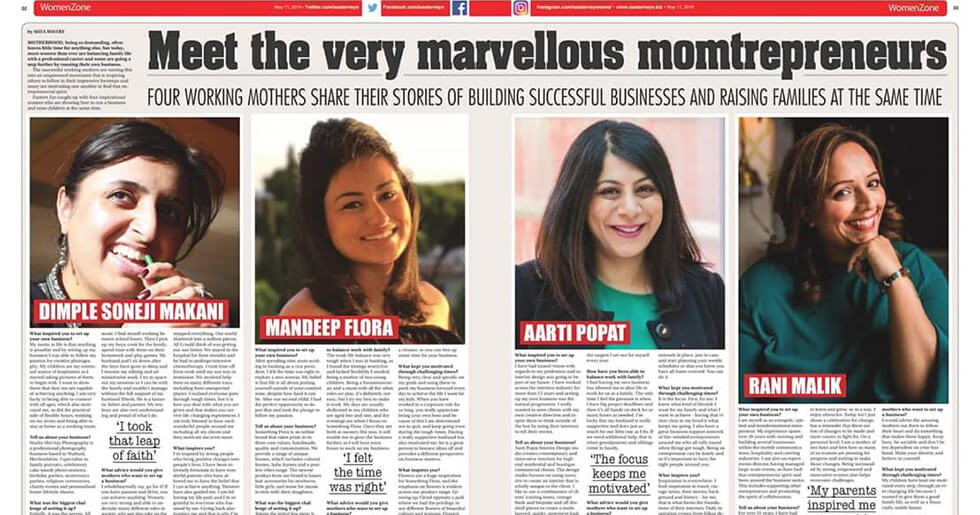
What are your thoughts on work-life balance? Do you apply any techniques to achieve work-life balance?
In life everything can be balanced,people get flustered and all worked up for no reason due to society, kitty groups and what people in the community are going to say. As a business woman I find time to chill work and balance all I need to it's all about commitment and positivity
Click above image to learn more about this founder

What are your thoughts on work-life balance? Do you apply any techniques to achieve work-life balance?
I think work-life balance is a bit of a myth. One area of your life will always be a priority at any given point and that's natural. I think balance comes from the awareness of where you want to and need to focus your energies (it might be family for a few years or business at the start of growing a business) and knowing what self care techniques you need in place to help get you there in a healthy way.
I have some techniques I try and maintain no matter what is happening in my life. Meditation, pausing and taking breaks (big and small), exercise and being aware of where my stress levels are.
Click above image to learn more about this founder

What are your thoughts on work-life balance? Do you apply any techniques to achieve work-life balance?
Make sure to schedule time to have fun. It sounds ridiculous, but (if you're a workaholic like me) unless you schedule it in - you'll miss out.
Click above image to learn more about this founder
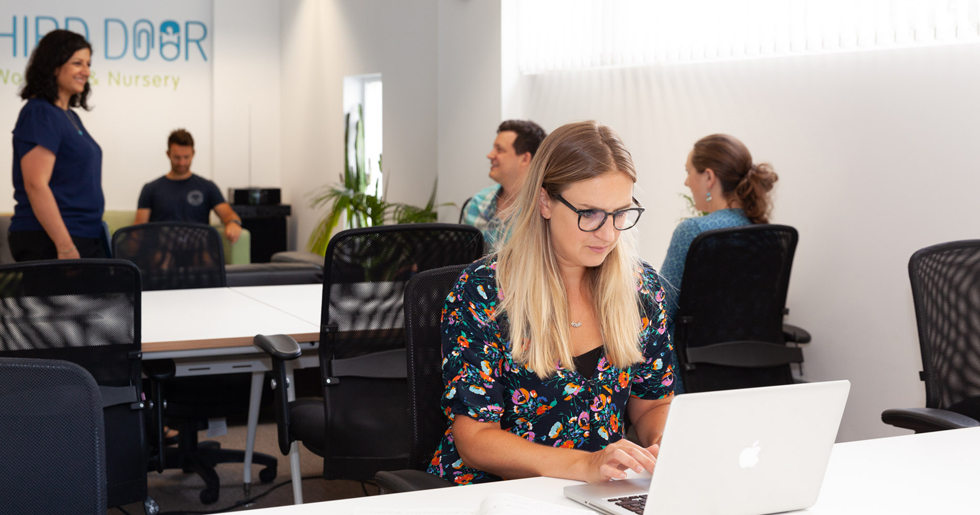
What are your thoughts on work-life balance? Do you apply any techniques to achieve work-life balance?
Having a work life balance now is so much easier than it was when we set up Third Door. Ten years on, I have a great team of people that run Third Door who follow all the systems and processes we have put in place. My husband tends to do the morning run and I will pick up the children and spend the afternoon taking them to their after-school activities. My children’s school has recently introduced a flexible/ad-hoc after-school service which means that I can book the children if I need to especially around meetings. Having set up a business with the intention of helping parents with their work/ life harmony, I always make sure I too spend enough time with my children during the week. Similarly, I will happily rearrange my working week if I feel that it is impacting my work/ life balance.
As a mother in business, I would remind mothers to remember to look after themselves both physically and mentally. That’s why I love going to the gym to do weightlifting, spending time at home baking, reading the latest book about feminism (!) or watching a great movie. Step away when you need to and work on your own schedule, not somebody else’s. Relationships with loved ones are more important than building your legacy or money. Because when all that fails, it is only relationships that you can fall back on to support you. Nurture yourself first and your relationships and everything else will work out. I step away from my work for a few days every few months and then go back to my ‘why’. I also make sure I have downtime for myself, as well as my family. I can’t stress how important self-care is. Likewise, to aid this focus on self-care, I also try to work shorter focused bursts, rather than long stressful days.
Click above image to learn more about this founder

What are your thoughts on work-life balance? Do you apply any techniques to achieve work-life balance?
Some may disagree, but I work to the hour. Of course, I will always overrun those hours but I will do my best to time myself and be as productive during this time. Setting smaller targets to achieve bigger targets is how I try to balance my work load, allowing myself some socialising time.
Click above image to learn more about this founder
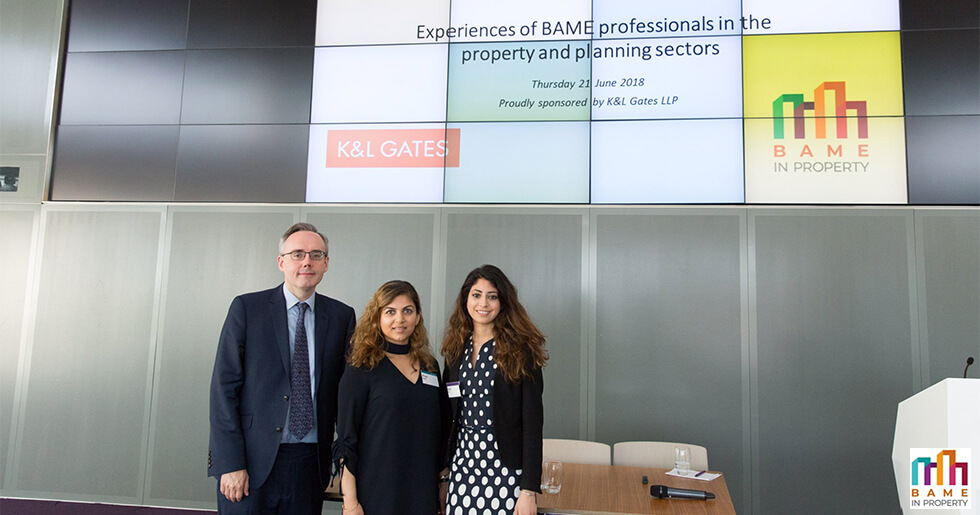
How did you know it was the right time to start your own venture/ initiative? How would you advise someone who is just starting out with a project outside of their regular 9-5 job?
If you have an idea and a passion, just go for it. I like to describe myself as an ‘intrepreneur’, someone who has an entrepreneurial mind but is working ‘inside’ a larger company. This is fine, as sometimes you need this space and the resources to develop an idea. I was very fortunate to have backing by the company I was working in (Built Environment Communications Group) to start BAME in Property and that helped significantly. Having those around you who can help and support you is key – without this, it may be difficult to balance the side hustle with the main one.
Click above image to learn more about this founder
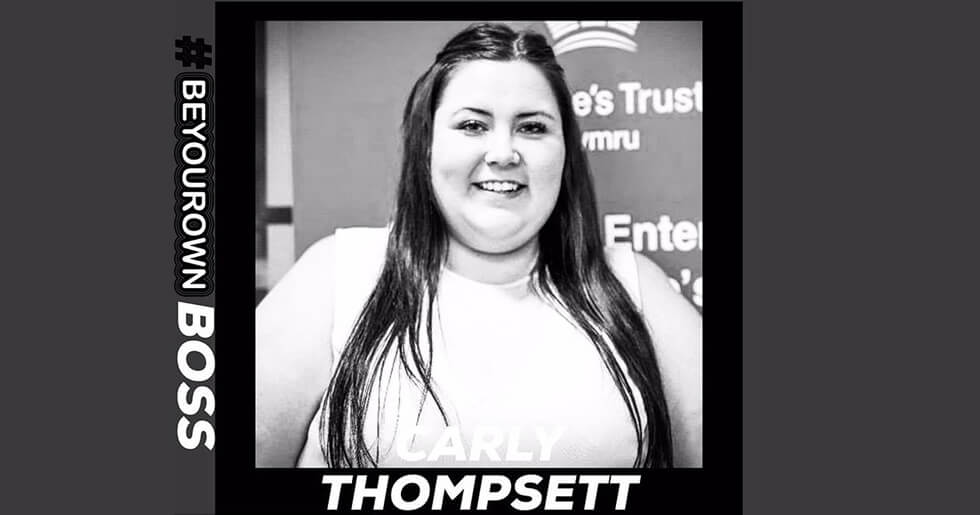
How did you know it was the right time to start your own venture/ initiative? How would you advise someone who is just starting out with a project outside of their regular 9-5 job?
To just do it! It’s like planning a baby – there will never be a right time. I always tell people, don’t live a what if life – if I hadn’t had moved to Cardiff would I have ever started my business, would I have achieved everything I have; well I don’t know but if indent give it a shot, how would I have known. even if you fail, you can still say you tried.
Click above image to learn more about this founder
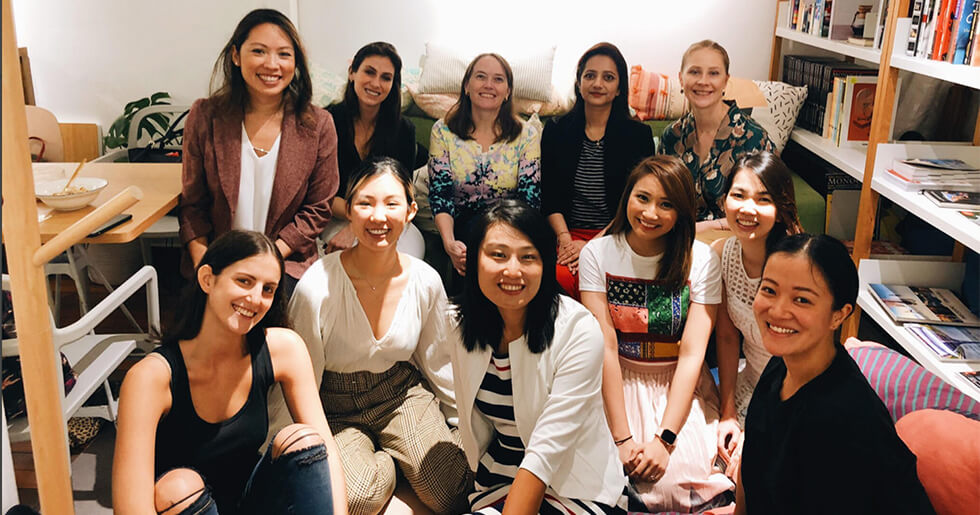
How did you know it was the right time to start your own venture/ initiative? How would you advise someone who is just starting out with a project outside of their regular 9-5 job?
There’ll never be a “right time”. For me it was very calculated: it was giving myself a set personal runway to experiment as I wanted to try out a few things at the same time. I wasn’t sure exactly what I was starting up, nor where I wanted to be to do this, so I made sure to save up at least 12 months of expenses for me to have time to figure things out. I treated it as an educational expense. For people who are looking to start out with a project outside of their regular 9-5 – I would advise to hold on to your 9-5 for as long as possible. You might need to give up your social life for a while, but on any given week you probably have 30-40 hours to work on your side project and look for positive indicators before you give up your stream of income. There are few things more mentally taxing than worrying about a project not going anywhere, and no money at the same time. When it starts feeling right, take the plunge! Worst case, you can always find another job for a while and try again. It doesn’t have to be a one time thing.
Click above image to learn more about this founder
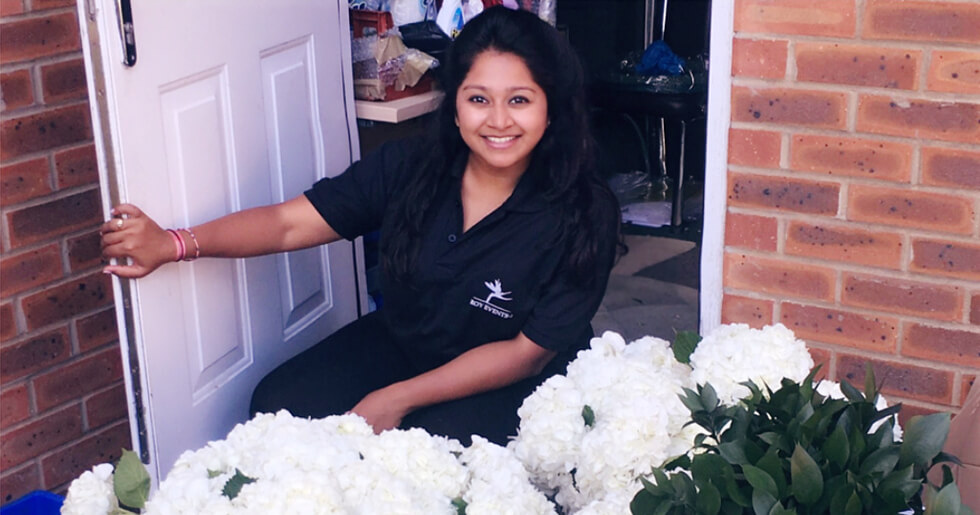
How did you know it was the right time to start your own venture/ initiative? How would you advise someone who is just starting out with a project outside of their regular 9-5 job?
As cliché as I can be, there isn’t a right time to start your own venture! You just have to take the plunge. Time management and keeping yourself motivated when you run your own business is a big challenge. Initially when I started out I had moved from a buzzing office environment to working on my own in my room! So the change was drastic.
If you are starting something new have a business plan, strategy in place, without a plan you will feel directionless and wont know where to start.
Click above image to learn more about this founder
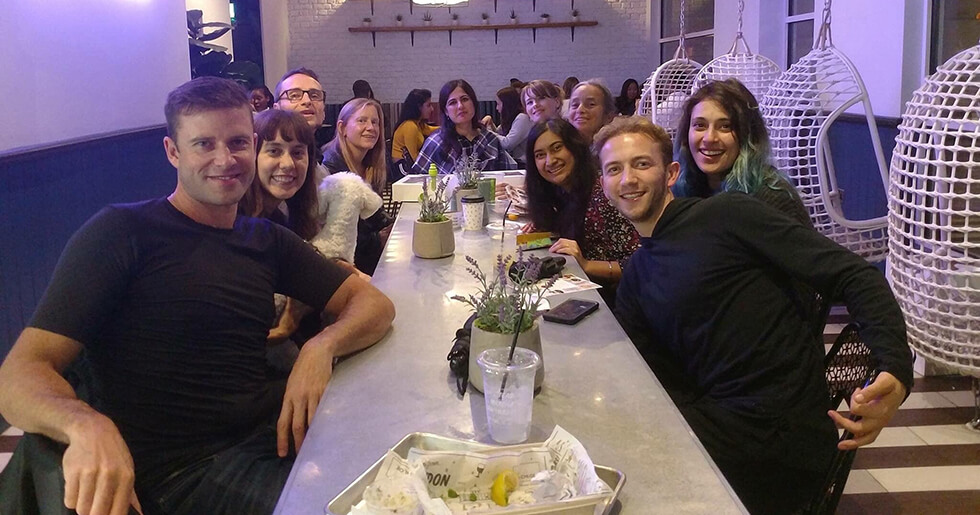
How did you know it was the right time to start your own venture/ initiative? How would you advise someone who is just starting out with a project outside of their regular 9-5 job?
At the time, I was thinking of starting my own vegan business but I wasn’t sure what to do or whether I’d be able to do it. I’d only ever worked for other people, so it was a really daunting prospect going it alone. I’ve had so many ideas in the past, which were all pie in the sky. However, I didn’t want to go back into the corporate world where it was full of politics.
I would advise anyone to just keep at it, while doing your regular 9-5 job, until you have reached a point where you can go full-time. It’s a lot of hard work, and there will be days when you’ll feel like it’s such a struggle. What you need to keep in mind is your why did you start your venture/initiative in the first place and use that to motivate you to achieve your goals and vision.
Click above image to learn more about this founder
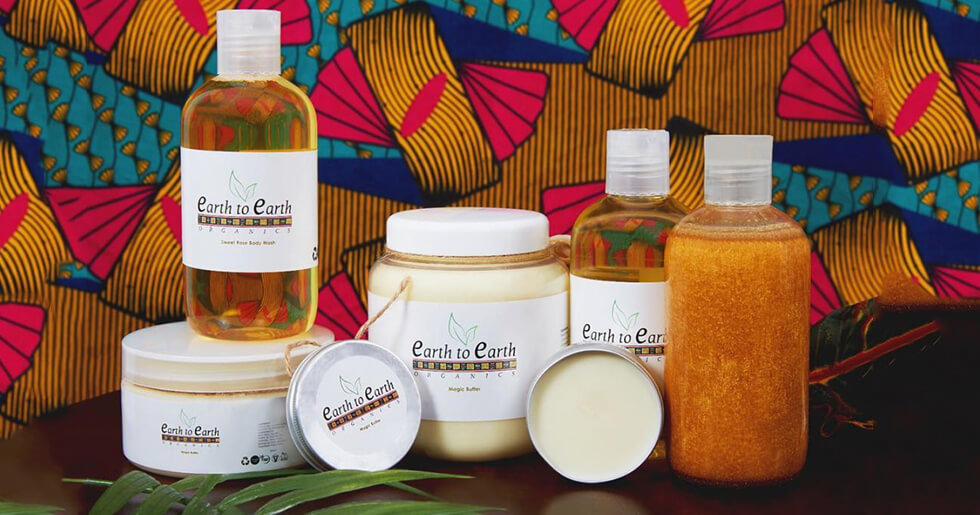
How did you know it was the right time to start your own venture/ initiative? How would you advise someone who is just starting out with a project outside of their regular 9-5 job?
I didn’t know really, I just did it. I find with anything that it’s better to start it than to wait until things are perfect.
I’d say go for it but be prepared for the long hours because your day now becomes 7-8 or in my case 5-7 it just depends on what works best for you. You have to sacrifice your time to build your business.
Click above image to learn more about this founder
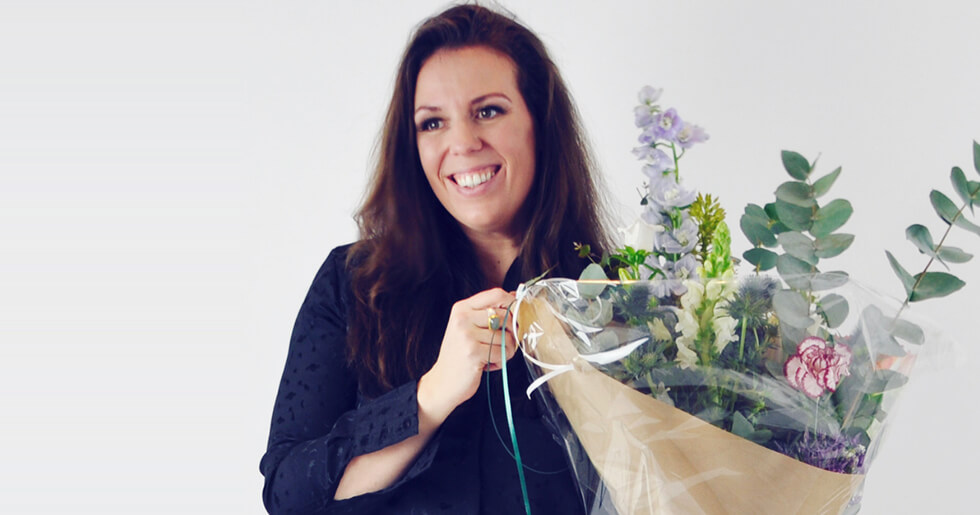
How did you know it was the right time to start your own venture/ initiative? How would you advise someone who is just starting out with a project outside of their regular 9-5 job?
I didn't, I took a leap, without any financial security, experience or prospects. All I had was support from my family and friends and faith that I had nothing to lose.
Every birthday party, a person always asks me advice on the 'perfect time' to start. What you're really asking me is if there is a guarantee, there never is. The best way to do something is to do it (or accept that you don't do it).
Click above image to learn more about this founder
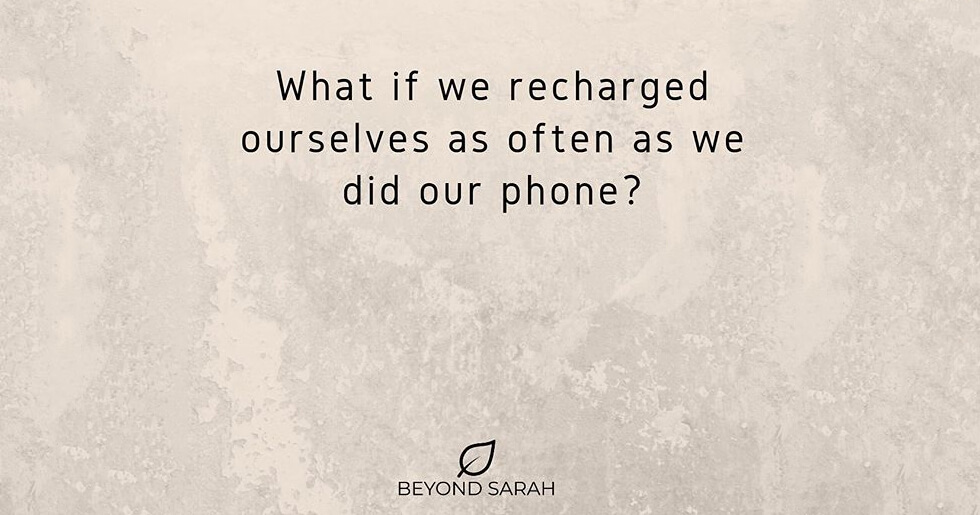
How did you know it was the right time to start your own venture/ initiative? How would you advise someone who is just starting out with a project outside of their regular 9-5 job?
I was working in a job where I did not learn anything and where the culture was toxic. So, I decided I needed to start my own company, do what I love and under my own terms. I am turning 30 this year and thought if I don't start now, I'd never have the courage to start. I would advise them to truly pursue their calling and what they are passionate about.
Click above image to learn more about this founder

How did you know it was the right time to start your own venture/ initiative? How would you advise someone who is just starting out with a project outside of their regular 9-5 job?
Since leaving university I just knew I wouldn't be truly happy career-wise unless I was working for myself, but I knew if I wanted to create my own business I would need a sum of money to get it started.
So I worked in a number of jobs for a few years, whilst growing the business bit by bit on the side - eventually I got to a point where I knew it was a matter of taking the plunge, quitting my job and devoting all my time to the business.
I had saved enough money to have a 'safety net' for the first 4-6 months, and had built up a client base that I could rely on for some income. Ultimately I knew if I stayed in my 9-5 job, I would never have enough time to take on more orders and without more orders the business would not develop - so I made the choice to leave...and I haven't looked back!
Click above image to learn more about this founder
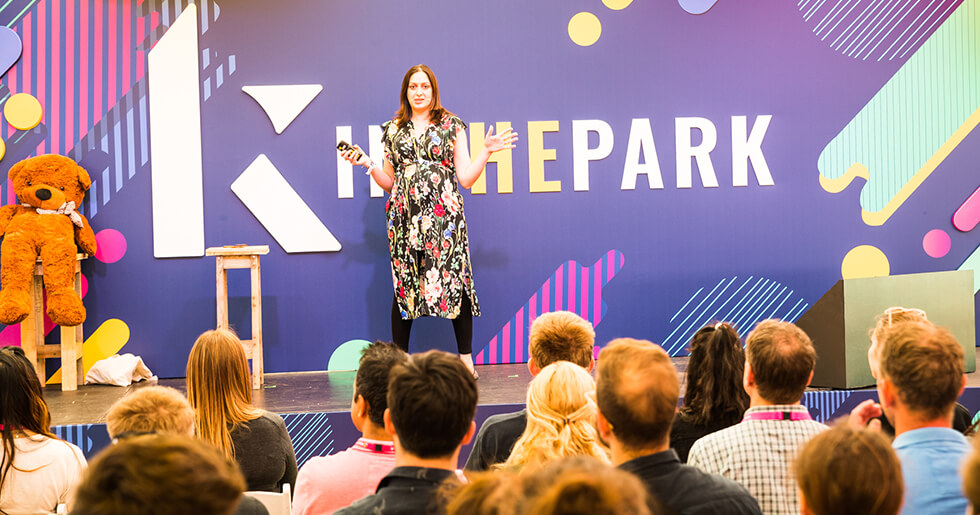
How did you know it was the right time to start your own venture/ initiative? How would you advise someone who is just starting out with a project outside of their regular 9-5 job?
I got to a place of pain and discomfort in my corporate role and that was the push I needed to start my own business. Not ideal and I wouldn't advise that to everyone but often we don't feel the need to change the status quo unless we feel that pain. I had also had my own experiences with burn out/ stress and knew I wanted to help other businesses . It felt like the right time although it is always a big leap.
My main advice would be to build up your side income as much as possible before quitting your day job - but also know what your tipping point is as sometimes we choose comfortable for too long. I had a strong vision of how I wanted my life to be and so I knew I needed to take steps to make it happen rather than wait for opportunities to come up.
Click above image to learn more about this founder

How did you know it was the right time to start your own venture/ initiative? How would you advise someone who is just starting out with a project outside of their regular 9-5 job?
I think first it's important to find something you're passionate about. If you're only thinking about the money - forget it, it won't carry you through the lows.
Once you've found your passion, work out whether there is a problem you can solve. Then create an MVP - something you can manage on the side. Once the idea and the business has matured and you're starting to make a bit of income, that's when you're ready to quit your job. I won't lie, it's a lot of time and effort, but boy it's worth it!
Click above image to learn more about this founder

How did you know it was the right time to start your own venture/ initiative? How would you advise someone who is just starting out with a project outside of their regular 9-5 job?
To be frank, I didn’t know that it was the right time, I’m not sure you ever do. I had an idea for a business back in 2006 and left my career to work on that, quickly realising I had no idea how to monetise the idea! I had no regrets as my attitude was at least I tried.
A few months after I had my first child back in 2007, the only thing I knew for certain was that I wanted to return to work and further my career. However, like most new mums, I was reluctant to be far from my baby and wanted somewhere I could work in peace whilst my little one was cared for nearby. My husband was also studying for a self-funded MBA at the time as well as working full-time as a remote employee. When I suggested the idea of Third Door to my husband, he immediately understood the concept and based it as a feasibility study for his MBA dissertation. When he received a Distinction for his work, we decided to set up Third Door for real and two years after the initial idea we launched Third Door, in Putney, London. The world’s first coworking space, with an onsite flexible nursery, was finally open for business.
The timing may not have been spot on (I mean back then no one even knew what coworking was) but we completely believed in the idea and the stronger vision of creating a spaces where family and work could grow together. The conviction was so strong that we built Third Door as we could see that in the future, knowing that this would be type of spaces parents would be looking for. And I am so glad we did it when we did; to pioneer a whole new concept and see so many follow in our footsteps has been pretty amazing.
Click above image to learn more about this founder

How did you know it was the right time to start your own venture/ initiative? How would you advise someone who is just starting out with a project outside of their regular 9-5 job?
It was the fear of regret, the adrenaline rush and the unknown which pushed me to do it. Three years of planning still isn’t enough to launch any brand, but learning along the way is better than not knowing how to move forward. With having my own fashion brand and my blog, equally as important passion is digital marketing which is my somewhat 9-5 position. Someone who is reading this right now and thinking of when to start that project they have been dreaming about, I would say DO IT! Build connections, put yourself out there and bounce off like minded people who will encourage you to reach higher!
Click above image to learn more about this founder
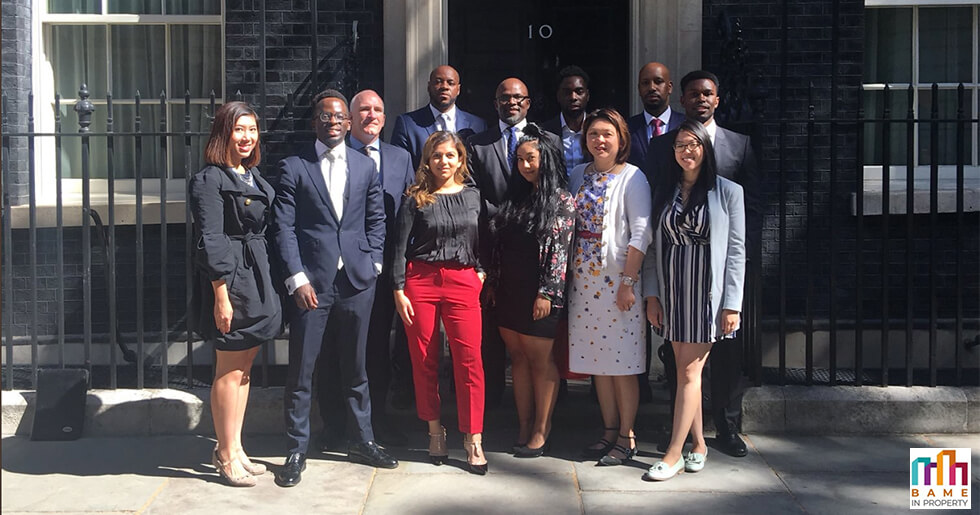
What have you learned about leadership, entrepreneurship and mentoring others?
Be fun but firm – balance is key. No one wants to be working with someone who is set in their ways, so being open to ideas is important. My mum always says that ‘no five fingers are the same’, and I never really realised this until I was leading a group of different personalities. I’ve embraced this, as bouncing ideas of colleagues has been a testament to BAME in Property’s success. There is no right way of being a leader, as everyone has their own style, but for me, a relaxed approach works.
Click above image to learn more about this founder
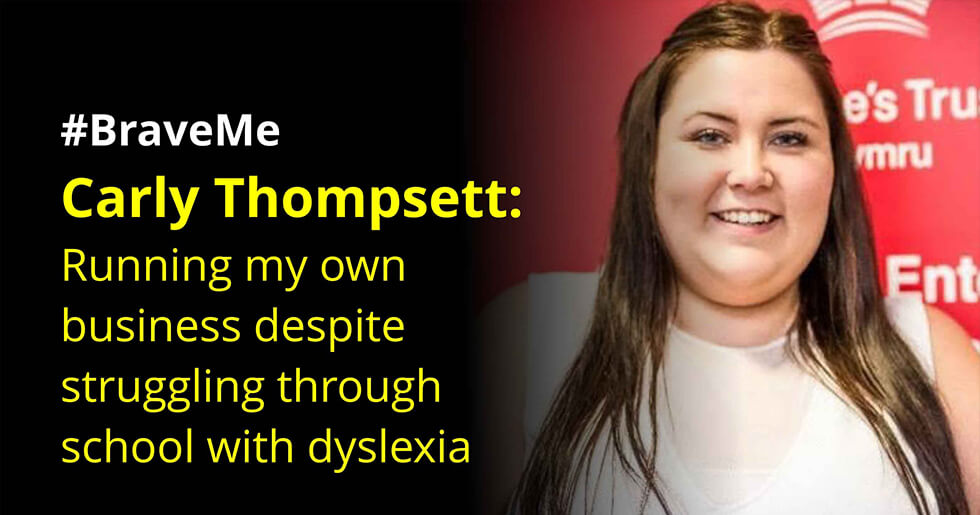
What have you learned about leadership, entrepreneurship and mentoring others?
I have found that people think it’s an easy journey and it isn’t – sometimes far from it. I mentor others because when I started my business I didn’t have anyone to help me even with the basics sometimes and it was so frustrating – so I like to let people know I am here if they need assistance but I don’t just give the answers out. I point people in the right direction.
Click above image to learn more about this founder

What have you learned about leadership, entrepreneurship and mentoring others?
A mentor of mine used to say, entrepreneurship is hard, but it doesn’t have to be lonely. Find your people. They’re out there! But it just takes a little bit of work to find them. If you’re an introvert and not much of a networker – put yourself into situations where you can organically form relationships. It might mean online communities or attending some group workshops.
Click above image to learn more about this founder
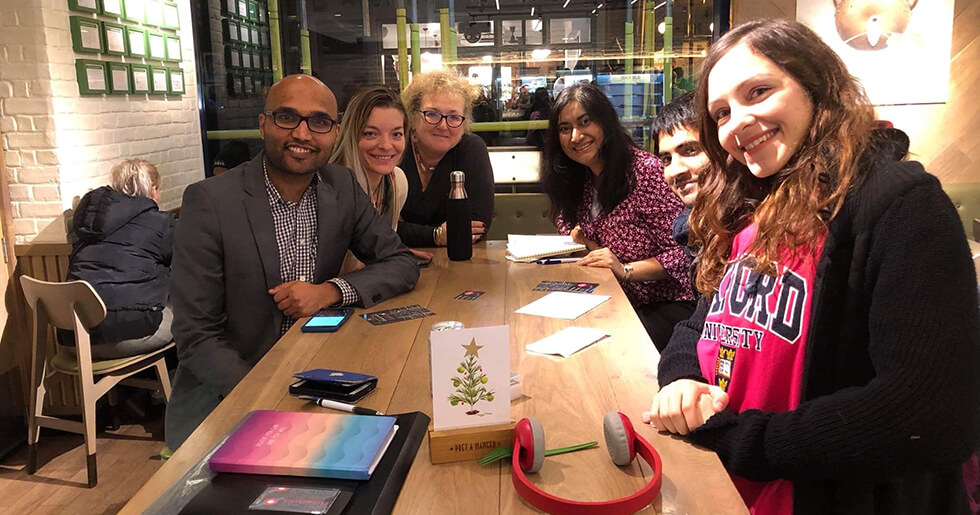
What have you learned about leadership, entrepreneurship and mentoring others?
When I was at school, college and university, I was not a natural leader. Through my business, I’ve learned that leadership is not about whoever shouts the loudest. It’s about working together as a team and knowing and utilizing your own skillset and the skillset of others.
I’ve also learnt that there are skills that you can learn as an entrepreneur, but you also need to listen to your gut instinct. There will be a lot of time wasters, so it’s about spotting them quickly and sifting those out so that you are not wasting hours of your time on activity that is fruitless or unproductive.
In regard to mentoring others, how you can motivate them is key to their and your own success. There is a quote by Joel Osteen, which encapsulates this very well:
“Being successful doesn’t necessarily make you great. What makes you great is when you reach back and help somebody else become great”.
Click above image to learn more about this founder

What have you learned about leadership, entrepreneurship and mentoring others?
Honestly, I am on my own journey, learning something new every day. The only thing I can do is communicate where I'm going and make sure there is room for others. As a woman I have some fierce beliefs that impact everything I do, impact the person that I am, impact my leadership.
One of the fundamental things I believe is that there is enough sun to shine on all of us. As women when we enter the boardroom we should not be fighting over the 1 seat assigned to us, we should unite in fighting for more seats.
As an entrepreneur, I want to work with amazing people, smarter than me, better than me, so I can learn something every day.
Everything I learn I give to others, I hope it offers them value. I share my success, but that's easy. I also share my failures, because if I show the challenges I run into and how I failed, someone else might choose a different path and succeed for all of us.
Click above image to learn more about this founder
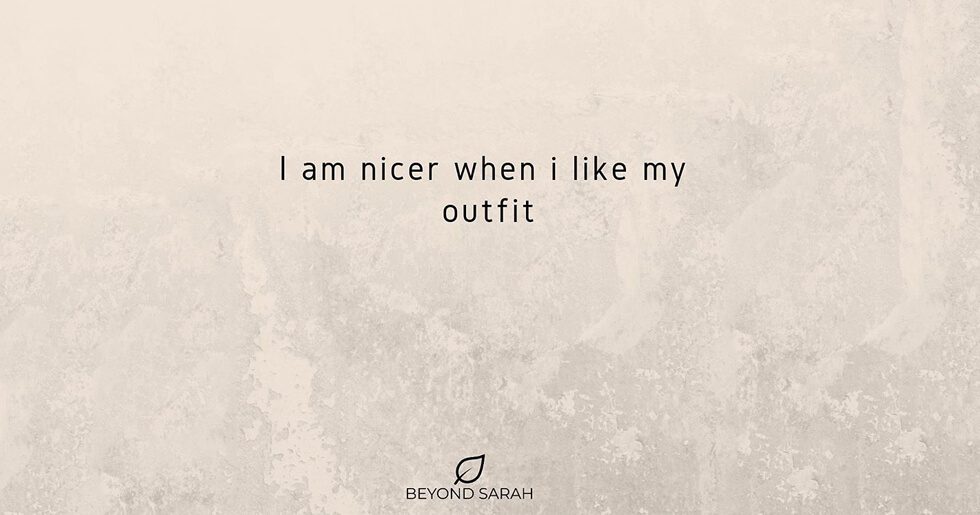
What have you learned about leadership, entrepreneurship and mentoring others?
I have learned that you learn new skills, every single day. I feel like I am back at university, learning a new course everyday. You also need to be passionate about what you do, as you will get rewarded.
Click above image to learn more about this founder

What have you learned about leadership, entrepreneurship and mentoring others?
I've learnt that you never stop learning!
Click above image to learn more about this founder
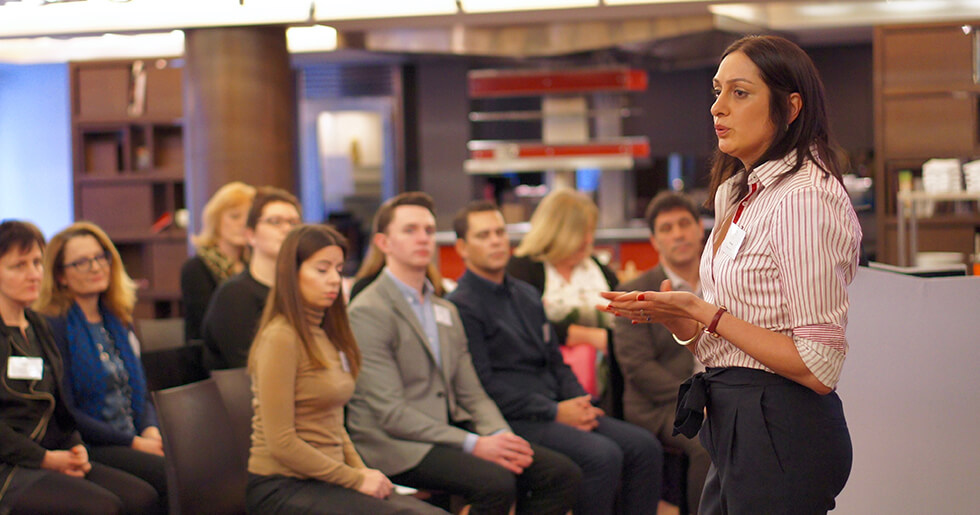
What have you learned about leadership, entrepreneurship and mentoring others?
To me, entrepreneurship is not what we all do - it's about coming up with something new / different. I don't see myself as an entrepreneur - I see myself as a business owner! I admire people who create a new product or service as it's harder.
Leading others is also a privilege, a gift and a learnt skill. Leaders have a big responsibility to take their teams on a journey and look after them / support them on it. It's not enough to lead a business - you lead people.
Mentoring is an interesting one. I wouldn't be where I am without the wisdom, advice and support of people ahead of me. and yet so many people contact me wanting free advice / well-being advice. I have paid for many business coaches and mentors as I try to respect people's time and experience - there's a limit to what you can ask for free. The biggest thing I have learnt is that most of the journey is slow, takes time and there are no shortcuts to be picked up from people- you just have to do the work!
Click above image to learn more about this founder

What have you learned about leadership, entrepreneurship and mentoring others?
I am still learning every day. Thanks to the support of my partner Tom, I've recently started to think much more visionary - looking for the big picture (my tendency is always to get bogged down in detail).
Once you have a clear vision of where your business needs to be, it's so much easier to bring on new team members.
With regard to mentorship, I'd say it's kind of similar to what I've said about the imposter syndrome question - you don't have to teach your mentee everything. Just teach what you're passionate about (that's most likely going to be your biggest strength).
Click above image to learn more about this founder
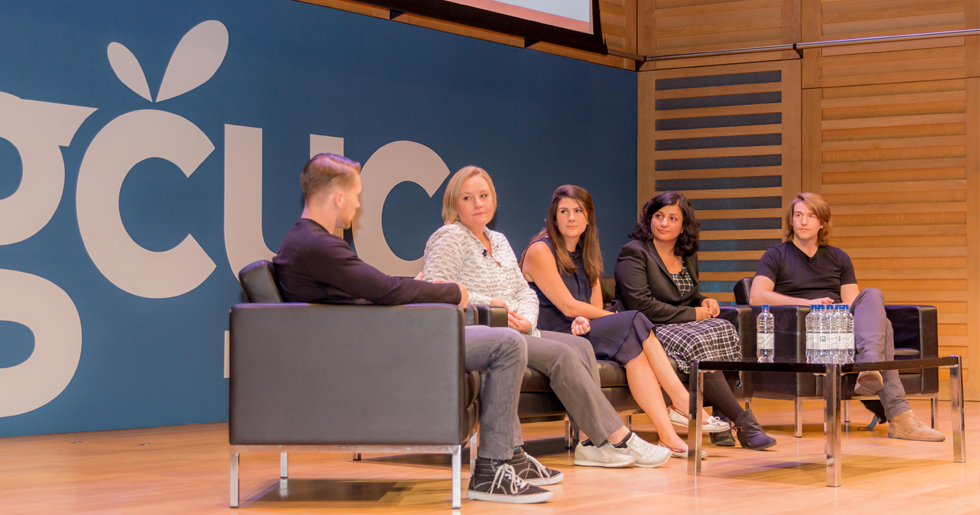
What have you learned about leadership, entrepreneurship and mentoring others?
The women I look up to most are those who support and nurture other women’s successes. I personally live by the famous Madeline Allbright quote “There is a special place in hell for women who do not help other women”. Being surrounded and supported by other amazing businesspeople is essential for leadership success and is a key ingredient when mentoring others.
Click above image to learn more about this founder
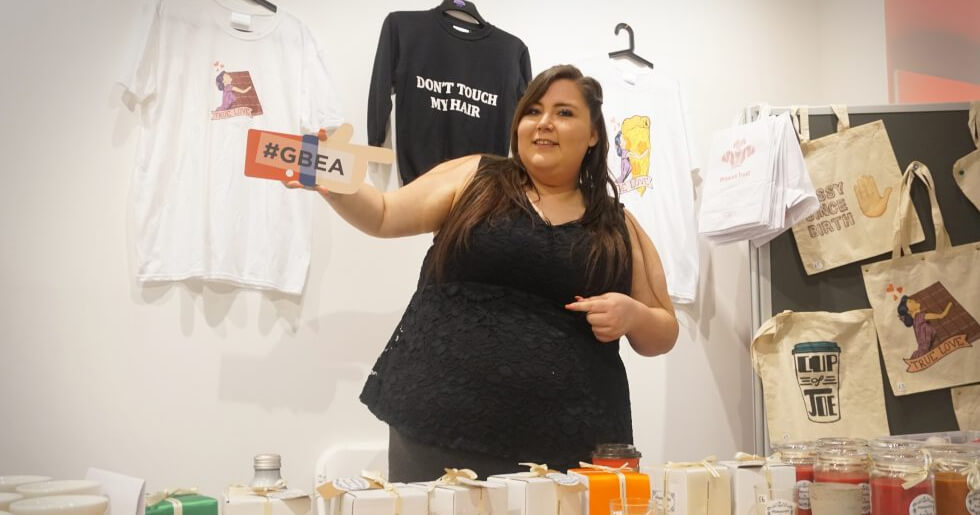
What mistakes do you see people make when they first start their own venture/ intiative/ business and what advice would you give to women so that they can avoid making these mistakes?
More with clothing brands that start up then ask me for help. I don’t mind giving some advice but I had to find out the hard way, so they should too. I learnt a lot of my lessons from failing or having to research something in a different way; I don’t wanna take those lessons away from that person. The main bit of advice I always give new brands when contacted is 1) don’t buy followers, 2) what you like isn’t always what your customers likes and 3) just because you harass a famous person to wear the designs you love, doesn’t mean you will sell out of stock in 5 minutes – cool it and take it slowly.
Click above image to learn more about this founder
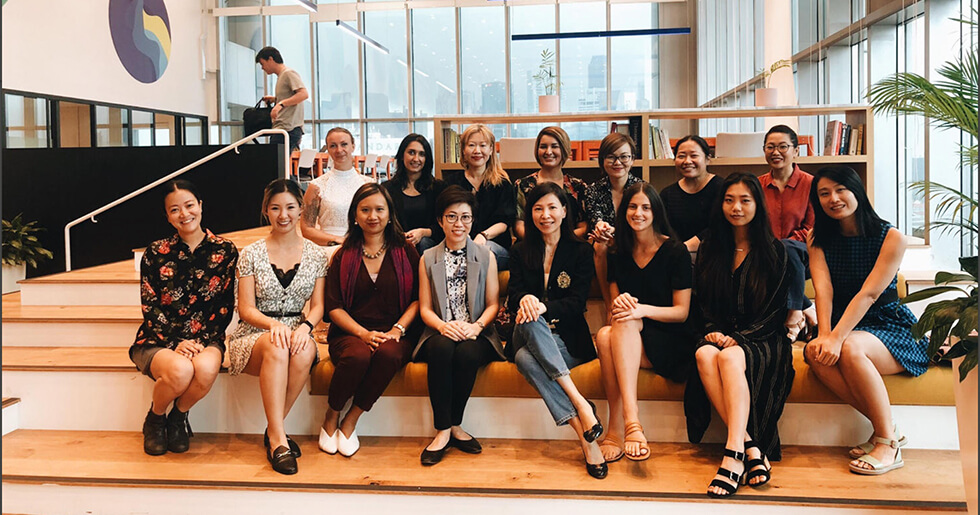
What mistakes do you see people make when they first start their own venture/ intiative/ business and what advice would you give to women so that they can avoid making these mistakes?
A little contradictory but two underrated pieces of advice.. 1) The internet is a goldmine. Learn from the mistakes of others, and do your homework online. 2) What you read online is not necessarily the only way to do something. Talk to people, and get creative. There is no rule book in entrepreneurship – which is challenging for many people who have gone thru a traditional school to job route to embrace as we have been taught to learn the rules and pass a test.
Click above image to learn more about this founder

What mistakes do you see people make when they first start their own venture/ intiative/ business and what advice would you give to women so that they can avoid making these mistakes?
A lot of people, including myself, use the scattergun approach targeting anyone and everyone. It’s important that you do your own research into the market. It will save a lot of effort, time and resources in the long run if you focus on your target market.
Ensure that you have done a business plan, even if you are not looking for funding, and look at your business plan on a regular basis to check if you are meeting your goals and targets.
Also, don’t be afraid to ask for help and support. Don’t feel that you have to do everything yourself. You can outsource a lot of the tasks, which can free up your time. For example, hiring a bookkeeper, virtual assistant or PR/marketing expert.
Click above image to learn more about this founder
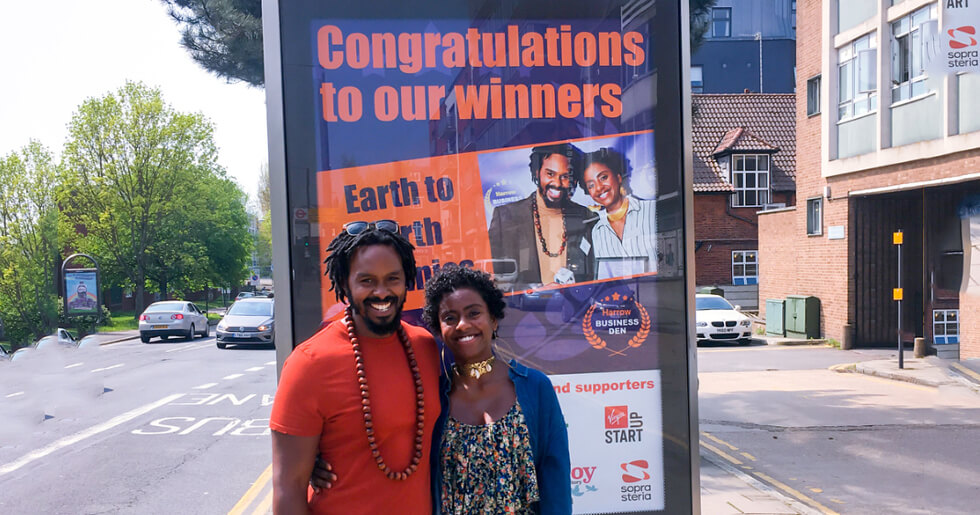
What mistakes do you see people make when they first start their own venture/ intiative/ business and what advice would you give to women so that they can avoid making these mistakes?
Waiting, so many people say things like ˜I’m not ready, i’m just trying to find the perfect colours for our brand, the packaging isn’t where it needs to be. Often people have had an idea for years but I’ve met women who have sat on an idea waiting to launch it and because they’ve waited so long someone else who had the same brilliant idea beat them to it. Don’t wait, don’t do it, start it today you can tweak it along the way, you’ll get great feedback from your customers along the way. Share the journey with them and you can grow together.
Click above image to learn more about this founder
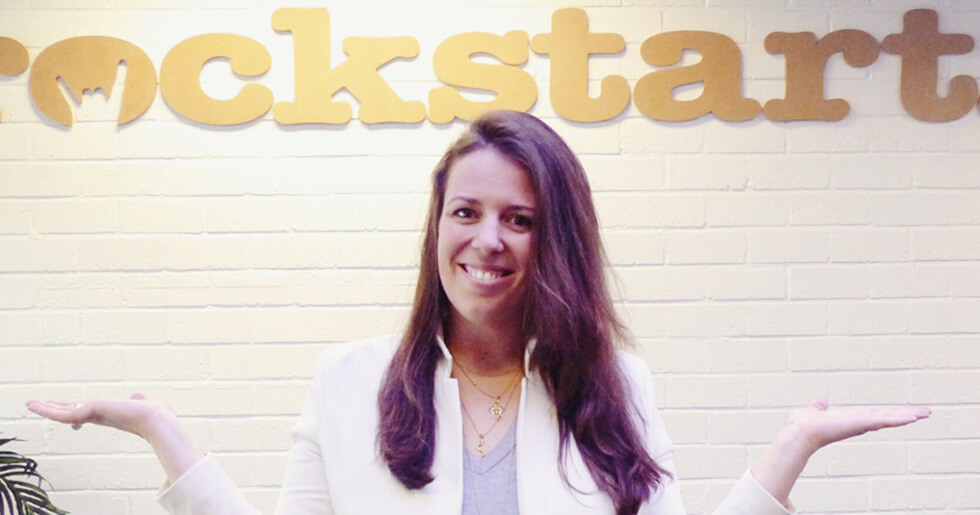
What mistakes do you see people make when they first start their own venture/ intiative/ business and what advice would you give to women so that they can avoid making these mistakes?
Starting is always trial and error, the assumption that there is a 'right way' to do it would mean the end of innovation. I believe that if you truly think you can accomplish something, you make mistakes until you get it right.
Click above image to learn more about this founder
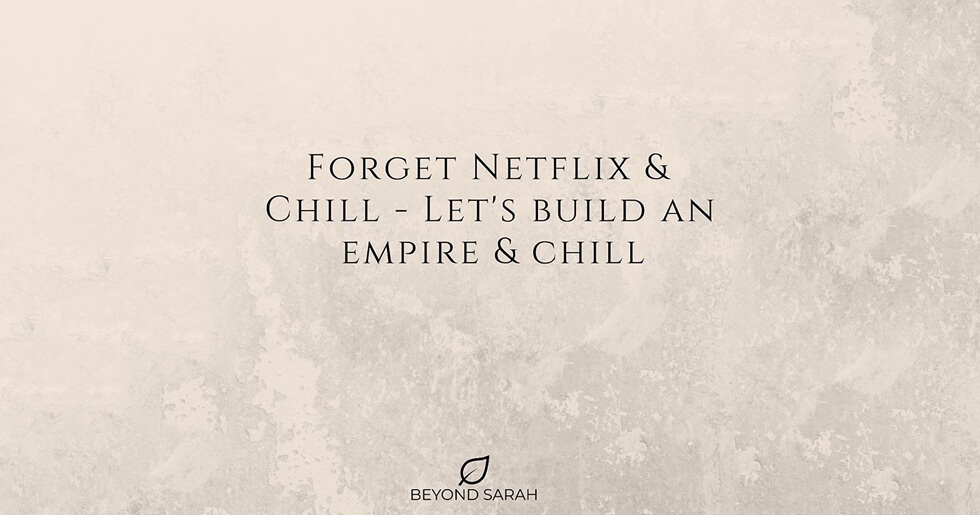
What mistakes do you see people make when they first start their own venture/ intiative/ business and what advice would you give to women so that they can avoid making these mistakes?
The most common mistake is that often we find a web designer and paying a large sum of money, when there are tools such as Wix and SquareSpace where you can create a website instantly.
Click above image to learn more about this founder

What mistakes do you see people make when they first start their own venture/ intiative/ business and what advice would you give to women so that they can avoid making these mistakes?
I'm not sure about others, but I know I've certainly made mistakes in my business journey so far!
I would say the main thing with hindsight I would have done differently would have been to make a better business plan at the beginning - in all honesty I kind of made it up as I went along, which has had it's ups and downs - I'd advise others to start off with a clear plan, including goals, forecasts, predicted problems, monthly or quarterly reviews etc - this will give you a better vision of what you are hoping to achieve.
Click above image to learn more about this founder
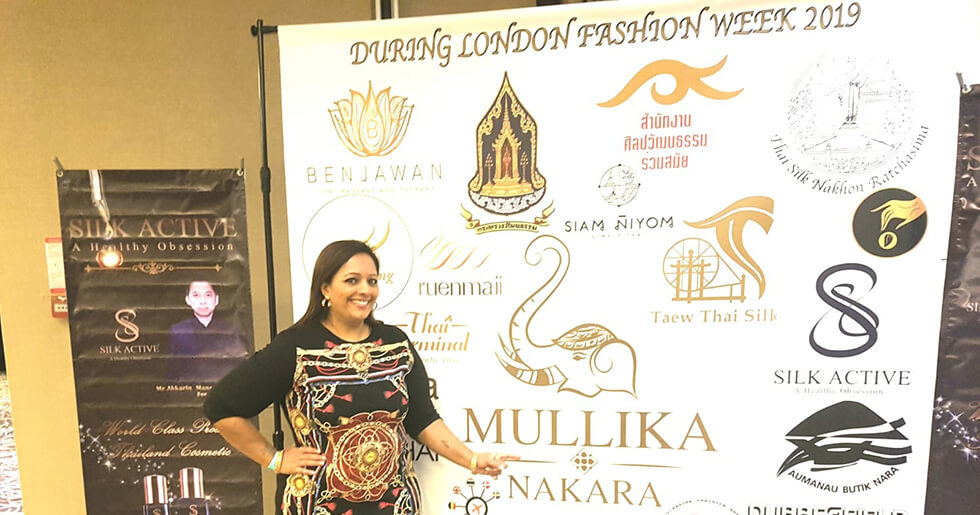
What mistakes do you see people make when they first start their own venture/ intiative/ business and what advice would you give to women so that they can avoid making these mistakes?
Do some research on what you decide to do, do not expect miracles straight away to have positivity and do not give up on a few rejections, give it a chance don't keep changing from one business to another people will not take you or your projects seriously.
Click above image to learn more about this founder
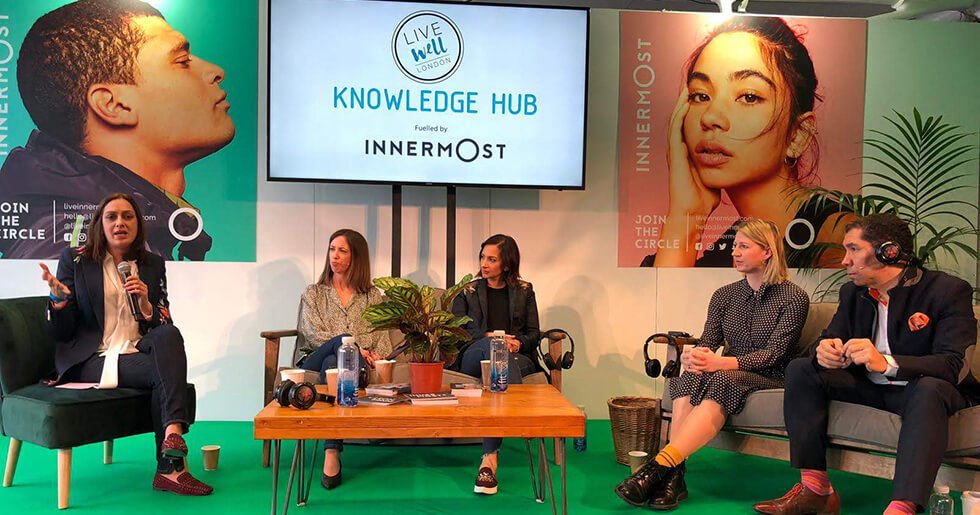
What mistakes do you see people make when they first start their own venture/ intiative/ business and what advice would you give to women so that they can avoid making these mistakes?
The biggest mistake is doubting yourself as that can really hold you back. Doing the work early on, on self-belief, USP, money can help you a lot as we hold ourselves back. I would highly recommend women starting out to get a coach / mentor early on to help them iron out any fears/ limiting beliefs. I also think having structures in place - budgets, cash flows, marketing plans can be really useful as often we start with clients and then realise we don't have the systems in place to help us grow!
Click above image to learn more about this founder

What mistakes do you see people make when they first start their own venture/ intiative/ business and what advice would you give to women so that they can avoid making these mistakes?
I think people tend to get into too much detail too quickly. Always understand the big picture first, then work out the details.
Click above image to learn more about this founder

What mistakes do you see people make when they first start their own venture/ intiative/ business and what advice would you give to women so that they can avoid making these mistakes?
Most of them tend to rush in their venture without doing much of due diligence. “Slow and steady wins the race” – is my personal preference.
Click above image to learn more about this founder
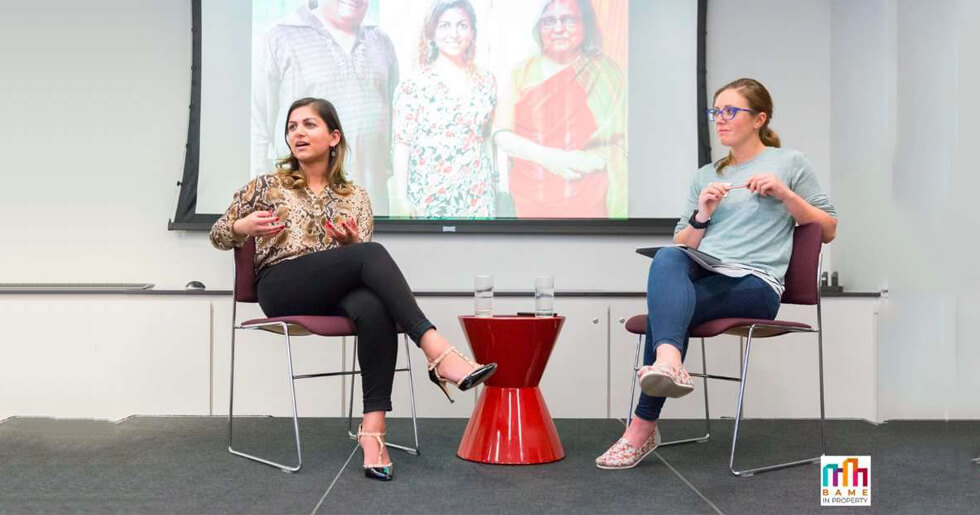
Are there any resources/ books you would like to recommend for the women who read your #AspiringWomen article?
I’ve not really been someone who reads ‘motivational’ books, rather, I recommend reading in general – not trash of course, but good, wholesome novels and books about anything that interests you. For me, this is history, politics and travel and this helps with the development of my ideas. It broadens my mind and gives context to what I am trying to achieve.
Click above image to learn more about this founder
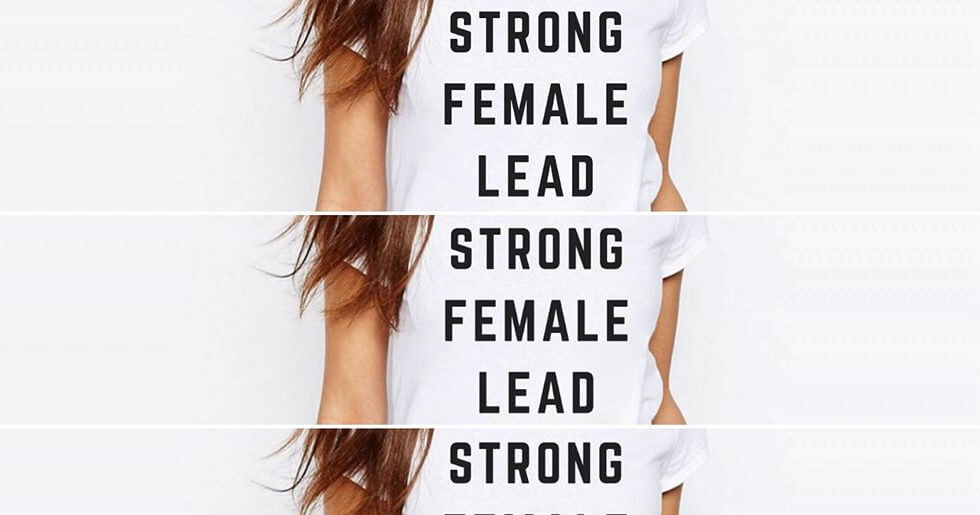
Are there any resources/ books you would like to recommend for the women who read your #AspiringWomen article?
I haven’t really used any books – I did sign up to 2 courses to help with my business. The first was a digital marketing for business class at Cardiff Uni and the second was ‘how to sell yourself to the press’ these have been so useful and helpful that I don’t think I would be at this point without them.
Click above image to learn more about this founder
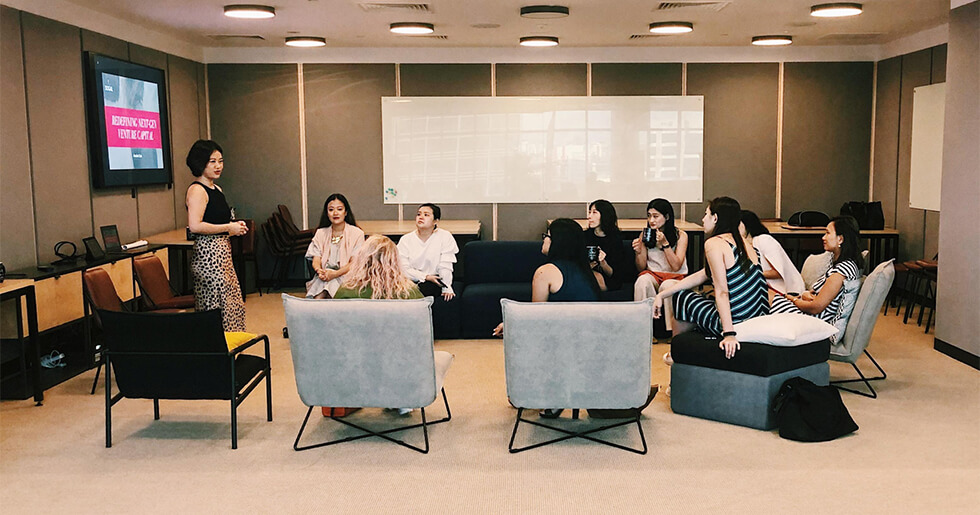
Are there any resources/ books you would like to recommend for the women who read your #AspiringWomen article?
I’ve recently been reading AI Superpowers by Kai Fu Lee. It’s not necessarily a book about women or female entrepreneurship – but it’s a stark reminder that 1) the world is changing and 2) there are different ways to do things than what has worked in the last few decades.
Click above image to learn more about this founder
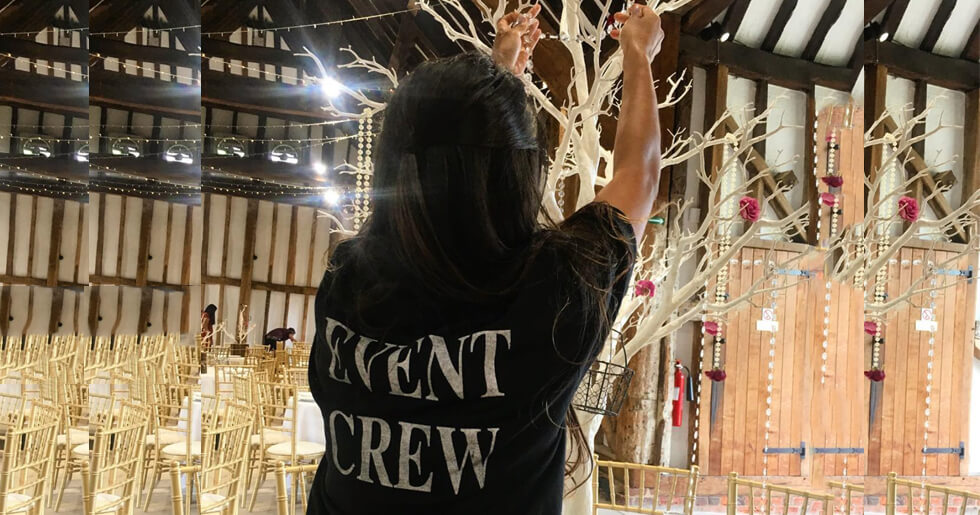
Are there any resources/ books you would like to recommend for the women who read your #AspiringWomen article?
I think if you are just starting out would recommend Make it Happen by Lara Casey, Sophia Amoruso – #GIRLBOSS would be a good starting point.
Click above image to learn more about this founder
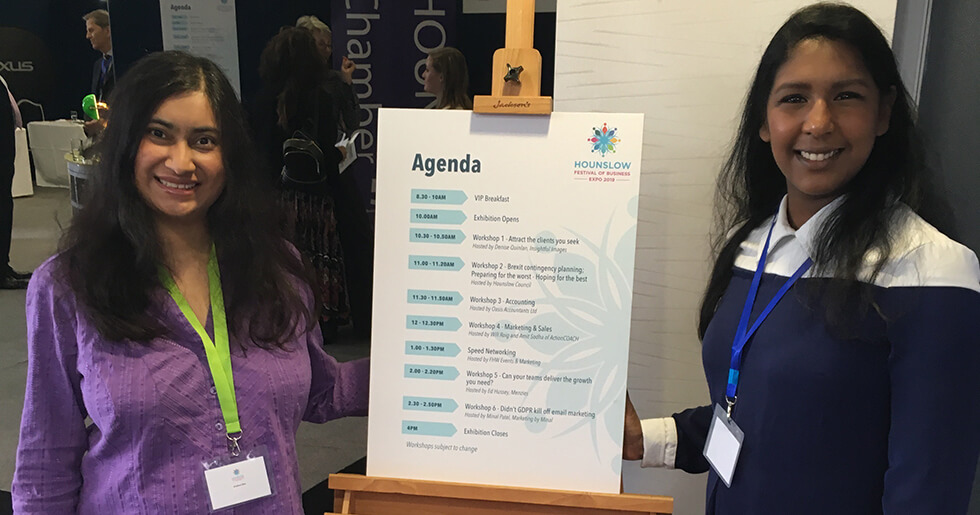
Are there any resources/ books you would like to recommend for the women who read your #AspiringWomen article?
A while ago I attended an Effective Altruism networking event, and the theme of the event was about personal development. More recently I attended a Simplify Your Life event. There were quite a lot of useful suggestions made, which I would recommend to the readers:
Reading 12 Rules for Life, An Antidote to Chaos by Jordan Peterson
Researching Tiny Habits method : www.tinyhabits.com
Utilising the Anki programme (or Evernote/Trello/Pocket apps) for organising and remembering things
Reading the book Getting to Yes – negotiation techniques
Using the Eisenhower technique – time and task management
Reading the 7 Habits of Highly Effective People
Using the pomodoro technique to make decisions
Reading Deep Work, Rules for Focused Success in a Distracted World by Cal Newport
Reading Eat that Frog by Brian Tracy
Click above image to learn more about this founder
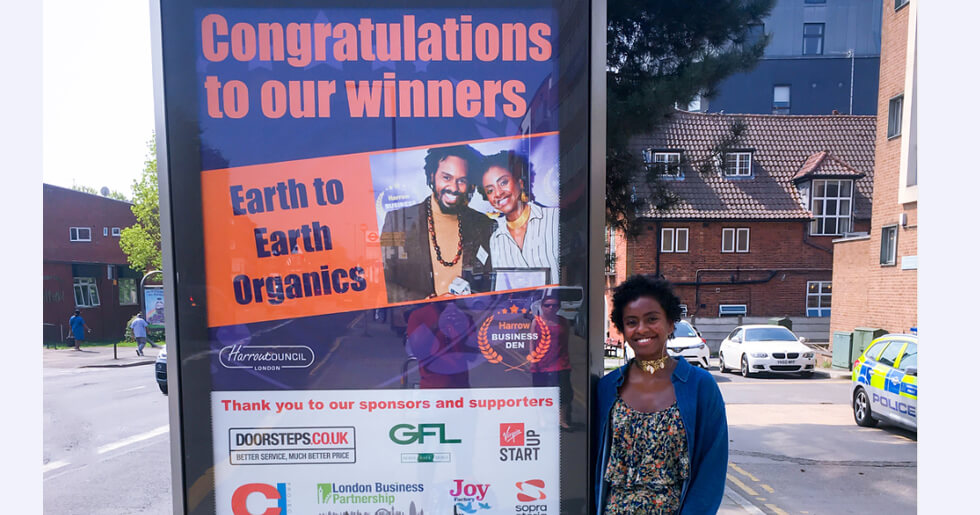
Are there any resources/ books you would like to recommend for the women who read your #AspiringWomen article?
Shonda Rhimes: Year of Yes How to dance it out, stand in the sun and be your own person.
Click above image to learn more about this founder
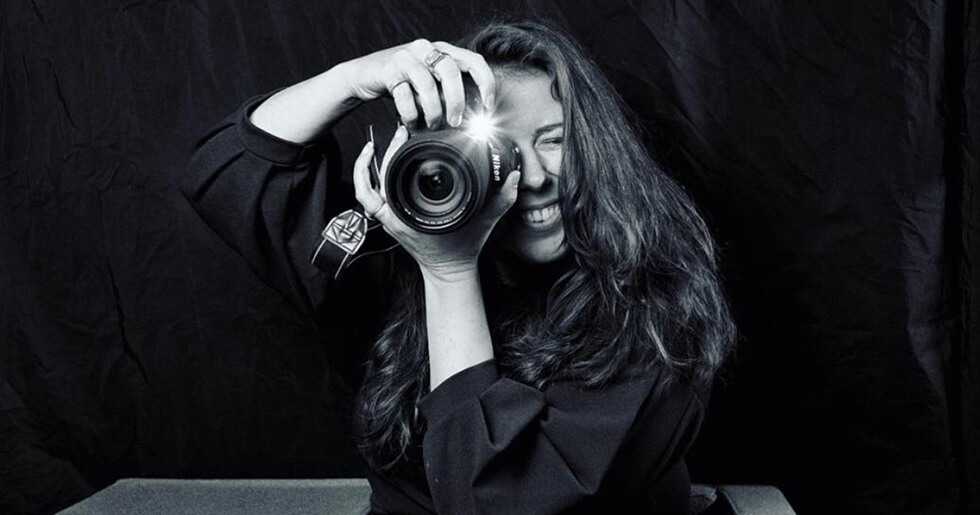
Are there any resources/ books you would like to recommend for the women who read your #AspiringWomen article?
Currently on my nightstand;
1. The scale up bible
2. Simon Sinek
3. Rutger Bergman - Utopia for realists
4. Conn Iggulden - Wolf of the Plains
Click above image to learn more about this founder
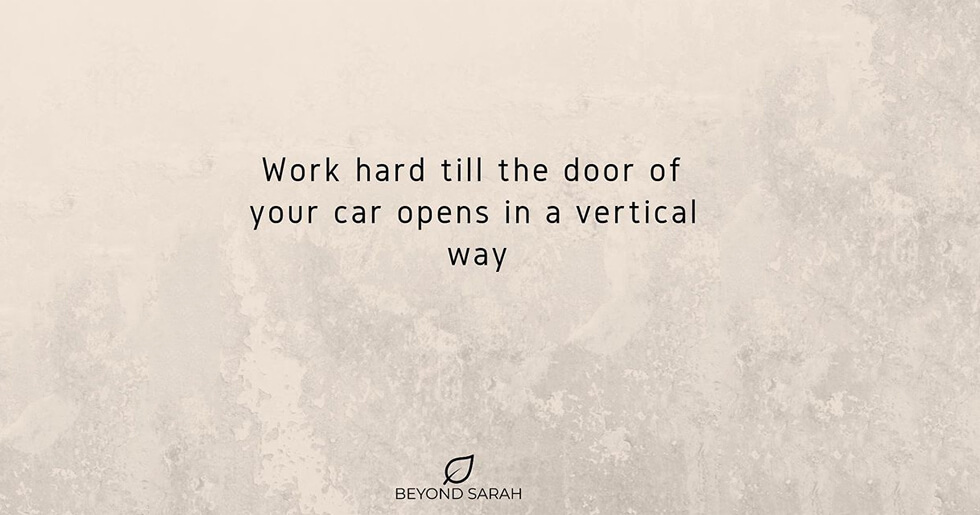
Are there any resources/ books you would like to recommend for the women who read your #AspiringWomen article?
I am a total geek and do love the Business Development for Dummies book ;)
Click above image to learn more about this founder

Are there any resources/ books you would like to recommend for the women who read your #AspiringWomen article?
There is a book called 'The One Thing' which is helpful to those, like me, who find themselves getting overwhelmed with all the tasks they have to do and not knowing where to start - this book helps you work out how to prioritise and focus on one thing at a time.
Click above image to learn more about this founder

Are there any resources/ books you would like to recommend for the women who read your #AspiringWomen article?
As a business woman I am being very honest there's no such book or any type of training that can make you as perfect as you can yourself
Click above image to learn more about this founder
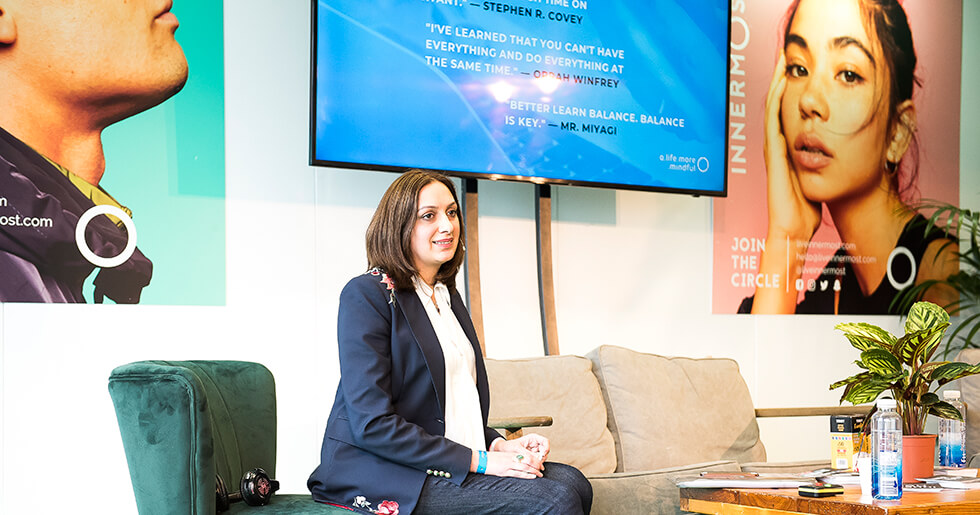
Are there any resources/ books you would like to recommend for the women who read your #AspiringWomen article?
Books - I loved the "4 Day Week" and "Think and Grow Rich" - its much more about self-belief and having a vision than money!
Resource wise I think joining a networking group or a members club where you can meet like minded people can help to feel less alone. There are some great online groups too and I have found a lot of support in the online community through instagram / linkedin.
Click above image to learn more about this founder

Are there any resources/ books you would like to recommend for the women who read your #AspiringWomen article?
I'd like to recommend "The Secret" by Rhonda Byrne.
I truly believe in law of attraction and this book is a great example of how we can improve our life by changing our attitude.
Click above image to learn more about this founder

Are there any resources/ books you would like to recommend for the women who read your #AspiringWomen article?
“Rich Dad Poor Dad” by Robert Kiyosaki; “The Compound Effect” by Darren Hardy; “Think and Grow Rich” by Ben Holden-Crowther and Napoleon Hill.
Click above image to learn more about this founder
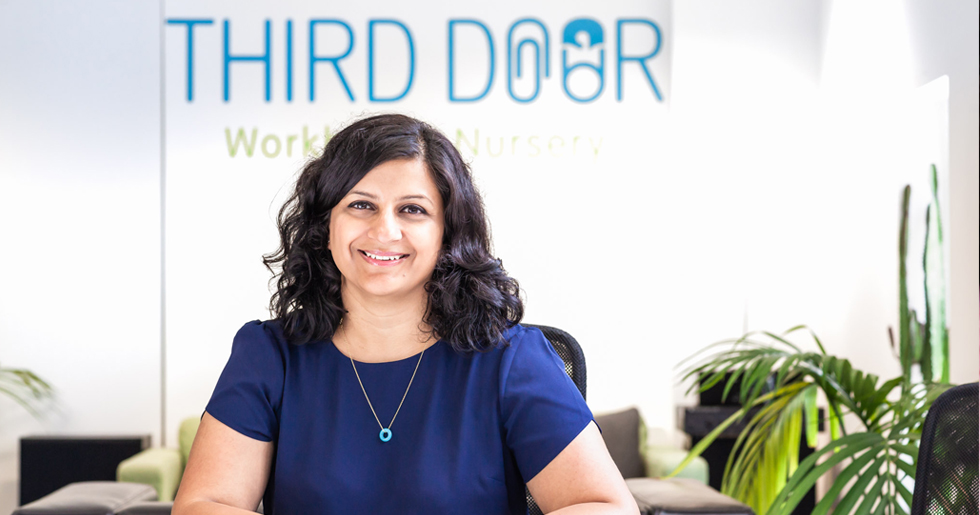
Are there any resources/ books you would like to recommend for the women who read your #AspiringWomen article?
Whenever I am asked for business advice, I always recommend reading ‘Emyth’ by Michael E. Gerber. The other book I do recommend to anyone starting a business is ‘Start with Why’ by Simon Sinek. ‘Emyth’ helps you understand what is entailed in running a business - if you have a passion you need to put in procedures to help you continue that passion without getting embroiled in the day to day firefighting. ‘Start with Why’ is a great book to help you discover your core beliefs and why you started your business in the first place.
Click above image to learn more about this founder

Are there any resources/ books you would like to recommend for the women who read your #AspiringWomen article?
My best friend recommended 'The Secret' by Rhonda Byrne, which I have religiously promoted to everyone who wants to believe in the power of positiveness and The Law of Attraction.
Click above image to learn more about this founder
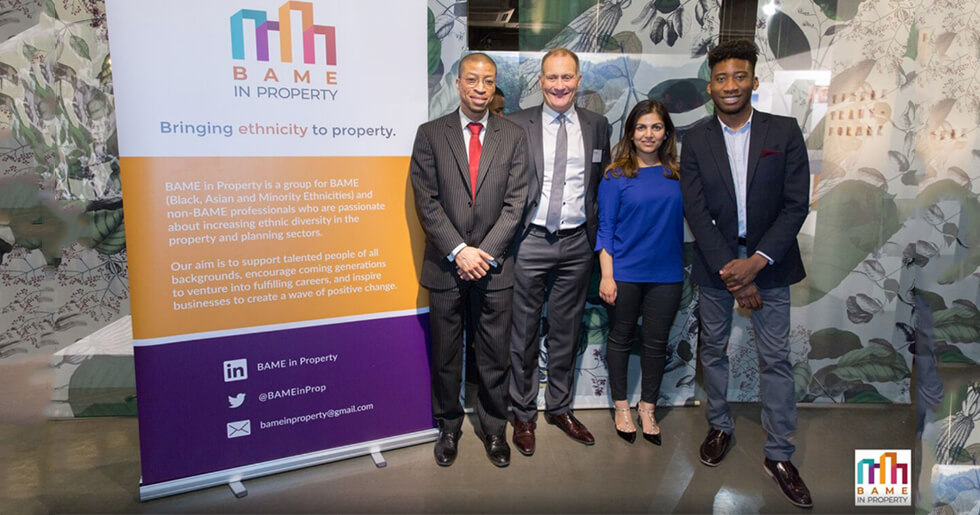
Is there anything else you would like to share with other women on their journey to success?
"The greatest investment you can make is in the continuous expansion of your knowledge." – never stop learning.
Click above image to learn more about this founder
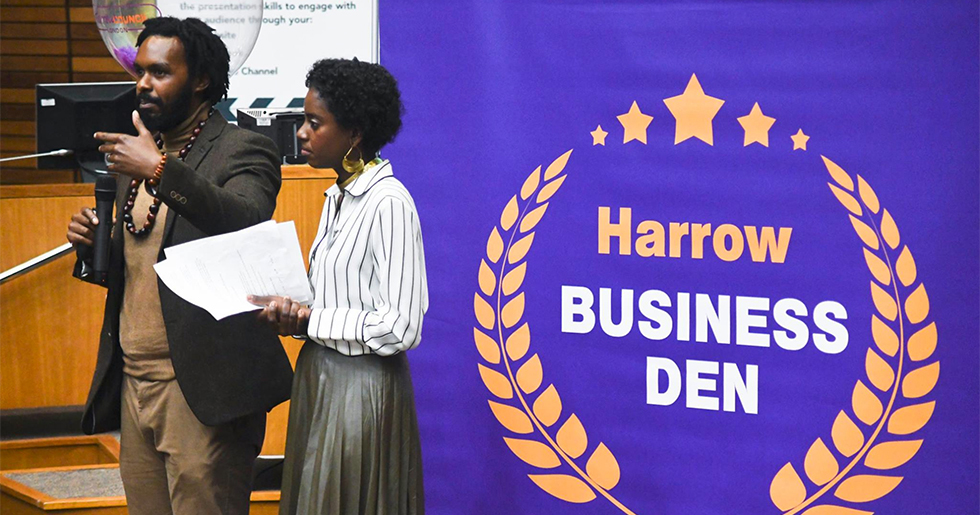
Is there anything else you would like to share with other women on their journey to success?
Be true to yourself, really think about your purpose and that of your business. I believe that we each have a gift to share with the world that’s unique and needed. You will make mistakes, you will be nervous and you may fail but please don’t give up.
Never let money be the main goal, with every successful person that I’ve met since starting our business they’ve emphasised on this. If happiness has any part in your journey to success don’t let money be your main objective.
Click above image to learn more about this founder

Is there anything else you would like to share with other women on their journey to success?
You are amazing! Go for it! Be the best you can be! Girls run the world<3
GIRLPOWER
Click above image to learn more about this founder
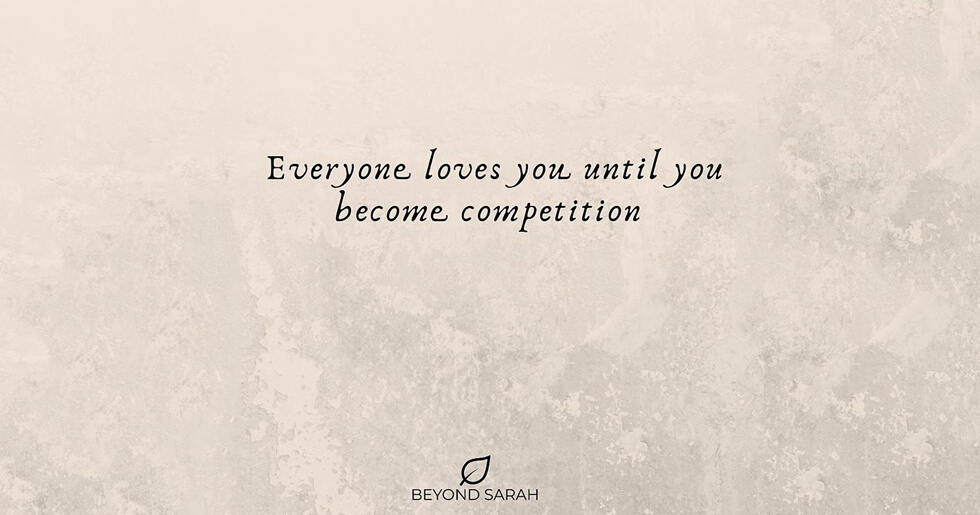
Is there anything else you would like to share with other women on their journey to success?
Always be surrounded by good people who believe in you and can mentor you.
Click above image to learn more about this founder
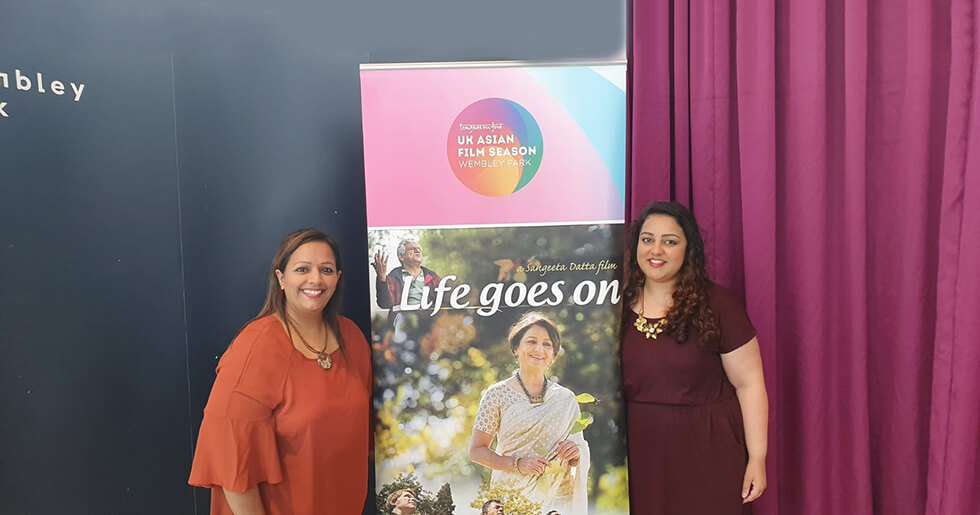
Is there anything else you would like to share with other women on their journey to success?
Whatever you start make sure its something that you have whole heatedly thought about for your own self growth and not to show or compete against anyone else
Click above image to learn more about this founder
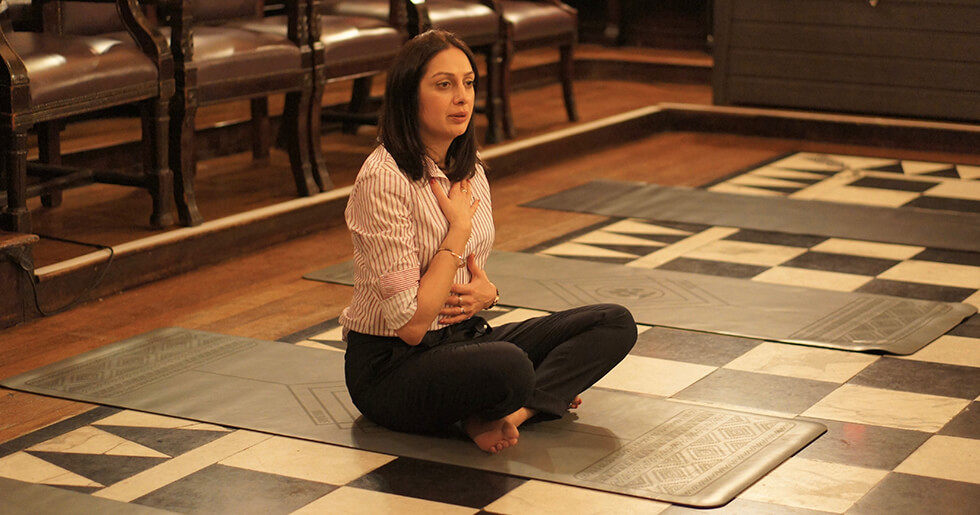
Is there anything else you would like to share with other women on their journey to success?
If you have an idea and you want to change your life, make a plan and take the steps and just do it. Life is too short not to and actually the fear of starting your own venture is far greater than the regret of not doing it.
I worked for an employer in a corporate environment for 20 years and was very risk averse (I liked having a regular salary, pension, money in the bank, security, colleagues, a routine...) and walking away from that was my choice but still very hard. And yet I couldn't be happier. I love the flexibility, the freedom to build my life as I choose and work with who I want. So dream big and go after it!
Click above image to learn more about this founder

Tell us about the venture/ business/ initiative you have started...
Carly struggled though her educational years with being dyslexic and dysbraxic but she has broken those barriers down to live out her dreams. Since receiving help from the Princes trust, Carly has become a business mentor and ambassador to give back and help other people who may have the same struggles and give them confidence to blossom. Carly has met Prince Charles and personally been invited to Buckingham Palace – Carly’s business Anaphase Store is Online and based in Cardiff. They stock their own designs and slogans printed onto Clothing ranging from newborn to 5XL, Homeware where they make their own candles and bath bombs, Footwear, Cosmetics, Accessories, Gymwear, Art Prints and Holiday items for the upcoming Seasons.

Tell us about the venture/ business/ initiative you have started...
It came at exactly the right time. Although, I had studied international business at university, I didn’t have any practical experience of running a business. Therefore, when this opportunity arose, I thought that it would be a great way to learn the practicalities, while at the same time get the support that is needed to run a successful business. There were 3 words that convinced me to join the opportunity Lord Sugar (who is 50% owner of the brand), vegan products, and life coach.
I’ve been vegan for nearly 22 years. Although, there are a lot of vegan skincare brands out there. None of them ticked all the boxes in the same way as this brand in terms of not only being vegan, but also natural, harsh chemical-free, eco-friendly, and cruelty-free.
As a result of running my business, I have had the opportunity to give talks about veganism, chemical-free living and entrepreneurship to a wide range of audiences, including university students.
3 years ago, I also took over running the London Vegan Business Network. We are a network of over 600 vegan business owners, self-employed traders, start-ups, vegan events organisers, and budding entrepreneurs. I organize regular networking meetings.
I’ve been vegan for nearly 22 years. Although, there are a lot of vegan skincare brands out there. None of them ticked all the boxes in the same way as this brand in terms of not only being vegan, but also natural, harsh chemical-free, eco-friendly, and cruelty-free.
As a result of running my business, I have had the opportunity to give talks about veganism, chemical-free living and entrepreneurship to a wide range of audiences, including university students.
3 years ago, I also took over running the London Vegan Business Network. We are a network of over 600 vegan business owners, self-employed traders, start-ups, vegan events organisers, and budding entrepreneurs. I organize regular networking meetings.

Tell us about the venture/ business/ initiative you have started...
After back-packing through China with my best friend, I returned to a well thought out career and life path. I found neither very appealing nor the thought of just going through the motions with a man that wasn't the love of my life, working a job I wasn't thrilled about, gave me a sinking feeling. But as these things go, an opportunity (disguised as a lot of hard work) presented itself; what if I could be part of something small with the potential to have a positive impact on the world?
It only took one summer evening talking to Jain van Nigtevegt to completely turn my life around. I quit my job, broke up my relationship and moved back in with my parents; I was now officially an entrepreneur.
Years of bread with peanut butter followed while we looked for our voice, it turned out it was simple; we teach people things through gaming, we change behaviour and make sure that the change lasts. If we use fancier words, we talk about societal impact, or gamification.
The essence is always the same; we use gamification and storytelling with our own design method to create heroes. Because heroes will make sure we change big problems.
It only took one summer evening talking to Jain van Nigtevegt to completely turn my life around. I quit my job, broke up my relationship and moved back in with my parents; I was now officially an entrepreneur.
Years of bread with peanut butter followed while we looked for our voice, it turned out it was simple; we teach people things through gaming, we change behaviour and make sure that the change lasts. If we use fancier words, we talk about societal impact, or gamification.
The essence is always the same; we use gamification and storytelling with our own design method to create heroes. Because heroes will make sure we change big problems.

Tell us about the venture/ business/ initiative you have started...
Beyond Sarah was born after realising that most concierge companies are male dominated and I wanted to offer a concierge service where women also feel comfortable booking personal things such as waxing, lingerie fittings, and fertility clinics.
Beyond Sarah taps into the most convenient method of communication, so you can reach me directly via WhatsApp, text, email, and even social media for a quick and effortless service that adapts to your lifestyle.
Whether you want to receive the latest trainers before they become available to the public, book a private villa in Bali, arrange a private chef experience to surprise a loved one, organise an exclusive party in a yacht in Cannes, or gain access to an exclusive red carpet event, I will make it happen.
I offer flexible membership options to suit your lifestyle.
Beyond Sarah taps into the most convenient method of communication, so you can reach me directly via WhatsApp, text, email, and even social media for a quick and effortless service that adapts to your lifestyle.
Whether you want to receive the latest trainers before they become available to the public, book a private villa in Bali, arrange a private chef experience to surprise a loved one, organise an exclusive party in a yacht in Cannes, or gain access to an exclusive red carpet event, I will make it happen.
I offer flexible membership options to suit your lifestyle.

Tell us about the venture/ business/ initiative you have started...
I support businesses to motivate & engage their people to create happy, mindful workforces and a healthy bottom line. I do this through delivering mindfulness, stress management and well-being programmes and working with businesses to improve their well-being initiatives.

Tell us about the venture/ business/ initiative you have started...
Schooling system has not changed even for a bit. But we have! Several professions and job roles such as those of doctors, lawyers, accountants are believed to become redundant over the coming years. But the Schools are still making us believe that it is important to study traditional books in order to become successful in life – become real doctors, accountants and lawyers. Will there be a gap in the learning process of our society? Most of us have smartphone and all forms of gadgets that answer our immediate questions in just a few seconds. Whereas our current education system believes in memorization of information.
Robotics, AI and digital technologies are fast changing our worlds every day. Does this mean alternate means of Education is becoming a necessity in our lives? I have read fascinating autobiographies of successful people like Bill Gates, Warren Buffet, Elon Musk, Steve Jobs, Jack Ma and various others which has changed my way of thinking in life. I have launched a YouTube Channel and have attended many seminars and various kinds of business events. I have also spoken in property investment seminars. I am currently learning a lot about asset, liability and things that define Debt, Inflation, difference between money and currency, etc. If somebody asks about anything related to property investment, I can jolly well answer that without a hassle. All thanks to my interest in alternate education. Reading books on entrepreneurship, self-development and motivation is defining my ideas and thoughts in a big manner. I read Rich dad poor dad by New York Times Best Selling Author, Robert Kiyosaki when I was 6.
Robotics, AI and digital technologies are fast changing our worlds every day. Does this mean alternate means of Education is becoming a necessity in our lives? I have read fascinating autobiographies of successful people like Bill Gates, Warren Buffet, Elon Musk, Steve Jobs, Jack Ma and various others which has changed my way of thinking in life. I have launched a YouTube Channel and have attended many seminars and various kinds of business events. I have also spoken in property investment seminars. I am currently learning a lot about asset, liability and things that define Debt, Inflation, difference between money and currency, etc. If somebody asks about anything related to property investment, I can jolly well answer that without a hassle. All thanks to my interest in alternate education. Reading books on entrepreneurship, self-development and motivation is defining my ideas and thoughts in a big manner. I read Rich dad poor dad by New York Times Best Selling Author, Robert Kiyosaki when I was 6.

Tell us about the venture/ business/ initiative you have started...
I’m the cofounder of Third Door, a family-friendly coworking space with an onsite flexible Ofsted registered Nursery in London. I have three children who are aged 11, 9 and 7.
Third Door is the UK’s first coworking and flexible nursery hybrid business, based in South-west London. I co-founded the business nine years ago with my husband. Back then and even more so today, Third Door has been about removing the parenthood penalty and creating a better work/ life balance for mums and dads. We have created a solution that allows parents to be able to work near their children, thus saving them time and money by cutting their commute time, as well as removing parent-guilt. Our nursery solution is super-flexible allowing parents to choose between fixed days and flexible packages, upgrade and downgrade their childcare package depending on their needs. With the flexibility we offer, we have helped countless families, especially mothers, who may not otherwise have been able to return to work and continue their careers on a full-time or flexible basis. We also have many members who are freelancers or run their own business and they say they couldn’t have done this without the services we offer. We always designed our services and amenities to be inclusive of fathers, and as a result, are delighted with all our dad members who also regularly use the Workhub.
Third Door is the UK’s first coworking and flexible nursery hybrid business, based in South-west London. I co-founded the business nine years ago with my husband. Back then and even more so today, Third Door has been about removing the parenthood penalty and creating a better work/ life balance for mums and dads. We have created a solution that allows parents to be able to work near their children, thus saving them time and money by cutting their commute time, as well as removing parent-guilt. Our nursery solution is super-flexible allowing parents to choose between fixed days and flexible packages, upgrade and downgrade their childcare package depending on their needs. With the flexibility we offer, we have helped countless families, especially mothers, who may not otherwise have been able to return to work and continue their careers on a full-time or flexible basis. We also have many members who are freelancers or run their own business and they say they couldn’t have done this without the services we offer. We always designed our services and amenities to be inclusive of fathers, and as a result, are delighted with all our dad members who also regularly use the Workhub.

Tell us about the venture/ business/ initiative you have started...
In all honesty, the company started with a feeling. A feeling which I knew needed to be fulfilled. Going back to basics, a sari blouse can cost anywhere between £30-£70 depending on where you are getting it designed. Typically, your blouse will be tailored from the end part of your sari, making it very bespoke and precise to that specific sari and to your body shape. With an Indian heritage, I created The Naked Laundry to promote versatility between various cultures and various occasions. The term ‘Naked’ for us represents pure, contemporary and minimalist which allows drawing both Western and Indian fashion styles together. The blouses are designed in UK sizes and aimed worn with saris, pleated skirts and even a high waisted pair of tailored trousers. The purpose is to minimise your wardrobe and still make you look and feel stylish in a premium way.

What is your definition of success? What advice would you give to your younger self about "success"?
Success is ‘giving back’. Let me share a story…
I remember at school my economics teacher said to my class move to excellence like a pine tree and enrich the world through your giving like a mango tree. When I was travelling through South Africa, the Deputy Principle of a primary school in Shallcross Township, Kwa-Zulu Natal invited me to their awards ceremony to give a speech about the importance of education and the huge role my parents played in this, I was delighted and humbled to accept.
Little did they know that it was a great honour for me to be talking about a topic that was so important to me. They felt empowered by my words but I felt so inspired to be in the company of such enthusiastic children, hungry to learn. I will always remember this day, the kindness of the staff and the excitement of the children – beautiful memories created in the most humble of places.
When I was younger I always thought success was being promoted to higher positions as quickly as possible, but actually everyone grows and develops at their own pace. Your career is a journey, not a race, and reminding myself to stop competing and start enjoying has been an important learning curve.
I remember at school my economics teacher said to my class move to excellence like a pine tree and enrich the world through your giving like a mango tree. When I was travelling through South Africa, the Deputy Principle of a primary school in Shallcross Township, Kwa-Zulu Natal invited me to their awards ceremony to give a speech about the importance of education and the huge role my parents played in this, I was delighted and humbled to accept.
Little did they know that it was a great honour for me to be talking about a topic that was so important to me. They felt empowered by my words but I felt so inspired to be in the company of such enthusiastic children, hungry to learn. I will always remember this day, the kindness of the staff and the excitement of the children – beautiful memories created in the most humble of places.
When I was younger I always thought success was being promoted to higher positions as quickly as possible, but actually everyone grows and develops at their own pace. Your career is a journey, not a race, and reminding myself to stop competing and start enjoying has been an important learning curve.

What is your definition of success? What advice would you give to your younger self about "success"?
I think success is defined in different ways by different people at when I was younger, I thought success was having a drivers license or my own house for example but things change as you do. I have always wanted to have my own business, I used to create my own designs and have piles and piles of art books but didn’t know the next step – I wouldn’t change anything about my journey as it makes me who I am today and maybe I wouldn’t have had the same life experiences that I use as knowledge now.

What is your definition of success? What advice would you give to your younger self about "success"?
They say ‘the more you know, the more you don’t know’ and I feel this way about success. My younger self thought success was about about doing well within boundaries of what I knew – doing well in school, ticking all the boxes, applying for good programs. It took me a long time to figure out that there isn’t actually a rule book for jobs and the best ones out there were usually creative expressions of people who wanted to push themselves.

What is your definition of success? What advice would you give to your younger self about "success"?
For some businesses the meaning of success would be either monetary or making an impact. It is important, however as an event designer my definition of success is somewhat different, its not motivated by money but creativity. Being in the creative industry I believe success is executing and getting the opportunity where you can be the most creative and execute out of the box events! Success can also be measured by the emotions, the client feedback I get after having organised my clients happiest day. Advice I would give to my younger self would be that success is something you should always be striving towards, it has to be goal oriented and should not be compared to anyone else’s success as each business has its own journey.

What is your definition of success? What advice would you give to your younger self about "success"?
My definition of success is reaching a goal or achieving something that you have had to work hard to achieve.
When I was very young, I wanted to become an actress, model and even work for NASA. I never pursued any of those things. The advice I would give to my younger self is don’t let yourself get distracted, focus on one thing at a time, and just go for it. Even if you don’t succeed, at least you won’t regret not trying. It’s the things that we don’t do or don’t try that we end up regretting the most.
When I was very young, I wanted to become an actress, model and even work for NASA. I never pursued any of those things. The advice I would give to my younger self is don’t let yourself get distracted, focus on one thing at a time, and just go for it. Even if you don’t succeed, at least you won’t regret not trying. It’s the things that we don’t do or don’t try that we end up regretting the most.

What is your definition of success? What advice would you give to your younger self about "success"?
Being happy and able to contribute to the world in a positive way.
I’d say to make sure that you’re happy, material things lose value, your purpose is to give back and make a differences.
I’d say to make sure that you’re happy, material things lose value, your purpose is to give back and make a differences.

What is your definition of success? What advice would you give to your younger self about "success"?
Success is the freedom to change your path, and when you make it to the top, you reach behind you to give a hand to the ones following you up the mountain.

What is your definition of success? What advice would you give to your younger self about "success"?
Success is reaching your goals whilst helping and inspiring other people. The advice I would give to myself is to always believe in your dreams and make it happen.

What is your definition of success? What advice would you give to your younger self about "success"?
I try not to measure success by how much money I'm making or how many products I'm selling, but instead by how much progress I'm making and how much passion I have for what I'm doing.
I would advise my younger self that if you want to be successful, keep the passion for your project alive, and always look for ways to keep improving - don't get complacent.
I would advise my younger self that if you want to be successful, keep the passion for your project alive, and always look for ways to keep improving - don't get complacent.

What is your definition of success? What advice would you give to your younger self about "success"?
Today's world has changed, it is not just about a celebration for the change but it's just a reminder that there are still many changes to be made and more causes to fight for, trust your instinct and follow your heart.

What is your definition of success? What advice would you give to your younger self about "success"?
To me, Success is knowing what makes you happy and what motivates you and going after it. I think it's easy to fall into the mould of doing a certain degree or job and I am pleased I followed my heart and learnt French, lived in Paris and worked in event management as it informed my career and life choices and was definitely more 'me' that a city job!

What is your definition of success? What advice would you give to your younger self about "success"?
Success is a tricky word. It's hard to grasp. It can cause joy or anxiety in equal measure. What we often end up doing is connecting it to goals and material things. We believe that we'll be successful when we get a promotion in our job, or buy our first house, or start a new business, or maybe even sell an existing business.
The problem with that thinking is that we'll never be satisfied. Our goals keep shifting and growing, so we end up chasing our own shadow.
What I've learned in the last few years is that SUCCESS is an ATTITUDE. It's expressing gratitude for what we have and being open for more. It's giving back - either by creating products and businesses that help people and bring them joy, or by contributing to our environment or society. It's being in love with what you do.
The problem with that thinking is that we'll never be satisfied. Our goals keep shifting and growing, so we end up chasing our own shadow.
What I've learned in the last few years is that SUCCESS is an ATTITUDE. It's expressing gratitude for what we have and being open for more. It's giving back - either by creating products and businesses that help people and bring them joy, or by contributing to our environment or society. It's being in love with what you do.

What is your definition of success? What advice would you give to your younger self about "success"?
Success, according to me, is learning new things. I learn about success by reading autobiographies of successful people like Warren Buffet and Steve Jobs. I also feel enriched by watching videos of motivational speakers like Gaur Gopal Das and Jay Shetty.

What is your definition of success? What advice would you give to your younger self about "success"?
Success is all relative. When I was younger, my definition of success was very different and more about working hard and getting up the career ladder to earn enough to buy that huge house of my dreams! My definition of success has definitely changed now though. Today it’s more in tune with impact and building a life that I am proud of; where I can spend time with people I love and respect and where I can be involved with work where I can make a difference.
I also think success is built up on a succession of small failures to be honest! That’s the great thing about running your own business, you can tweak your business as you go along learning from any mistakes alongside feedback from customers or your team. I guess what I would therefore say to my younger self is “don’t be afraid to try new things, mistakes are ok, and you can learn from them.”
I also think success is built up on a succession of small failures to be honest! That’s the great thing about running your own business, you can tweak your business as you go along learning from any mistakes alongside feedback from customers or your team. I guess what I would therefore say to my younger self is “don’t be afraid to try new things, mistakes are ok, and you can learn from them.”

What is your definition of success? What advice would you give to your younger self about "success"?
Just to simply be obsessed with what you do. Graduating with a Business and Economics degree, I was ready to enter the corporate world straight after university. My gut feeling has never let me down, and knowing I needed to enter the world of fashion and beauty was something I knew had to happen. This doesn’t mean I don’t appreciate my degree; I have used this as a foundation in all the branches I am trying to reach. It means something which might feel right now, can even feel better by taking that huge risk. Be scared, be vulnerable but also be brave.

What challenges have you encountered on your journey and how have you overcome them? Is this a common challenge in your industry? How can we tackle it?
Starting a social enterprise/forum can be difficult in the beginning as you’re relying on sponsorship and funding for something people haven’t yet seen. Your passion and drive is what you are relying on to secure that sponsorship and admittedly this was tough – companies were not always prepared to get involved. After a few events, the sponsorship has been coming a lot easier because the industry has seen what can be achieved and diversity and inclusion are coming to the forefront of the agenda.
With the actual purpose of the forum, I think in the beginning there was some naivety to the extent of how uniform the industry is and many companies are still questioning the value of diversity. It’s not necessarily a challenge to overcome but it’s important for companies and individuals to come on this journey with us and be open to asking questions and understanding the benefits of a more diverse workforce.
With the actual purpose of the forum, I think in the beginning there was some naivety to the extent of how uniform the industry is and many companies are still questioning the value of diversity. It’s not necessarily a challenge to overcome but it’s important for companies and individuals to come on this journey with us and be open to asking questions and understanding the benefits of a more diverse workforce.

What challenges have you encountered on your journey and how have you overcome them? Is this a common challenge in your industry? How can we tackle it?
I left school at 15 with some GCSE’s but being dyslexic I was told I probably wouldn’t mount too much anyway so why bother. I got a job and I started at College for 3 years, which I did both full-time. I did hair and beauty for the first year and art and design for the last two. I wanted to become a fashion designer that was my calling in life, my room was always piled high with art books and designs, I was always making things and I just never knew what to do with them. I did all this while I became a manager at my job.
I continued working for a total of 6 years but I started to lose interest; so left to change my career. From that moment on I never really stuck to a job, I bounced around every 6 months to a new job.
I eventually became a mobile carer for the elderly, which I did kind of enjoy because I was always on the move and not stuck in the same place. I then lost my grandad and felt I needed to live my life, so I quit my job, packed my things and I moved up here to Cardiff in 2013.
I met one of my friends soon after moving here and we did talk about my business ideas but I didn’t know where or how to go about it, we had completely different businesses so he could only help me so far. So I carried on with my day job, until one day I woke up and really wanted to pursue my dream. I bit the bullet and quit my job, I thought if I wont do it now I wont ever do it, so googled how to start a business, and one of the first results that popped up was The Princes Trust, so I called in and explained I wanted to start a business and asked if they could help me.
They explained they had a course called the Enterprise programme that I could go on and that’ll get me started. So I accepted, what did I have to lose?
I wasn’t expecting much from the course, but was pleasantly taken a back and surprised at how much information I didn’t know I needed to know to run a business; and the depth of the course was amazing. I came out with a new lease of life and excitement for my new journey. I worked with Gemma to do my business plan and had weekly meet ups to go through all my information to make sure I had everything I needed before I went to launch group – I passed which is like dragons den and so scary. My adventure began and Anaphase Clothing was born.
I was given a mentor for 2 years to help me all the way with any problems and advice and I have networked a lot doing their courses. For the few years, The Princes Trust Cymru have held a pop up shop in St David’s 2 on Mothers Day weekend, which I have attended for 3 years and speaking to people that have been through the same journey really helped me.
My business was slow to start off with which did dishearten me a little, especially as I thought I’d be a millionaire by the first month. But I wasn’t ready to give up so I got a full time job to help with the costs and kept my business going on the side; it has picked up a lot and has been a bumpy ride but I still see potential in myself.
The trust were always there for me for what ever I needed willing to put me in contact with other mentors who would help me if mine couldn’t.
Last year I changed the business name to Anaphase Store as I wasn’t just selling clothing now so it made sense to have store to cover the ranges I have. I have developed an online following on my social media accounts, I have my website that gets a lot of attention, I am verified on Facebook, The Tomorrow store that is run by The Prince’s Trust also stocks my items on their online platform.
I have also collaborated with 4 other businesses that went through the enterprise programme and currently have a fully funded office in Caerphilly thanks to the welsh government. I have been growing my brand to attract all different types of customers so I can create a bigger collection.
I was a young ambassador for The Princes Trust, so I would attend events and do speeches on how the trust has helped me; I am now a volunteer and business mentor.
Along the way I have met Paul Mercer, he used to play for Portsmouth Football team, which my dad is a huge fan of, I asked him for an autograph which he was okay about until the whole room saw, rushed over and formed a line. He was stuck there for about 30 minutes, not sure if I left as his friend, also Dan Bigger and Kelly Hoppen. Kelly loved my ˜Don’t touch my hair sweatshirts and posted it on her Instagram along with Giovanna Fletcher who posted one of my candles on her Instagram story, which in turn sent a lot of people my way.
I have done an interview on BBC radio wales along with Radio Cardiff, Heat, Kiss, Kerrang, Planet Rock and Magic. I met prince Charles who laughed at my don’t touch my hair jumper and told me he loves eBay, at the same event I met Luke Evans, who was really nice and was tweeting about some ambassadors during the morning. My business has also been shortlisted for 5 different business awards, we’ve won 3 of them in one day and one of the awards being the enterprise award with the Princes trust awards, we became a multi award winning business all in one day. I was also invited by Buckingham Palace to attend Prince Charles 70th Birthday Celebrations, I was listed as one of the 35 under 35 top business woman in wales 2018, I have been mentioned in 63 new papers and magazines articles through my journey and its lovely to hear that people still find me just as inspiring, I now also have 2 paid staff members, 3 interns and 8 reps around the country working for Anaphase Store – I feel extremely lucky to have achieved what I have in such a small time.
I continued working for a total of 6 years but I started to lose interest; so left to change my career. From that moment on I never really stuck to a job, I bounced around every 6 months to a new job.
I eventually became a mobile carer for the elderly, which I did kind of enjoy because I was always on the move and not stuck in the same place. I then lost my grandad and felt I needed to live my life, so I quit my job, packed my things and I moved up here to Cardiff in 2013.
I met one of my friends soon after moving here and we did talk about my business ideas but I didn’t know where or how to go about it, we had completely different businesses so he could only help me so far. So I carried on with my day job, until one day I woke up and really wanted to pursue my dream. I bit the bullet and quit my job, I thought if I wont do it now I wont ever do it, so googled how to start a business, and one of the first results that popped up was The Princes Trust, so I called in and explained I wanted to start a business and asked if they could help me.
They explained they had a course called the Enterprise programme that I could go on and that’ll get me started. So I accepted, what did I have to lose?
I wasn’t expecting much from the course, but was pleasantly taken a back and surprised at how much information I didn’t know I needed to know to run a business; and the depth of the course was amazing. I came out with a new lease of life and excitement for my new journey. I worked with Gemma to do my business plan and had weekly meet ups to go through all my information to make sure I had everything I needed before I went to launch group – I passed which is like dragons den and so scary. My adventure began and Anaphase Clothing was born.
I was given a mentor for 2 years to help me all the way with any problems and advice and I have networked a lot doing their courses. For the few years, The Princes Trust Cymru have held a pop up shop in St David’s 2 on Mothers Day weekend, which I have attended for 3 years and speaking to people that have been through the same journey really helped me.
My business was slow to start off with which did dishearten me a little, especially as I thought I’d be a millionaire by the first month. But I wasn’t ready to give up so I got a full time job to help with the costs and kept my business going on the side; it has picked up a lot and has been a bumpy ride but I still see potential in myself.
The trust were always there for me for what ever I needed willing to put me in contact with other mentors who would help me if mine couldn’t.
Last year I changed the business name to Anaphase Store as I wasn’t just selling clothing now so it made sense to have store to cover the ranges I have. I have developed an online following on my social media accounts, I have my website that gets a lot of attention, I am verified on Facebook, The Tomorrow store that is run by The Prince’s Trust also stocks my items on their online platform.
I have also collaborated with 4 other businesses that went through the enterprise programme and currently have a fully funded office in Caerphilly thanks to the welsh government. I have been growing my brand to attract all different types of customers so I can create a bigger collection.
I was a young ambassador for The Princes Trust, so I would attend events and do speeches on how the trust has helped me; I am now a volunteer and business mentor.
Along the way I have met Paul Mercer, he used to play for Portsmouth Football team, which my dad is a huge fan of, I asked him for an autograph which he was okay about until the whole room saw, rushed over and formed a line. He was stuck there for about 30 minutes, not sure if I left as his friend, also Dan Bigger and Kelly Hoppen. Kelly loved my ˜Don’t touch my hair sweatshirts and posted it on her Instagram along with Giovanna Fletcher who posted one of my candles on her Instagram story, which in turn sent a lot of people my way.
I have done an interview on BBC radio wales along with Radio Cardiff, Heat, Kiss, Kerrang, Planet Rock and Magic. I met prince Charles who laughed at my don’t touch my hair jumper and told me he loves eBay, at the same event I met Luke Evans, who was really nice and was tweeting about some ambassadors during the morning. My business has also been shortlisted for 5 different business awards, we’ve won 3 of them in one day and one of the awards being the enterprise award with the Princes trust awards, we became a multi award winning business all in one day. I was also invited by Buckingham Palace to attend Prince Charles 70th Birthday Celebrations, I was listed as one of the 35 under 35 top business woman in wales 2018, I have been mentioned in 63 new papers and magazines articles through my journey and its lovely to hear that people still find me just as inspiring, I now also have 2 paid staff members, 3 interns and 8 reps around the country working for Anaphase Store – I feel extremely lucky to have achieved what I have in such a small time.

What challenges have you encountered on your journey and how have you overcome them? Is this a common challenge in your industry? How can we tackle it?
It hasn’t been a smooth ride at all. A lot of the challenges in running your own business are not taught at university. One of the biggest challenges has been people not valuing what I am offering, or not thinking that I have overheads just like any other business, and asking for discounts and freebies. I try to tackle this by having a no discount policy sign when I am doing events.
There is also the challenge of juggling all the different tasks that need to be done; finding, booking and preparing for events; social media content; marketing, promoting and selling; admin and accounts; recruiting, supporting and mentoring team members. One thing I haven’t tried yet, which should make things easier, is email marketing and sending out regular newsletters.
In regard to doing events, initially the challenge was getting people to try the products, as it was an unknown brand. However, now that the brand is bigger, the challenge is for people to buy from me and not from another distributor or from Head Office.
Since I started the business, a lot of people thought that it’s a pyramid scheme, and it’s been a challenge to convince them to try the products because of that reason. It is a common challenge in the industry. However, most companies are pyramid shaped in that there is a CEO at the top, then a few directors underneath, then a number of managers under them, and lastly mostly employees on the first rung of the ladder. The way that it can be tackled in the industry I am in is to have a fairer system, where it’s not just the executives that get given leads by Head Office. It would also be better if rewards were given in terms of longevity and other achievements, not just on sales and recruitment.
There is also the challenge of juggling all the different tasks that need to be done; finding, booking and preparing for events; social media content; marketing, promoting and selling; admin and accounts; recruiting, supporting and mentoring team members. One thing I haven’t tried yet, which should make things easier, is email marketing and sending out regular newsletters.
In regard to doing events, initially the challenge was getting people to try the products, as it was an unknown brand. However, now that the brand is bigger, the challenge is for people to buy from me and not from another distributor or from Head Office.
Since I started the business, a lot of people thought that it’s a pyramid scheme, and it’s been a challenge to convince them to try the products because of that reason. It is a common challenge in the industry. However, most companies are pyramid shaped in that there is a CEO at the top, then a few directors underneath, then a number of managers under them, and lastly mostly employees on the first rung of the ladder. The way that it can be tackled in the industry I am in is to have a fairer system, where it’s not just the executives that get given leads by Head Office. It would also be better if rewards were given in terms of longevity and other achievements, not just on sales and recruitment.

What challenges have you encountered on your journey and how have you overcome them? Is this a common challenge in your industry? How can we tackle it?
A journey to success is never a straight line, it has its ups and downs and along the way we lost some of our companions, some to stress, lack of faith in what we were trying to accomplish and some even to the call of dollars elsewhere.
I found that the people that are still here truly believe in the positive impact, (the children that can navigate the internet more safely because of something we have taught them, for example.)
The biggest challenge for me has been to find the motivation to get up every day, be with people and head a company on its travel while never seeing myself represented. Not in boardrooms, not in IT, not in trying to find capital and not in the Games industry. No young women in positions of power, no women of colour, no young mothers, no women at all.
Over the last decade, I've seen small changes, especially in-house. I see more diversity, more inclusiveness, more representation. But when I venture out into the real world, the change comes too slow.
I found that the people that are still here truly believe in the positive impact, (the children that can navigate the internet more safely because of something we have taught them, for example.)
The biggest challenge for me has been to find the motivation to get up every day, be with people and head a company on its travel while never seeing myself represented. Not in boardrooms, not in IT, not in trying to find capital and not in the Games industry. No young women in positions of power, no women of colour, no young mothers, no women at all.
Over the last decade, I've seen small changes, especially in-house. I see more diversity, more inclusiveness, more representation. But when I venture out into the real world, the change comes too slow.

What challenges have you encountered on your journey and how have you overcome them? Is this a common challenge in your industry? How can we tackle it?
The challenges I have encountered is mainly to believe in myself. There were times when I have doubted myself and as a woman and a perfectionist, I am sometimes overly critical with myself. I have overcome them by being surrounded by friends who believe in you.

What challenges have you encountered on your journey and how have you overcome them? Is this a common challenge in your industry? How can we tackle it?
The main challenge I have faced with Letterbox Brownies has been perfecting the packaging - it is still a work in progress! It's come a long way from the first prototype, but for me there are still some points that could be better that I am working on.
Product packaging is a key area for the gift industry, and it's important to find your USP and make sure your packaging stands out from the crowd.
Product packaging is a key area for the gift industry, and it's important to find your USP and make sure your packaging stands out from the crowd.

What challenges have you encountered on your journey and how have you overcome them? Is this a common challenge in your industry? How can we tackle it?
I have faced racism bullying, criticism that women should be In the kitchen and not on a stage. I overcame them by self assessing my own strengths and weaknesses, then made a lot of changes within.As an asian entrepreneur it can be very intimidating amongst successful men.To tackle these situations you just have to believe in yourself if you do not then how will the world

What challenges have you encountered on your journey and how have you overcome them? Is this a common challenge in your industry? How can we tackle it?
In event management I encountered the challenge of being taken seriously in a mainly male environment where event logistics is seen as an admin role. It's the heart of an event and it took me 15+ years to establish a serious career and reputation as an operational expert.
Now working in well-being my biggest challenge is helping companies to see that if they don't look after their people, their business will directly suffer. As it's not an easily measurable ROI, well-being is not well understood or misunderstood and seen as fluffy.
The more people who talk about their well-being challenges and the more employees who demand better well-being cultural practices from their employers, the more we will see a change from within.
Now working in well-being my biggest challenge is helping companies to see that if they don't look after their people, their business will directly suffer. As it's not an easily measurable ROI, well-being is not well understood or misunderstood and seen as fluffy.
The more people who talk about their well-being challenges and the more employees who demand better well-being cultural practices from their employers, the more we will see a change from within.

What challenges have you encountered on your journey and how have you overcome them? Is this a common challenge in your industry? How can we tackle it?
My most recent challenge is probably similar to people who, like me, have worked too long as a "lone-wolf" freelancer. I'm so used to doing everything by myself, that when I started working on teapro with my partner Tom (who has worked in a corporate world his whole life), we were not on the same page at all. I was annoyed at him that he wasn't being proactive and he was annoyed at me that I wasn't communicating or working as a team.
One day we decided that this issue could no longer be ignored. We sat down and decided to incorporate AGILE methodology in our weekly workflow. We set up a Trello board (highly recommend it!) with the weekly tasks and goals and gave ourselves roles. I became the product owner (the person who decides on tasks and priorities) and Tom the scrum master (the person who organises the team). We would distribute the tasks amongst ourselves and have daily stand-ups in order to keep up with each other's progress.
I learned this process from Tom and it helped me and our business tremendously. If you're setting up a business and have a small team, I highly recommend you look into Agile methodology!
One day we decided that this issue could no longer be ignored. We sat down and decided to incorporate AGILE methodology in our weekly workflow. We set up a Trello board (highly recommend it!) with the weekly tasks and goals and gave ourselves roles. I became the product owner (the person who decides on tasks and priorities) and Tom the scrum master (the person who organises the team). We would distribute the tasks amongst ourselves and have daily stand-ups in order to keep up with each other's progress.
I learned this process from Tom and it helped me and our business tremendously. If you're setting up a business and have a small team, I highly recommend you look into Agile methodology!

Have you ever experienced imposter syndrome? If so, are there any examples you can give and tips you can share with other women on how to overcome it?
I’ve sometimes attended networking events where I have so much to say but always feel embarrassed to ask a question. Ironic because now I have my own networking forum and I’m leading the conversation most of the time! When people doubt themselves, it’s usually because others have planted that idea in themselves or other people make you feel intimidated. But I’ve found that being surrounded by people who support your growth and development is key – they encourage you to believe in yourself and are your greatest champions. They really help you raise your voice.

Have you ever experienced imposter syndrome? If so, are there any examples you can give and tips you can share with other women on how to overcome it?
Every so often I do get imposter syndrome – but it took me a while to even find out it was a real thing. it wasn’t until I was brave enough to speak to someone that I found out it was completely normal – I don’t get it very often but when I do, I just look back at everything I’ve achieved and it seems to do the trick.

Have you ever experienced imposter syndrome? If so, are there any examples you can give and tips you can share with other women on how to overcome it?
Timely question :) See above. But yes – constantly. Like many other industries, I am building a company in industries traditionally built by men, and usually much older men in more established markets – education and technology. It’s easy to feel like you don’t have a place in the room – especially when you are starting out and don’t have much to back you yet. But it’s important to stick to your strengths, carve out a niche and focus on your unique insight. I may not have had the 30 years in education, nor the Silicon Valley experience behind me, but I do know what people my age in this part of the world are looking for, and I started from there.

Have you ever experienced imposter syndrome? If so, are there any examples you can give and tips you can share with other women on how to overcome it?
Almost everyday! It is something I am trying to work on everyday. It is impossible to not have experienced imposter syndrome when you are an entrepreneur as the journey itself can inflict lack of confidence and doubts in your ability. There are days before a big event and I cannot sleep the night before just worrying about how it will go!
There are a few ways to overcome imposter syndrome, firstly get yourself some entrepreneur buddies and a mentor/coach. I have both and it is so helpful as your friends who are not part of the same journey will not understand the struggles of running a business. Finally make it a point to do something way out of your comfort zone at least once a month.
There are a few ways to overcome imposter syndrome, firstly get yourself some entrepreneur buddies and a mentor/coach. I have both and it is so helpful as your friends who are not part of the same journey will not understand the struggles of running a business. Finally make it a point to do something way out of your comfort zone at least once a month.

Have you ever experienced imposter syndrome? If so, are there any examples you can give and tips you can share with other women on how to overcome it?
Yes, we all feel like we are just faking it till we make it. But do we ever feel like we've made it? For years I struggled with Imposter syndrome, always being the youngest, always being the only woman and the mansplaining didn't help the situation either.
Until I realised, we're all just doing whatever. Nobody has the answer, why should we have all the answers? What happened to be learning from others, trial and error, experience and collaboration?
I don't need to have all the answers, I need to be open and honest about my abilities and have faith in my experience, it shows that whenever I ran into something I didn't know, I figured it out somehow. I need to trust that that will always happen in the future.
Until I realised, we're all just doing whatever. Nobody has the answer, why should we have all the answers? What happened to be learning from others, trial and error, experience and collaboration?
I don't need to have all the answers, I need to be open and honest about my abilities and have faith in my experience, it shows that whenever I ran into something I didn't know, I figured it out somehow. I need to trust that that will always happen in the future.

Have you ever experienced imposter syndrome? If so, are there any examples you can give and tips you can share with other women on how to overcome it?
Yes, I have doubted myself on a few occasions. When Net a Porter approached me for a collaboration, I felt under qualified and I was worried I would let them down. I had this irrational fear that they would be disappointed from the collaboration, when in fact I have exceed their expectations by closing many sales. The tips I would give is to say yes to everything because you never know what kind of opportunity you would get. Even if you feel under qualified, accept the role and learn to do it later.

Have you ever experienced imposter syndrome? If so, are there any examples you can give and tips you can share with other women on how to overcome it?
Yes - I often find it hard to accept compliments or praise about my business, I think this is partly because it is still in relatively early stages! For example, I recently won the Harrow Business Den competition and that truly surprised me, despite extremely positive feedback from the judges and members of the audience, part of me felt like I didn't deserve it.
If I ever start to feel like an imposter, I just try to remind myself that the success I've experienced so far has been achieved through hard work and I shouldn't downplay my achievements.
If I ever start to feel like an imposter, I just try to remind myself that the success I've experienced so far has been achieved through hard work and I shouldn't downplay my achievements.

Have you ever experienced imposter syndrome? If so, are there any examples you can give and tips you can share with other women on how to overcome it?
All the time! I think with social media it's very easy to look at others and doubt yourself and your own journey. I often think "what gives me the right to talk about well-being / mindfulness" when I've not been doing it 10 years like others.
It's vital to focus on your experience, your expertise and your journey. What you can offer is unique and we need to focus on that. I think it's also powerful to link up with others in your field and combine experience rather than be threatened by it - some of my most beneficial collaborations have come from working with women who are in my field.
It's vital to focus on your experience, your expertise and your journey. What you can offer is unique and we need to focus on that. I think it's also powerful to link up with others in your field and combine experience rather than be threatened by it - some of my most beneficial collaborations have come from working with women who are in my field.

Have you ever experienced imposter syndrome? If so, are there any examples you can give and tips you can share with other women on how to overcome it?
Of course I have. I think that in a weird way experiencing an imposter syndrome is a healthy sign. Having occasional doubts about ourselves and our abilities means that we're not narcissistic sociopaths. It also allows us to grow and work on our weaknesses. However, if the "imposter syndrome" starts giving you anxiety and hindering your growth, here is a helpful tip on how to overcome it.
When you're discussing something from your field of expertise, focus on how that particular piece of knowledge can help the other person. There might be another "guru" out there, who knows way more than you do, but whose advice might not be as helpful or relevant as yours.
When you're discussing something from your field of expertise, focus on how that particular piece of knowledge can help the other person. There might be another "guru" out there, who knows way more than you do, but whose advice might not be as helpful or relevant as yours.

Have you ever experienced imposter syndrome? If so, are there any examples you can give and tips you can share with other women on how to overcome it?
I think it’s only natural to question yourself. It doesn’t matter how confident you may appear on the outside, imposter syndrome can show its face when you least expect it. The key is seeing when and how it presents itself and then trying to avoid these situations moving forward. Likewise, it’s essential to tell yourself that it’s ok not to always know the answer. The other thing I do, which I would encourage others to do, is recognise and reward. I always congratulate myself if I have done something well and call out my success (even if just in my own head), rather than always focusing on the negatives. This is a key means to negate imposter syndrome. To be quite honest, I haven’t suffered from imposter syndrome for some time. This is because I talk to myself on a daily basis to remind myself of all the amazing things I have achieved in the past decade, both through the business, and through raising three amazing children with whom I spend a great deal of time with.

Are there women you look up to? Who are they and why are they inspirational to you?
Sounds cheesy, but my mother is the most inspirational woman in my life. She left her life in Kenya and then India and came to England in the 1980s. She has since worked so hard, raised three children and has never stopped supporting them. My mother encouraged me to read from a young age and it’s where my passion for learning and seeking more knowledge comes from. Even now, she is my biggest champion and there’s nothing that makes me happier than making her proud.
On a professional level, women like Karen Brady and Michelle Obama inspire me – they are so raw and authentic.
On a professional level, women like Karen Brady and Michelle Obama inspire me – they are so raw and authentic.

Are there women you look up to? Who are they and why are they inspirational to you?
"I don’t have an answer for this – there isn’t anyone I’ve looked up to"

Are there women you look up to? Who are they and why are they inspirational to you?
There are many #bossbabes out there that I look up, women who have created empires while remaining true to themselves is something I inspire to be.
To name a few Huda Kattan a mogul in the beauty world who created something out of nothing, Serena Willams greatest female tennis players of all time and promotes body positivity, Michelle Obama who is inspiring all the young girls to spread their wings and soar!
To name a few Huda Kattan a mogul in the beauty world who created something out of nothing, Serena Willams greatest female tennis players of all time and promotes body positivity, Michelle Obama who is inspiring all the young girls to spread their wings and soar!

Are there women you look up to? Who are they and why are they inspirational to you?
I love looking at inspiring women, there are so many. Some very visible like Michelle Obama, Greta Thunberg, Malala Yousafzai, Emma González, Ruth Bader Ginsburg, Alexandria Ocasio-Cortez, Jacinda Ardern, Gillian Tans, etc. They are all trailblazers in their field, politics, IT, education and life.
For every 1 that makes it, 100 have failed. As women we are held to much higher standards. We're expected to behave a certain way, dress, converse, raise a family, work and express ourselves.
These women have all had a positive impact and are responsible for changes in perception, society and instigated action in the others around them.
For every 1 that makes it, 100 have failed. As women we are held to much higher standards. We're expected to behave a certain way, dress, converse, raise a family, work and express ourselves.
These women have all had a positive impact and are responsible for changes in perception, society and instigated action in the others around them.

Are there women you look up to? Who are they and why are they inspirational to you?
I look up to Meghan Markle. She is such an inspiration to me, she is beautiful, elegant, well-spoken, determined and she is not afraid of being herself.

Are there women you look up to? Who are they and why are they inspirational to you?
I know quite a few women who have set up their own businesses that are truly thriving and I really look up to them and love to talk to them about their journey, the obstacles they've faced, achievements they've had etc - they are inspiring to me because they have grafted hard to turn their passion into their profession and they never give up.

Are there women you look up to? Who are they and why are they inspirational to you?
I admire many women! Working mums who juggle successful businesses (and love their work) with their families. Women who have created and grown a business from nothing - I think sustainable growth is tough and I admire women who are able to do it.
I most admire women who can sell their services in an authentic, passionate way as I think there are so many people out there now saying "I can show you how to make xxx million" or "I can tell you how to do x" Someone who really truly gets it and does it and helps you without you feeling sold to is a great quality to have.
I most admire women who can sell their services in an authentic, passionate way as I think there are so many people out there now saying "I can show you how to make xxx million" or "I can tell you how to do x" Someone who really truly gets it and does it and helps you without you feeling sold to is a great quality to have.

Are there women you look up to? Who are they and why are they inspirational to you?
I really admire Wendy Braun. She's an actress who taught me a lot about meditation, mindfulness, about being grateful and about taking life easy. We often push ourselves so hard, that we end up pushing our goals away. Instead, it's important to first establish the vision of where you want to be and then focus on enjoying the ride.
Because, imagine that you've just achieved an amazing goal, say you got that new job. The euphoria that you'll feel will last a few hours, maybe even several days. But how much time did you spend getting that goal? Months, years, decades? So why are we focusing on those short-lived moments of euphoria, instead of just learning to love the things we do every day?
Because, imagine that you've just achieved an amazing goal, say you got that new job. The euphoria that you'll feel will last a few hours, maybe even several days. But how much time did you spend getting that goal? Months, years, decades? So why are we focusing on those short-lived moments of euphoria, instead of just learning to love the things we do every day?

What are your thoughts on work-life balance? Do you apply any techniques to achieve work-life balance?
I work on BAME in Property in conjunction with my day job as a Public Affairs Consultant in the property and planning sectors. I enjoy the collaborative nature of both roles but sometimes it will feed in to evenings and weekends. I’ve never seen this as an issue as I enjoy working on BAME in Property but managing my time has been key. I’ve become better as multi-tasking and prioritising tasks.
Having time for my friends and socialising is key – it keeps me insane and regularly meeting friends is an opportunity to share ideas and learn more from them. Having time to myself is also important and I try to make time to go the gym. My real solace is backpacking around a new country every few months, where I am officially ‘out of office’, and it gives me an opportunity to develop my ideas further.
Having time for my friends and socialising is key – it keeps me insane and regularly meeting friends is an opportunity to share ideas and learn more from them. Having time to myself is also important and I try to make time to go the gym. My real solace is backpacking around a new country every few months, where I am officially ‘out of office’, and it gives me an opportunity to develop my ideas further.

What are your thoughts on work-life balance? Do you apply any techniques to achieve work-life balance?
I am strict with myself on this and a lot of people are surprised I limit my time. A lot of people think you need to work 24/7 to run your business but you don’t wanna burn yourself out or start hating what you do. I work between 8am and 6pm Monday to Saturday; I use this time to check stocks, do my emails – literally run my business and I will only go outside these times if its an emergency or theirs an urgent request with a customer.

What are your thoughts on work-life balance? Do you apply any techniques to achieve work-life balance?
I find the concept of work-life balance a little too simple. Do we mean balance day to day? Week to week? Or over the course of a career? I think it’s important to assess (and regularly reassess) your current goals and priorities, and tip the scales into the direction of what needs attention right now. Sometimes it’ll mean you need to focus more on work, sometimes it’ll mean friends or family, or sometimes it’ll mean health and rest. And that’s okay. That being said, I think it’s important for companies to proactively implement policies that are inclusive of these dynamic situations.

What are your thoughts on work-life balance? Do you apply any techniques to achieve work-life balance?
In modern society balance is an illusion, sorry to burst your bubble. Compared with going to the Ikea, stealing all the coloured balls from the ball-pit for kids, taking them home and dumping them out on the kitchen table. Now YOU try and keep them on the table, impossible.
Balance is an illusion, yes we can have it all, we just can't do it all (at once). Balance is acceptance that you can't do everything, you have to make choices. What has the highest priority? Is it checking your mail? Drinking a glass of wine with friends? Having a meal with your partner, running in the garden with the kids, closing a deal, going to the gym?
Every day, we accept that a few of those coloured balls are going to hit the floor. Leave them there I say, just make sure the ones that matter stay on the table.
Balance is an illusion, yes we can have it all, we just can't do it all (at once). Balance is acceptance that you can't do everything, you have to make choices. What has the highest priority? Is it checking your mail? Drinking a glass of wine with friends? Having a meal with your partner, running in the garden with the kids, closing a deal, going to the gym?
Every day, we accept that a few of those coloured balls are going to hit the floor. Leave them there I say, just make sure the ones that matter stay on the table.

What are your thoughts on work-life balance? Do you apply any techniques to achieve work-life balance?
Generally speaking, as I work for myself I have a good work-life balance and I think it is really important for your mental health. I usually go to the gym every morning, work, go shopping when I have some spare time and also meet friends.

What are your thoughts on work-life balance? Do you apply any techniques to achieve work-life balance?
Finding a work-life balance has been difficult for me, and I definitely wouldn't say I've achieved the right balance yet! I've started doing little things such as setting a time to turn off my work phone each day - it doesn't necessarily mark the end of my work day, but it creates some structure knowing that calls will only be accepted until a certain time.
I'd like to eventually give myself set working hours so I can completely switch off at a certain time.
I'd like to eventually give myself set working hours so I can completely switch off at a certain time.

What are your thoughts on work-life balance? Do you apply any techniques to achieve work-life balance?
In life everything can be balanced,people get flustered and all worked up for no reason due to society, kitty groups and what people in the community are going to say. As a business woman I find time to chill work and balance all I need to it's all about commitment and positivity

What are your thoughts on work-life balance? Do you apply any techniques to achieve work-life balance?
I think work-life balance is a bit of a myth. One area of your life will always be a priority at any given point and that's natural. I think balance comes from the awareness of where you want to and need to focus your energies (it might be family for a few years or business at the start of growing a business) and knowing what self care techniques you need in place to help get you there in a healthy way.
I have some techniques I try and maintain no matter what is happening in my life. Meditation, pausing and taking breaks (big and small), exercise and being aware of where my stress levels are.
I have some techniques I try and maintain no matter what is happening in my life. Meditation, pausing and taking breaks (big and small), exercise and being aware of where my stress levels are.

What are your thoughts on work-life balance? Do you apply any techniques to achieve work-life balance?
Make sure to schedule time to have fun. It sounds ridiculous, but (if you're a workaholic like me) unless you schedule it in - you'll miss out.

What are your thoughts on work-life balance? Do you apply any techniques to achieve work-life balance?
Having a work life balance now is so much easier than it was when we set up Third Door. Ten years on, I have a great team of people that run Third Door who follow all the systems and processes we have put in place. My husband tends to do the morning run and I will pick up the children and spend the afternoon taking them to their after-school activities. My children’s school has recently introduced a flexible/ad-hoc after-school service which means that I can book the children if I need to especially around meetings. Having set up a business with the intention of helping parents with their work/ life harmony, I always make sure I too spend enough time with my children during the week. Similarly, I will happily rearrange my working week if I feel that it is impacting my work/ life balance.
As a mother in business, I would remind mothers to remember to look after themselves both physically and mentally. That’s why I love going to the gym to do weightlifting, spending time at home baking, reading the latest book about feminism (!) or watching a great movie. Step away when you need to and work on your own schedule, not somebody else’s. Relationships with loved ones are more important than building your legacy or money. Because when all that fails, it is only relationships that you can fall back on to support you. Nurture yourself first and your relationships and everything else will work out. I step away from my work for a few days every few months and then go back to my ‘why’. I also make sure I have downtime for myself, as well as my family. I can’t stress how important self-care is. Likewise, to aid this focus on self-care, I also try to work shorter focused bursts, rather than long stressful days.
As a mother in business, I would remind mothers to remember to look after themselves both physically and mentally. That’s why I love going to the gym to do weightlifting, spending time at home baking, reading the latest book about feminism (!) or watching a great movie. Step away when you need to and work on your own schedule, not somebody else’s. Relationships with loved ones are more important than building your legacy or money. Because when all that fails, it is only relationships that you can fall back on to support you. Nurture yourself first and your relationships and everything else will work out. I step away from my work for a few days every few months and then go back to my ‘why’. I also make sure I have downtime for myself, as well as my family. I can’t stress how important self-care is. Likewise, to aid this focus on self-care, I also try to work shorter focused bursts, rather than long stressful days.

What are your thoughts on work-life balance? Do you apply any techniques to achieve work-life balance?
Some may disagree, but I work to the hour. Of course, I will always overrun those hours but I will do my best to time myself and be as productive during this time. Setting smaller targets to achieve bigger targets is how I try to balance my work load, allowing myself some socialising time.

How did you know it was the right time to start your own venture/ initiative? How would you advise someone who is just starting out with a project outside of their regular 9-5 job?
If you have an idea and a passion, just go for it. I like to describe myself as an ‘intrepreneur’, someone who has an entrepreneurial mind but is working ‘inside’ a larger company. This is fine, as sometimes you need this space and the resources to develop an idea. I was very fortunate to have backing by the company I was working in (Built Environment Communications Group) to start BAME in Property and that helped significantly. Having those around you who can help and support you is key – without this, it may be difficult to balance the side hustle with the main one.

How did you know it was the right time to start your own venture/ initiative? How would you advise someone who is just starting out with a project outside of their regular 9-5 job?
To just do it! It’s like planning a baby – there will never be a right time. I always tell people, don’t live a what if life – if I hadn’t had moved to Cardiff would I have ever started my business, would I have achieved everything I have; well I don’t know but if indent give it a shot, how would I have known. even if you fail, you can still say you tried.

How did you know it was the right time to start your own venture/ initiative? How would you advise someone who is just starting out with a project outside of their regular 9-5 job?
There’ll never be a “right time”. For me it was very calculated: it was giving myself a set personal runway to experiment as I wanted to try out a few things at the same time. I wasn’t sure exactly what I was starting up, nor where I wanted to be to do this, so I made sure to save up at least 12 months of expenses for me to have time to figure things out. I treated it as an educational expense. For people who are looking to start out with a project outside of their regular 9-5 – I would advise to hold on to your 9-5 for as long as possible. You might need to give up your social life for a while, but on any given week you probably have 30-40 hours to work on your side project and look for positive indicators before you give up your stream of income. There are few things more mentally taxing than worrying about a project not going anywhere, and no money at the same time. When it starts feeling right, take the plunge! Worst case, you can always find another job for a while and try again. It doesn’t have to be a one time thing.

How did you know it was the right time to start your own venture/ initiative? How would you advise someone who is just starting out with a project outside of their regular 9-5 job?
As cliché as I can be, there isn’t a right time to start your own venture! You just have to take the plunge. Time management and keeping yourself motivated when you run your own business is a big challenge. Initially when I started out I had moved from a buzzing office environment to working on my own in my room! So the change was drastic.
If you are starting something new have a business plan, strategy in place, without a plan you will feel directionless and wont know where to start.
If you are starting something new have a business plan, strategy in place, without a plan you will feel directionless and wont know where to start.

How did you know it was the right time to start your own venture/ initiative? How would you advise someone who is just starting out with a project outside of their regular 9-5 job?
At the time, I was thinking of starting my own vegan business but I wasn’t sure what to do or whether I’d be able to do it. I’d only ever worked for other people, so it was a really daunting prospect going it alone. I’ve had so many ideas in the past, which were all pie in the sky. However, I didn’t want to go back into the corporate world where it was full of politics.
I would advise anyone to just keep at it, while doing your regular 9-5 job, until you have reached a point where you can go full-time. It’s a lot of hard work, and there will be days when you’ll feel like it’s such a struggle. What you need to keep in mind is your why did you start your venture/initiative in the first place and use that to motivate you to achieve your goals and vision.
I would advise anyone to just keep at it, while doing your regular 9-5 job, until you have reached a point where you can go full-time. It’s a lot of hard work, and there will be days when you’ll feel like it’s such a struggle. What you need to keep in mind is your why did you start your venture/initiative in the first place and use that to motivate you to achieve your goals and vision.

How did you know it was the right time to start your own venture/ initiative? How would you advise someone who is just starting out with a project outside of their regular 9-5 job?
I didn’t know really, I just did it. I find with anything that it’s better to start it than to wait until things are perfect.
I’d say go for it but be prepared for the long hours because your day now becomes 7-8 or in my case 5-7 it just depends on what works best for you. You have to sacrifice your time to build your business.
I’d say go for it but be prepared for the long hours because your day now becomes 7-8 or in my case 5-7 it just depends on what works best for you. You have to sacrifice your time to build your business.

How did you know it was the right time to start your own venture/ initiative? How would you advise someone who is just starting out with a project outside of their regular 9-5 job?
I didn't, I took a leap, without any financial security, experience or prospects. All I had was support from my family and friends and faith that I had nothing to lose.
Every birthday party, a person always asks me advice on the 'perfect time' to start. What you're really asking me is if there is a guarantee, there never is. The best way to do something is to do it (or accept that you don't do it).
Every birthday party, a person always asks me advice on the 'perfect time' to start. What you're really asking me is if there is a guarantee, there never is. The best way to do something is to do it (or accept that you don't do it).

How did you know it was the right time to start your own venture/ initiative? How would you advise someone who is just starting out with a project outside of their regular 9-5 job?
I was working in a job where I did not learn anything and where the culture was toxic. So, I decided I needed to start my own company, do what I love and under my own terms. I am turning 30 this year and thought if I don't start now, I'd never have the courage to start. I would advise them to truly pursue their calling and what they are passionate about.

How did you know it was the right time to start your own venture/ initiative? How would you advise someone who is just starting out with a project outside of their regular 9-5 job?
Since leaving university I just knew I wouldn't be truly happy career-wise unless I was working for myself, but I knew if I wanted to create my own business I would need a sum of money to get it started.
So I worked in a number of jobs for a few years, whilst growing the business bit by bit on the side - eventually I got to a point where I knew it was a matter of taking the plunge, quitting my job and devoting all my time to the business.
I had saved enough money to have a 'safety net' for the first 4-6 months, and had built up a client base that I could rely on for some income. Ultimately I knew if I stayed in my 9-5 job, I would never have enough time to take on more orders and without more orders the business would not develop - so I made the choice to leave...and I haven't looked back!
So I worked in a number of jobs for a few years, whilst growing the business bit by bit on the side - eventually I got to a point where I knew it was a matter of taking the plunge, quitting my job and devoting all my time to the business.
I had saved enough money to have a 'safety net' for the first 4-6 months, and had built up a client base that I could rely on for some income. Ultimately I knew if I stayed in my 9-5 job, I would never have enough time to take on more orders and without more orders the business would not develop - so I made the choice to leave...and I haven't looked back!

How did you know it was the right time to start your own venture/ initiative? How would you advise someone who is just starting out with a project outside of their regular 9-5 job?
I got to a place of pain and discomfort in my corporate role and that was the push I needed to start my own business. Not ideal and I wouldn't advise that to everyone but often we don't feel the need to change the status quo unless we feel that pain. I had also had my own experiences with burn out/ stress and knew I wanted to help other businesses . It felt like the right time although it is always a big leap.
My main advice would be to build up your side income as much as possible before quitting your day job - but also know what your tipping point is as sometimes we choose comfortable for too long. I had a strong vision of how I wanted my life to be and so I knew I needed to take steps to make it happen rather than wait for opportunities to come up.
My main advice would be to build up your side income as much as possible before quitting your day job - but also know what your tipping point is as sometimes we choose comfortable for too long. I had a strong vision of how I wanted my life to be and so I knew I needed to take steps to make it happen rather than wait for opportunities to come up.

How did you know it was the right time to start your own venture/ initiative? How would you advise someone who is just starting out with a project outside of their regular 9-5 job?
I think first it's important to find something you're passionate about. If you're only thinking about the money - forget it, it won't carry you through the lows.
Once you've found your passion, work out whether there is a problem you can solve. Then create an MVP - something you can manage on the side. Once the idea and the business has matured and you're starting to make a bit of income, that's when you're ready to quit your job. I won't lie, it's a lot of time and effort, but boy it's worth it!
Once you've found your passion, work out whether there is a problem you can solve. Then create an MVP - something you can manage on the side. Once the idea and the business has matured and you're starting to make a bit of income, that's when you're ready to quit your job. I won't lie, it's a lot of time and effort, but boy it's worth it!

How did you know it was the right time to start your own venture/ initiative? How would you advise someone who is just starting out with a project outside of their regular 9-5 job?
To be frank, I didn’t know that it was the right time, I’m not sure you ever do. I had an idea for a business back in 2006 and left my career to work on that, quickly realising I had no idea how to monetise the idea! I had no regrets as my attitude was at least I tried.
A few months after I had my first child back in 2007, the only thing I knew for certain was that I wanted to return to work and further my career. However, like most new mums, I was reluctant to be far from my baby and wanted somewhere I could work in peace whilst my little one was cared for nearby. My husband was also studying for a self-funded MBA at the time as well as working full-time as a remote employee. When I suggested the idea of Third Door to my husband, he immediately understood the concept and based it as a feasibility study for his MBA dissertation. When he received a Distinction for his work, we decided to set up Third Door for real and two years after the initial idea we launched Third Door, in Putney, London. The world’s first coworking space, with an onsite flexible nursery, was finally open for business.
The timing may not have been spot on (I mean back then no one even knew what coworking was) but we completely believed in the idea and the stronger vision of creating a spaces where family and work could grow together. The conviction was so strong that we built Third Door as we could see that in the future, knowing that this would be type of spaces parents would be looking for. And I am so glad we did it when we did; to pioneer a whole new concept and see so many follow in our footsteps has been pretty amazing.
A few months after I had my first child back in 2007, the only thing I knew for certain was that I wanted to return to work and further my career. However, like most new mums, I was reluctant to be far from my baby and wanted somewhere I could work in peace whilst my little one was cared for nearby. My husband was also studying for a self-funded MBA at the time as well as working full-time as a remote employee. When I suggested the idea of Third Door to my husband, he immediately understood the concept and based it as a feasibility study for his MBA dissertation. When he received a Distinction for his work, we decided to set up Third Door for real and two years after the initial idea we launched Third Door, in Putney, London. The world’s first coworking space, with an onsite flexible nursery, was finally open for business.
The timing may not have been spot on (I mean back then no one even knew what coworking was) but we completely believed in the idea and the stronger vision of creating a spaces where family and work could grow together. The conviction was so strong that we built Third Door as we could see that in the future, knowing that this would be type of spaces parents would be looking for. And I am so glad we did it when we did; to pioneer a whole new concept and see so many follow in our footsteps has been pretty amazing.

How did you know it was the right time to start your own venture/ initiative? How would you advise someone who is just starting out with a project outside of their regular 9-5 job?
It was the fear of regret, the adrenaline rush and the unknown which pushed me to do it. Three years of planning still isn’t enough to launch any brand, but learning along the way is better than not knowing how to move forward. With having my own fashion brand and my blog, equally as important passion is digital marketing which is my somewhat 9-5 position. Someone who is reading this right now and thinking of when to start that project they have been dreaming about, I would say DO IT! Build connections, put yourself out there and bounce off like minded people who will encourage you to reach higher!

What have you learned about leadership, entrepreneurship and mentoring others?
Be fun but firm – balance is key. No one wants to be working with someone who is set in their ways, so being open to ideas is important. My mum always says that ‘no five fingers are the same’, and I never really realised this until I was leading a group of different personalities. I’ve embraced this, as bouncing ideas of colleagues has been a testament to BAME in Property’s success. There is no right way of being a leader, as everyone has their own style, but for me, a relaxed approach works.

What have you learned about leadership, entrepreneurship and mentoring others?
I have found that people think it’s an easy journey and it isn’t – sometimes far from it. I mentor others because when I started my business I didn’t have anyone to help me even with the basics sometimes and it was so frustrating – so I like to let people know I am here if they need assistance but I don’t just give the answers out. I point people in the right direction.

What have you learned about leadership, entrepreneurship and mentoring others?
A mentor of mine used to say, entrepreneurship is hard, but it doesn’t have to be lonely. Find your people. They’re out there! But it just takes a little bit of work to find them. If you’re an introvert and not much of a networker – put yourself into situations where you can organically form relationships. It might mean online communities or attending some group workshops.

What have you learned about leadership, entrepreneurship and mentoring others?
When I was at school, college and university, I was not a natural leader. Through my business, I’ve learned that leadership is not about whoever shouts the loudest. It’s about working together as a team and knowing and utilizing your own skillset and the skillset of others.
I’ve also learnt that there are skills that you can learn as an entrepreneur, but you also need to listen to your gut instinct. There will be a lot of time wasters, so it’s about spotting them quickly and sifting those out so that you are not wasting hours of your time on activity that is fruitless or unproductive.
In regard to mentoring others, how you can motivate them is key to their and your own success. There is a quote by Joel Osteen, which encapsulates this very well:
“Being successful doesn’t necessarily make you great. What makes you great is when you reach back and help somebody else become great”.
I’ve also learnt that there are skills that you can learn as an entrepreneur, but you also need to listen to your gut instinct. There will be a lot of time wasters, so it’s about spotting them quickly and sifting those out so that you are not wasting hours of your time on activity that is fruitless or unproductive.
In regard to mentoring others, how you can motivate them is key to their and your own success. There is a quote by Joel Osteen, which encapsulates this very well:
“Being successful doesn’t necessarily make you great. What makes you great is when you reach back and help somebody else become great”.

What have you learned about leadership, entrepreneurship and mentoring others?
Honestly, I am on my own journey, learning something new every day. The only thing I can do is communicate where I'm going and make sure there is room for others. As a woman I have some fierce beliefs that impact everything I do, impact the person that I am, impact my leadership.
One of the fundamental things I believe is that there is enough sun to shine on all of us. As women when we enter the boardroom we should not be fighting over the 1 seat assigned to us, we should unite in fighting for more seats.
As an entrepreneur, I want to work with amazing people, smarter than me, better than me, so I can learn something every day.
Everything I learn I give to others, I hope it offers them value. I share my success, but that's easy. I also share my failures, because if I show the challenges I run into and how I failed, someone else might choose a different path and succeed for all of us.
One of the fundamental things I believe is that there is enough sun to shine on all of us. As women when we enter the boardroom we should not be fighting over the 1 seat assigned to us, we should unite in fighting for more seats.
As an entrepreneur, I want to work with amazing people, smarter than me, better than me, so I can learn something every day.
Everything I learn I give to others, I hope it offers them value. I share my success, but that's easy. I also share my failures, because if I show the challenges I run into and how I failed, someone else might choose a different path and succeed for all of us.

What have you learned about leadership, entrepreneurship and mentoring others?
I have learned that you learn new skills, every single day. I feel like I am back at university, learning a new course everyday. You also need to be passionate about what you do, as you will get rewarded.

What have you learned about leadership, entrepreneurship and mentoring others?
I've learnt that you never stop learning!

What have you learned about leadership, entrepreneurship and mentoring others?
To me, entrepreneurship is not what we all do - it's about coming up with something new / different. I don't see myself as an entrepreneur - I see myself as a business owner! I admire people who create a new product or service as it's harder.
Leading others is also a privilege, a gift and a learnt skill. Leaders have a big responsibility to take their teams on a journey and look after them / support them on it. It's not enough to lead a business - you lead people.
Mentoring is an interesting one. I wouldn't be where I am without the wisdom, advice and support of people ahead of me. and yet so many people contact me wanting free advice / well-being advice. I have paid for many business coaches and mentors as I try to respect people's time and experience - there's a limit to what you can ask for free. The biggest thing I have learnt is that most of the journey is slow, takes time and there are no shortcuts to be picked up from people- you just have to do the work!
Leading others is also a privilege, a gift and a learnt skill. Leaders have a big responsibility to take their teams on a journey and look after them / support them on it. It's not enough to lead a business - you lead people.
Mentoring is an interesting one. I wouldn't be where I am without the wisdom, advice and support of people ahead of me. and yet so many people contact me wanting free advice / well-being advice. I have paid for many business coaches and mentors as I try to respect people's time and experience - there's a limit to what you can ask for free. The biggest thing I have learnt is that most of the journey is slow, takes time and there are no shortcuts to be picked up from people- you just have to do the work!

What have you learned about leadership, entrepreneurship and mentoring others?
I am still learning every day. Thanks to the support of my partner Tom, I've recently started to think much more visionary - looking for the big picture (my tendency is always to get bogged down in detail).
Once you have a clear vision of where your business needs to be, it's so much easier to bring on new team members.
With regard to mentorship, I'd say it's kind of similar to what I've said about the imposter syndrome question - you don't have to teach your mentee everything. Just teach what you're passionate about (that's most likely going to be your biggest strength).
Once you have a clear vision of where your business needs to be, it's so much easier to bring on new team members.
With regard to mentorship, I'd say it's kind of similar to what I've said about the imposter syndrome question - you don't have to teach your mentee everything. Just teach what you're passionate about (that's most likely going to be your biggest strength).

What have you learned about leadership, entrepreneurship and mentoring others?
The women I look up to most are those who support and nurture other women’s successes. I personally live by the famous Madeline Allbright quote “There is a special place in hell for women who do not help other women”. Being surrounded and supported by other amazing businesspeople is essential for leadership success and is a key ingredient when mentoring others.

What mistakes do you see people make when they first start their own venture/ intiative/ business and what advice would you give to women so that they can avoid making these mistakes?
More with clothing brands that start up then ask me for help. I don’t mind giving some advice but I had to find out the hard way, so they should too. I learnt a lot of my lessons from failing or having to research something in a different way; I don’t wanna take those lessons away from that person. The main bit of advice I always give new brands when contacted is 1) don’t buy followers, 2) what you like isn’t always what your customers likes and 3) just because you harass a famous person to wear the designs you love, doesn’t mean you will sell out of stock in 5 minutes – cool it and take it slowly.

What mistakes do you see people make when they first start their own venture/ intiative/ business and what advice would you give to women so that they can avoid making these mistakes?
A little contradictory but two underrated pieces of advice.. 1) The internet is a goldmine. Learn from the mistakes of others, and do your homework online. 2) What you read online is not necessarily the only way to do something. Talk to people, and get creative. There is no rule book in entrepreneurship – which is challenging for many people who have gone thru a traditional school to job route to embrace as we have been taught to learn the rules and pass a test.

What mistakes do you see people make when they first start their own venture/ intiative/ business and what advice would you give to women so that they can avoid making these mistakes?
A lot of people, including myself, use the scattergun approach targeting anyone and everyone. It’s important that you do your own research into the market. It will save a lot of effort, time and resources in the long run if you focus on your target market.
Ensure that you have done a business plan, even if you are not looking for funding, and look at your business plan on a regular basis to check if you are meeting your goals and targets.
Also, don’t be afraid to ask for help and support. Don’t feel that you have to do everything yourself. You can outsource a lot of the tasks, which can free up your time. For example, hiring a bookkeeper, virtual assistant or PR/marketing expert.
Ensure that you have done a business plan, even if you are not looking for funding, and look at your business plan on a regular basis to check if you are meeting your goals and targets.
Also, don’t be afraid to ask for help and support. Don’t feel that you have to do everything yourself. You can outsource a lot of the tasks, which can free up your time. For example, hiring a bookkeeper, virtual assistant or PR/marketing expert.

What mistakes do you see people make when they first start their own venture/ intiative/ business and what advice would you give to women so that they can avoid making these mistakes?
Waiting, so many people say things like ˜I’m not ready, i’m just trying to find the perfect colours for our brand, the packaging isn’t where it needs to be. Often people have had an idea for years but I’ve met women who have sat on an idea waiting to launch it and because they’ve waited so long someone else who had the same brilliant idea beat them to it. Don’t wait, don’t do it, start it today you can tweak it along the way, you’ll get great feedback from your customers along the way. Share the journey with them and you can grow together.

What mistakes do you see people make when they first start their own venture/ intiative/ business and what advice would you give to women so that they can avoid making these mistakes?
Starting is always trial and error, the assumption that there is a 'right way' to do it would mean the end of innovation. I believe that if you truly think you can accomplish something, you make mistakes until you get it right.

What mistakes do you see people make when they first start their own venture/ intiative/ business and what advice would you give to women so that they can avoid making these mistakes?
The most common mistake is that often we find a web designer and paying a large sum of money, when there are tools such as Wix and SquareSpace where you can create a website instantly.

What mistakes do you see people make when they first start their own venture/ intiative/ business and what advice would you give to women so that they can avoid making these mistakes?
I'm not sure about others, but I know I've certainly made mistakes in my business journey so far!
I would say the main thing with hindsight I would have done differently would have been to make a better business plan at the beginning - in all honesty I kind of made it up as I went along, which has had it's ups and downs - I'd advise others to start off with a clear plan, including goals, forecasts, predicted problems, monthly or quarterly reviews etc - this will give you a better vision of what you are hoping to achieve.
I would say the main thing with hindsight I would have done differently would have been to make a better business plan at the beginning - in all honesty I kind of made it up as I went along, which has had it's ups and downs - I'd advise others to start off with a clear plan, including goals, forecasts, predicted problems, monthly or quarterly reviews etc - this will give you a better vision of what you are hoping to achieve.

What mistakes do you see people make when they first start their own venture/ intiative/ business and what advice would you give to women so that they can avoid making these mistakes?
Do some research on what you decide to do, do not expect miracles straight away to have positivity and do not give up on a few rejections, give it a chance don't keep changing from one business to another people will not take you or your projects seriously.

What mistakes do you see people make when they first start their own venture/ intiative/ business and what advice would you give to women so that they can avoid making these mistakes?
The biggest mistake is doubting yourself as that can really hold you back. Doing the work early on, on self-belief, USP, money can help you a lot as we hold ourselves back. I would highly recommend women starting out to get a coach / mentor early on to help them iron out any fears/ limiting beliefs. I also think having structures in place - budgets, cash flows, marketing plans can be really useful as often we start with clients and then realise we don't have the systems in place to help us grow!

What mistakes do you see people make when they first start their own venture/ intiative/ business and what advice would you give to women so that they can avoid making these mistakes?
I think people tend to get into too much detail too quickly. Always understand the big picture first, then work out the details.

What mistakes do you see people make when they first start their own venture/ intiative/ business and what advice would you give to women so that they can avoid making these mistakes?
Most of them tend to rush in their venture without doing much of due diligence. “Slow and steady wins the race” – is my personal preference.

Are there any resources/ books you would like to recommend for the women who read your #AspiringWomen article?
I’ve not really been someone who reads ‘motivational’ books, rather, I recommend reading in general – not trash of course, but good, wholesome novels and books about anything that interests you. For me, this is history, politics and travel and this helps with the development of my ideas. It broadens my mind and gives context to what I am trying to achieve.

Are there any resources/ books you would like to recommend for the women who read your #AspiringWomen article?
I haven’t really used any books – I did sign up to 2 courses to help with my business. The first was a digital marketing for business class at Cardiff Uni and the second was ‘how to sell yourself to the press’ these have been so useful and helpful that I don’t think I would be at this point without them.

Are there any resources/ books you would like to recommend for the women who read your #AspiringWomen article?
I’ve recently been reading AI Superpowers by Kai Fu Lee. It’s not necessarily a book about women or female entrepreneurship – but it’s a stark reminder that 1) the world is changing and 2) there are different ways to do things than what has worked in the last few decades.

Are there any resources/ books you would like to recommend for the women who read your #AspiringWomen article?
I think if you are just starting out would recommend Make it Happen by Lara Casey, Sophia Amoruso – #GIRLBOSS would be a good starting point.

Are there any resources/ books you would like to recommend for the women who read your #AspiringWomen article?
A while ago I attended an Effective Altruism networking event, and the theme of the event was about personal development. More recently I attended a Simplify Your Life event. There were quite a lot of useful suggestions made, which I would recommend to the readers:
Reading 12 Rules for Life, An Antidote to Chaos by Jordan Peterson
Researching Tiny Habits method : www.tinyhabits.com
Utilising the Anki programme (or Evernote/Trello/Pocket apps) for organising and remembering things
Reading the book Getting to Yes – negotiation techniques
Using the Eisenhower technique – time and task management
Reading the 7 Habits of Highly Effective People
Using the pomodoro technique to make decisions
Reading Deep Work, Rules for Focused Success in a Distracted World by Cal Newport
Reading Eat that Frog by Brian Tracy
Reading 12 Rules for Life, An Antidote to Chaos by Jordan Peterson
Researching Tiny Habits method : www.tinyhabits.com
Utilising the Anki programme (or Evernote/Trello/Pocket apps) for organising and remembering things
Reading the book Getting to Yes – negotiation techniques
Using the Eisenhower technique – time and task management
Reading the 7 Habits of Highly Effective People
Using the pomodoro technique to make decisions
Reading Deep Work, Rules for Focused Success in a Distracted World by Cal Newport
Reading Eat that Frog by Brian Tracy

Are there any resources/ books you would like to recommend for the women who read your #AspiringWomen article?
Shonda Rhimes: Year of Yes How to dance it out, stand in the sun and be your own person.

Are there any resources/ books you would like to recommend for the women who read your #AspiringWomen article?
Currently on my nightstand;
1. The scale up bible
2. Simon Sinek
3. Rutger Bergman - Utopia for realists
4. Conn Iggulden - Wolf of the Plains
1. The scale up bible
2. Simon Sinek
3. Rutger Bergman - Utopia for realists
4. Conn Iggulden - Wolf of the Plains

Are there any resources/ books you would like to recommend for the women who read your #AspiringWomen article?
I am a total geek and do love the Business Development for Dummies book ;)

Are there any resources/ books you would like to recommend for the women who read your #AspiringWomen article?
There is a book called 'The One Thing' which is helpful to those, like me, who find themselves getting overwhelmed with all the tasks they have to do and not knowing where to start - this book helps you work out how to prioritise and focus on one thing at a time.

Are there any resources/ books you would like to recommend for the women who read your #AspiringWomen article?
As a business woman I am being very honest there's no such book or any type of training that can make you as perfect as you can yourself

Are there any resources/ books you would like to recommend for the women who read your #AspiringWomen article?
Books - I loved the "4 Day Week" and "Think and Grow Rich" - its much more about self-belief and having a vision than money!
Resource wise I think joining a networking group or a members club where you can meet like minded people can help to feel less alone. There are some great online groups too and I have found a lot of support in the online community through instagram / linkedin.
Resource wise I think joining a networking group or a members club where you can meet like minded people can help to feel less alone. There are some great online groups too and I have found a lot of support in the online community through instagram / linkedin.

Are there any resources/ books you would like to recommend for the women who read your #AspiringWomen article?
I'd like to recommend "The Secret" by Rhonda Byrne.
I truly believe in law of attraction and this book is a great example of how we can improve our life by changing our attitude.
I truly believe in law of attraction and this book is a great example of how we can improve our life by changing our attitude.

Are there any resources/ books you would like to recommend for the women who read your #AspiringWomen article?
“Rich Dad Poor Dad” by Robert Kiyosaki; “The Compound Effect” by Darren Hardy; “Think and Grow Rich” by Ben Holden-Crowther and Napoleon Hill.

Are there any resources/ books you would like to recommend for the women who read your #AspiringWomen article?
Whenever I am asked for business advice, I always recommend reading ‘Emyth’ by Michael E. Gerber. The other book I do recommend to anyone starting a business is ‘Start with Why’ by Simon Sinek. ‘Emyth’ helps you understand what is entailed in running a business - if you have a passion you need to put in procedures to help you continue that passion without getting embroiled in the day to day firefighting. ‘Start with Why’ is a great book to help you discover your core beliefs and why you started your business in the first place.

Are there any resources/ books you would like to recommend for the women who read your #AspiringWomen article?
My best friend recommended 'The Secret' by Rhonda Byrne, which I have religiously promoted to everyone who wants to believe in the power of positiveness and The Law of Attraction.

Is there anything else you would like to share with other women on their journey to success?
"The greatest investment you can make is in the continuous expansion of your knowledge." – never stop learning.

Is there anything else you would like to share with other women on their journey to success?
Be true to yourself, really think about your purpose and that of your business. I believe that we each have a gift to share with the world that’s unique and needed. You will make mistakes, you will be nervous and you may fail but please don’t give up.
Never let money be the main goal, with every successful person that I’ve met since starting our business they’ve emphasised on this. If happiness has any part in your journey to success don’t let money be your main objective.
Never let money be the main goal, with every successful person that I’ve met since starting our business they’ve emphasised on this. If happiness has any part in your journey to success don’t let money be your main objective.

Is there anything else you would like to share with other women on their journey to success?
You are amazing! Go for it! Be the best you can be! Girls run the world<3
GIRLPOWER
GIRLPOWER

Is there anything else you would like to share with other women on their journey to success?
Always be surrounded by good people who believe in you and can mentor you.

Is there anything else you would like to share with other women on their journey to success?
Whatever you start make sure its something that you have whole heatedly thought about for your own self growth and not to show or compete against anyone else

Is there anything else you would like to share with other women on their journey to success?
If you have an idea and you want to change your life, make a plan and take the steps and just do it. Life is too short not to and actually the fear of starting your own venture is far greater than the regret of not doing it.
I worked for an employer in a corporate environment for 20 years and was very risk averse (I liked having a regular salary, pension, money in the bank, security, colleagues, a routine...) and walking away from that was my choice but still very hard. And yet I couldn't be happier. I love the flexibility, the freedom to build my life as I choose and work with who I want. So dream big and go after it!
I worked for an employer in a corporate environment for 20 years and was very risk averse (I liked having a regular salary, pension, money in the bank, security, colleagues, a routine...) and walking away from that was my choice but still very hard. And yet I couldn't be happier. I love the flexibility, the freedom to build my life as I choose and work with who I want. So dream big and go after it!
